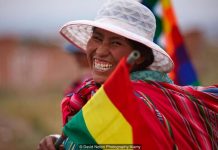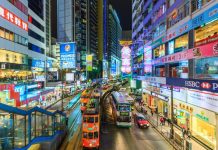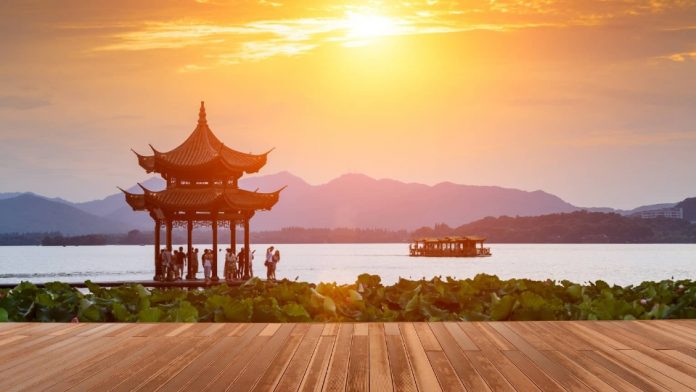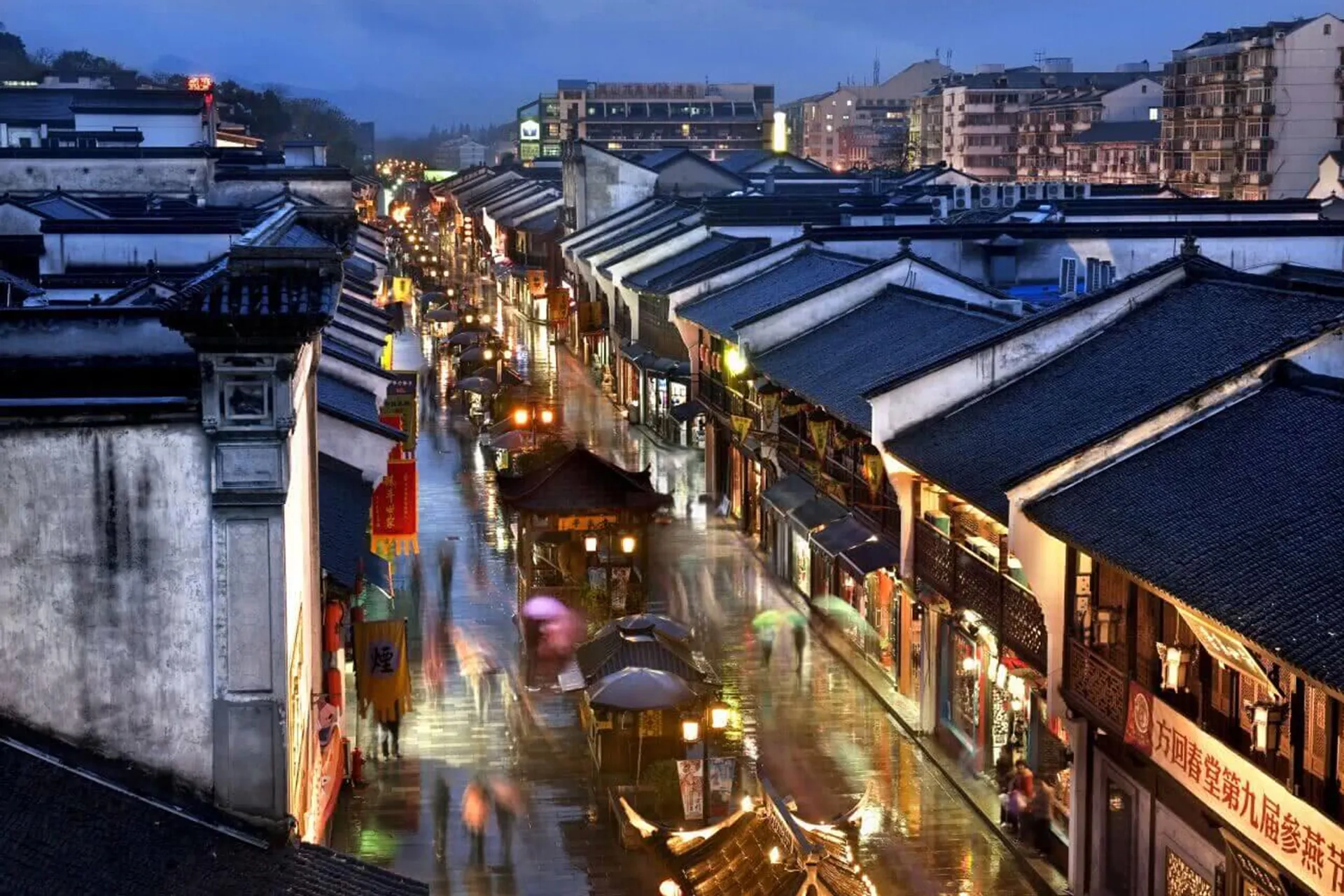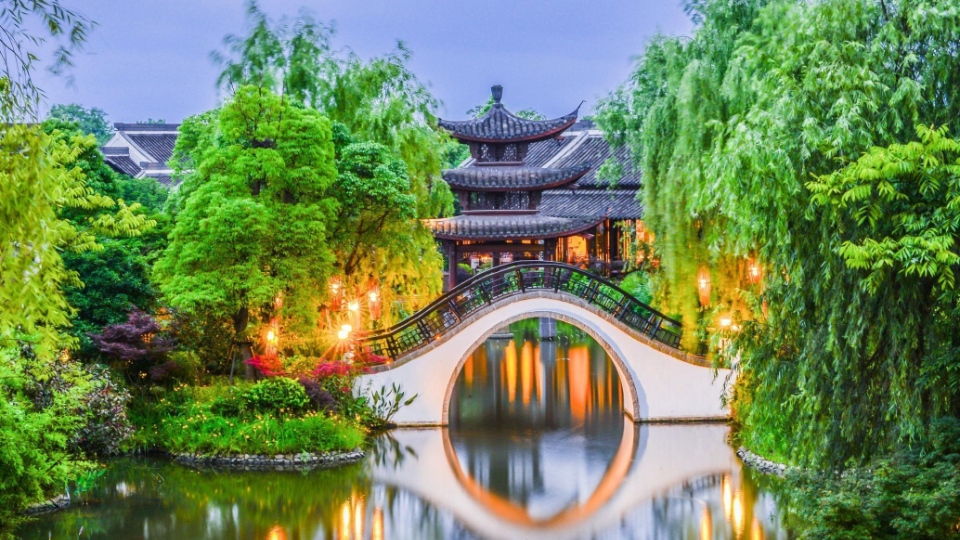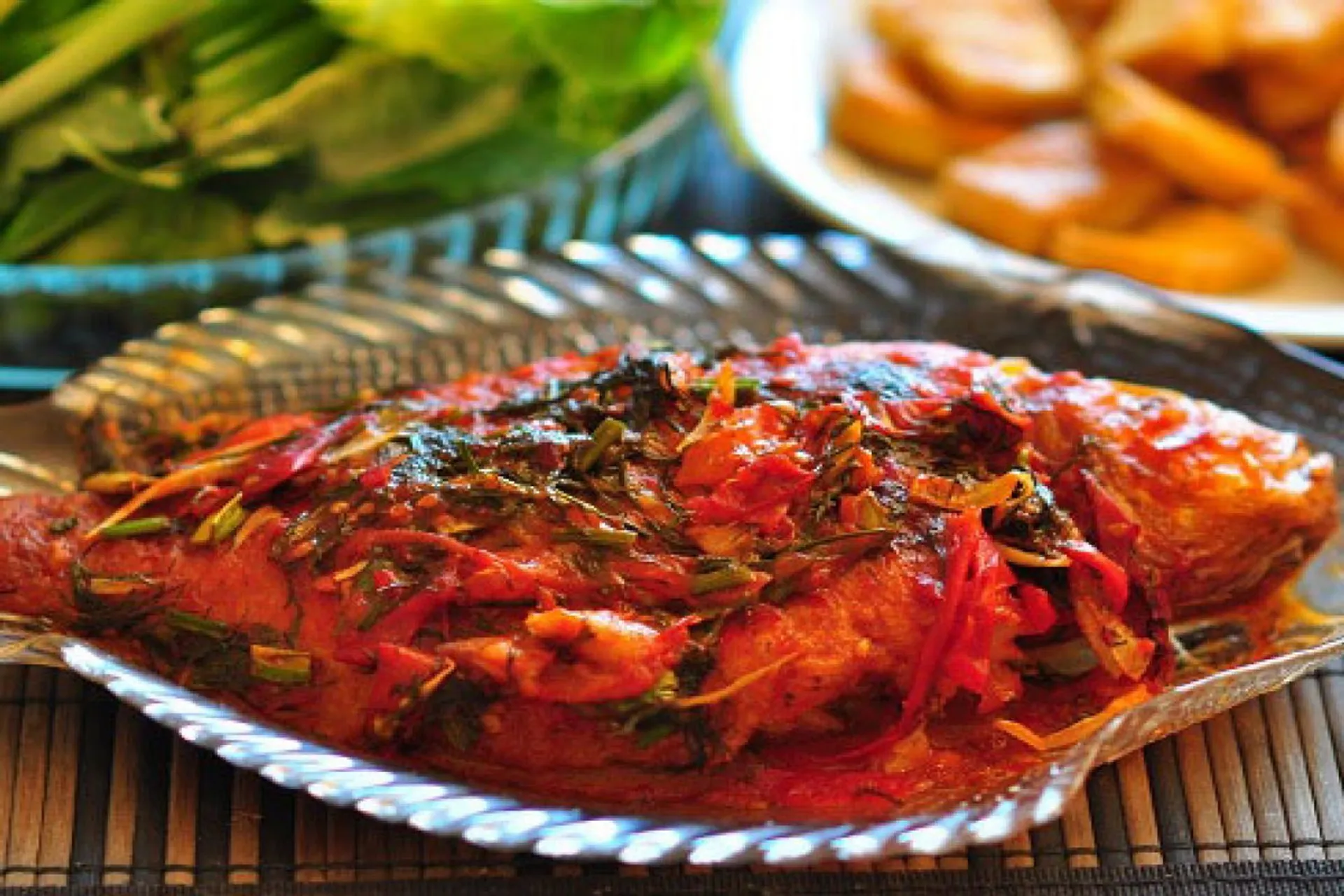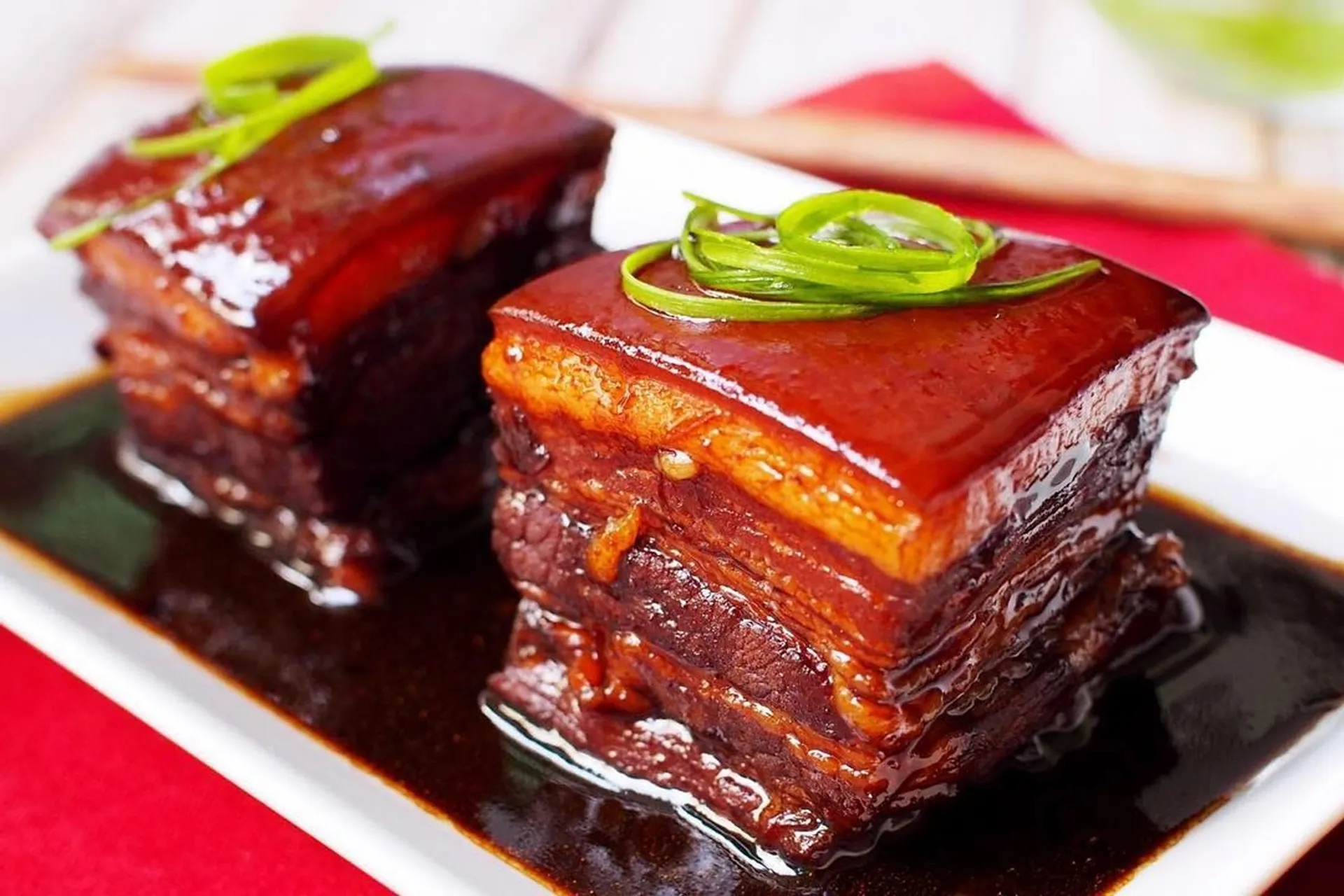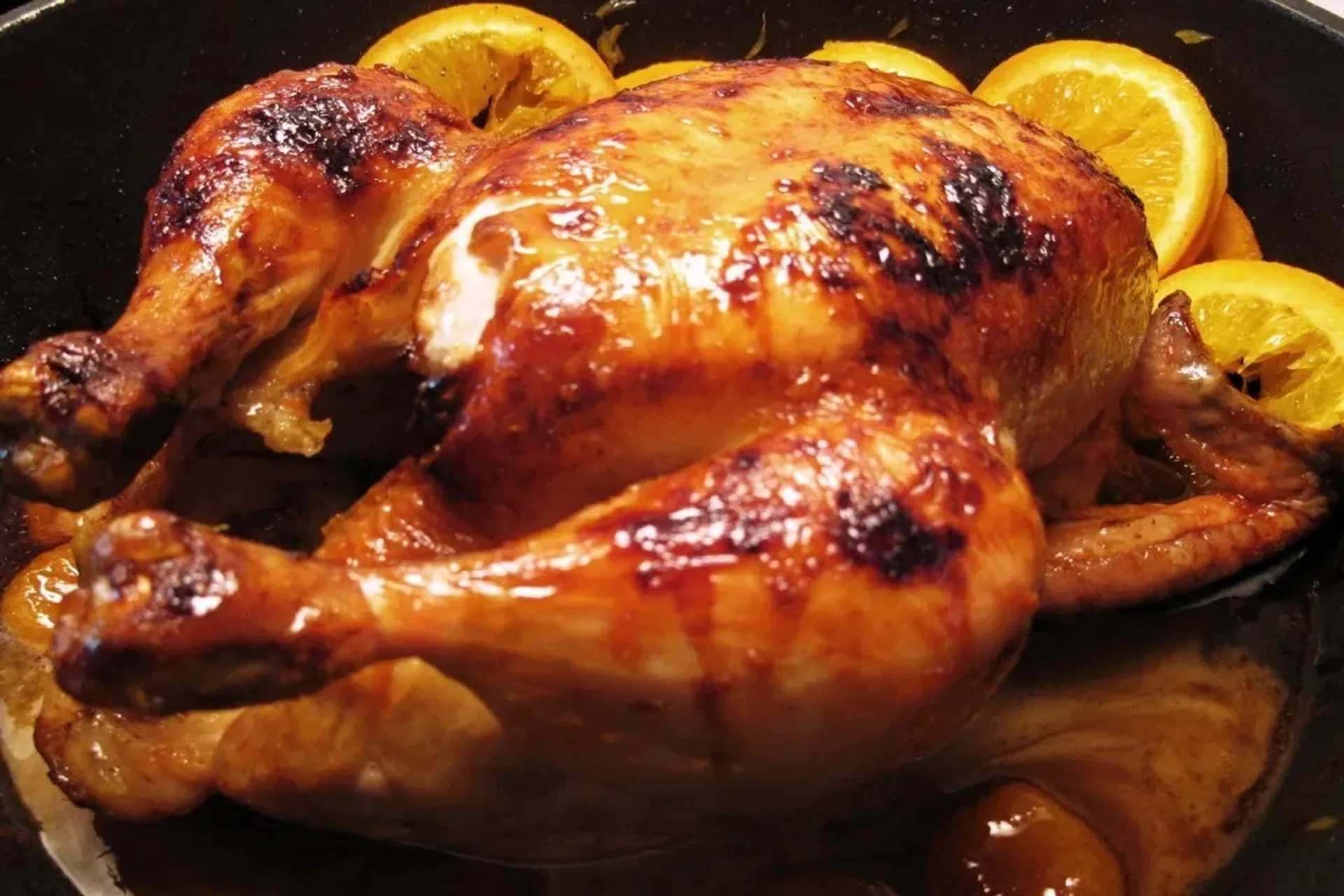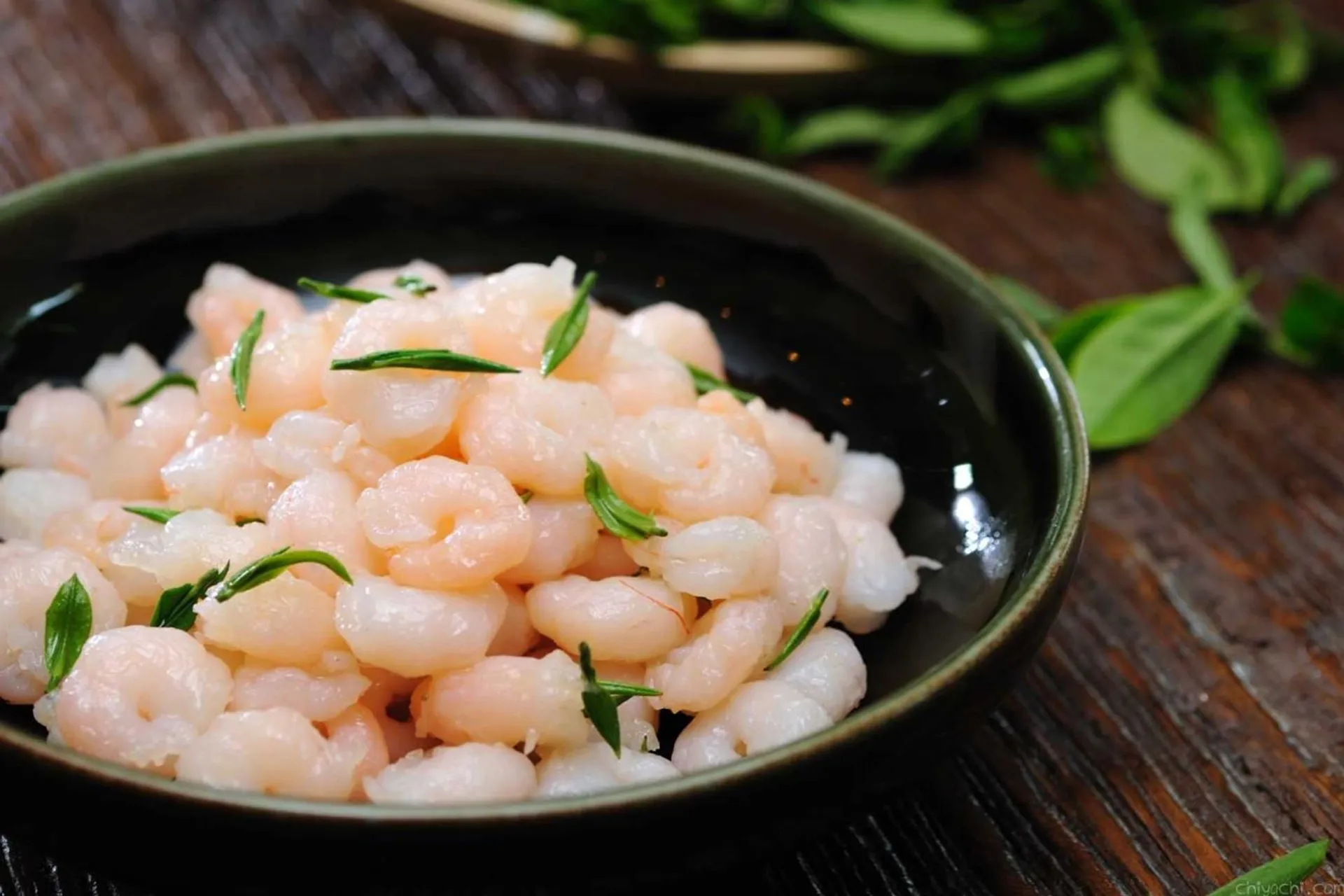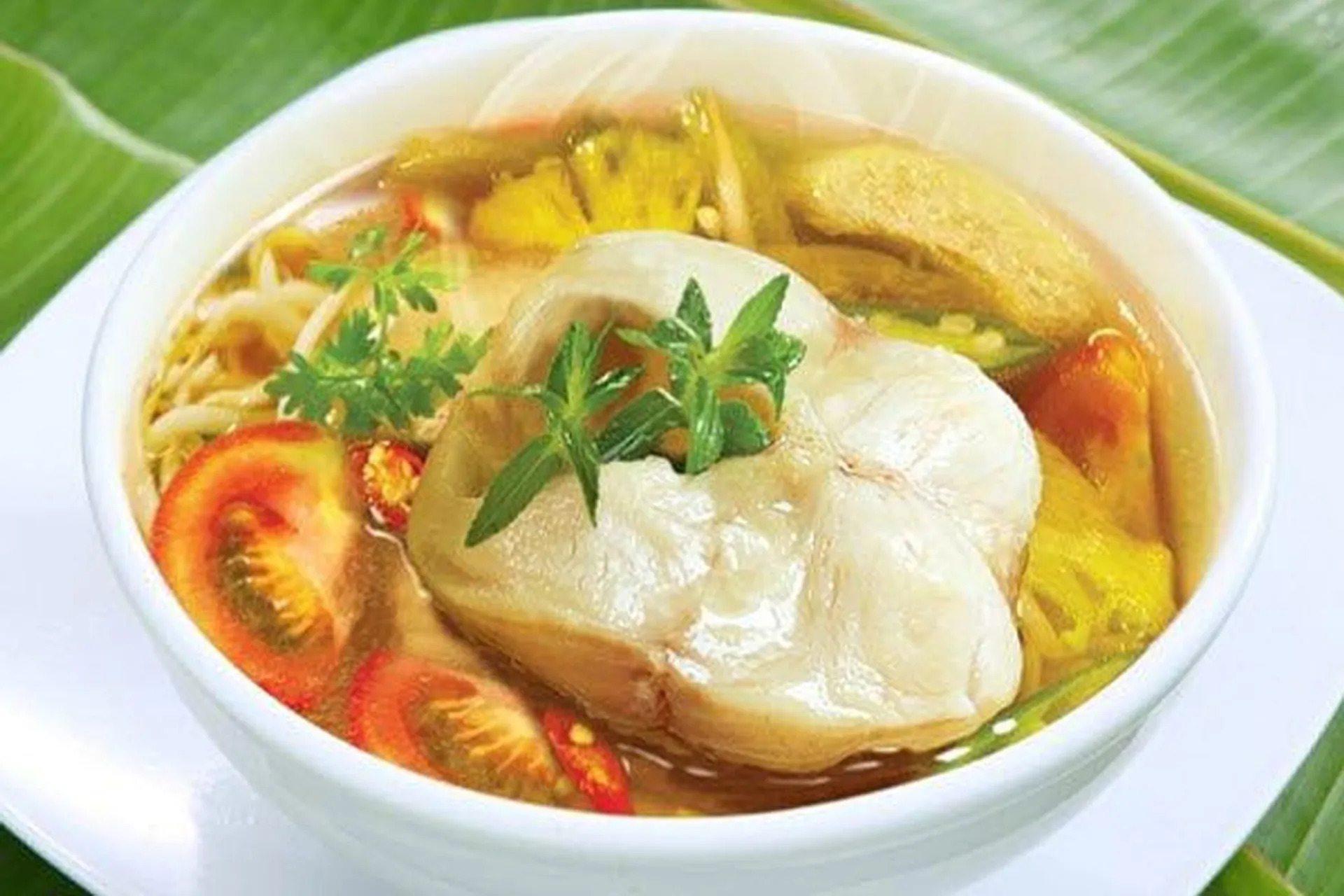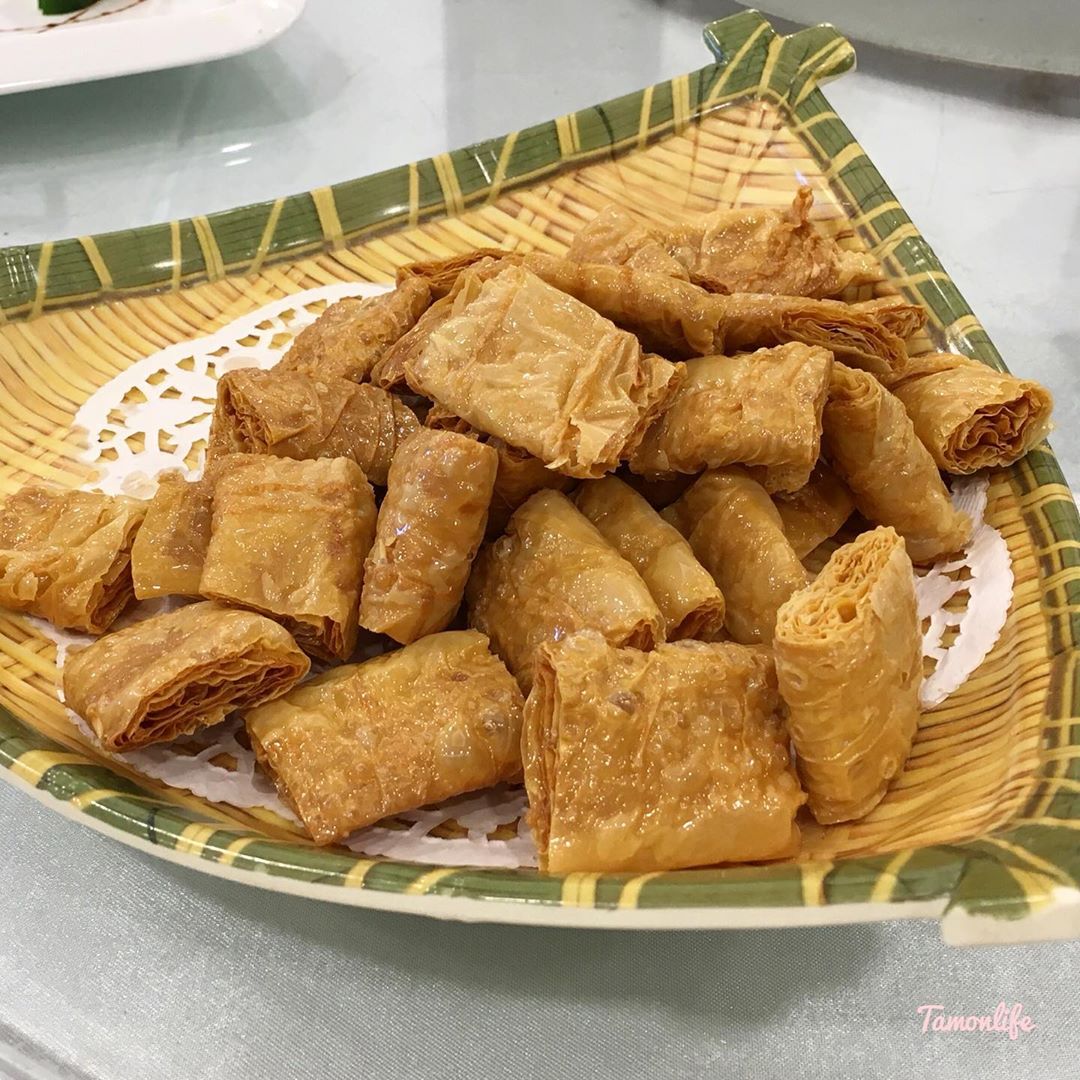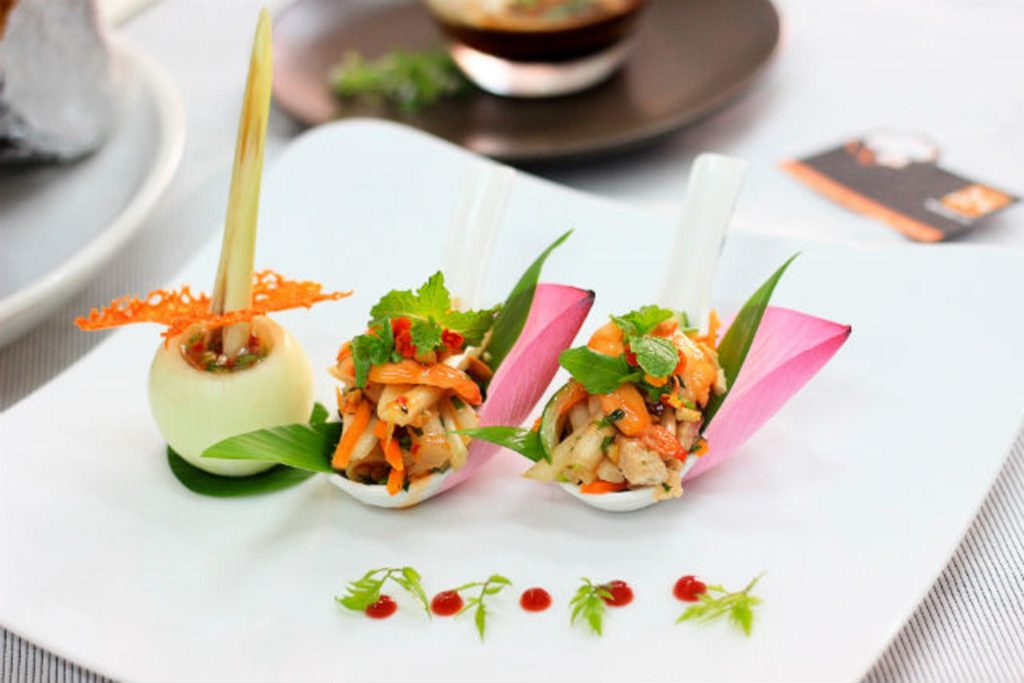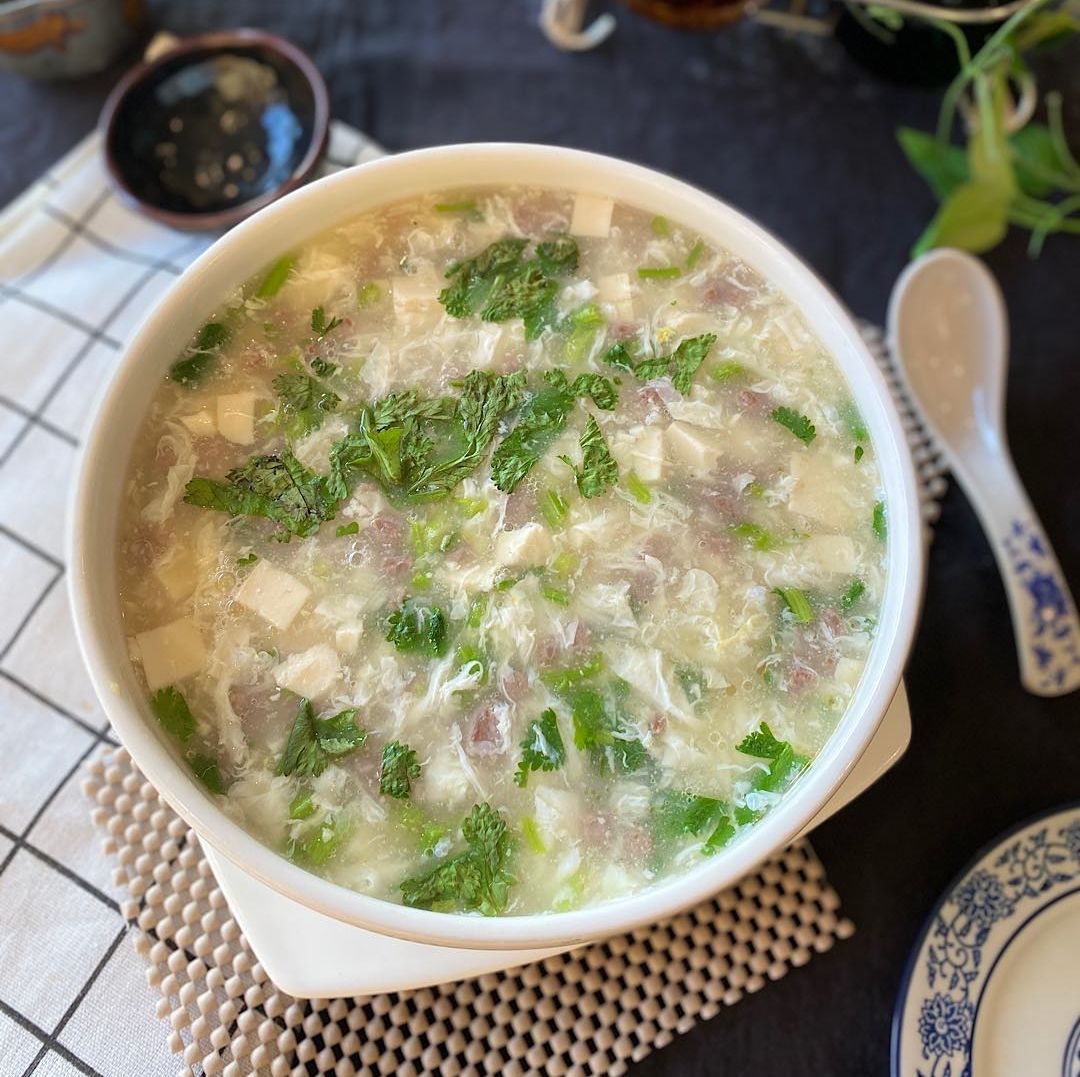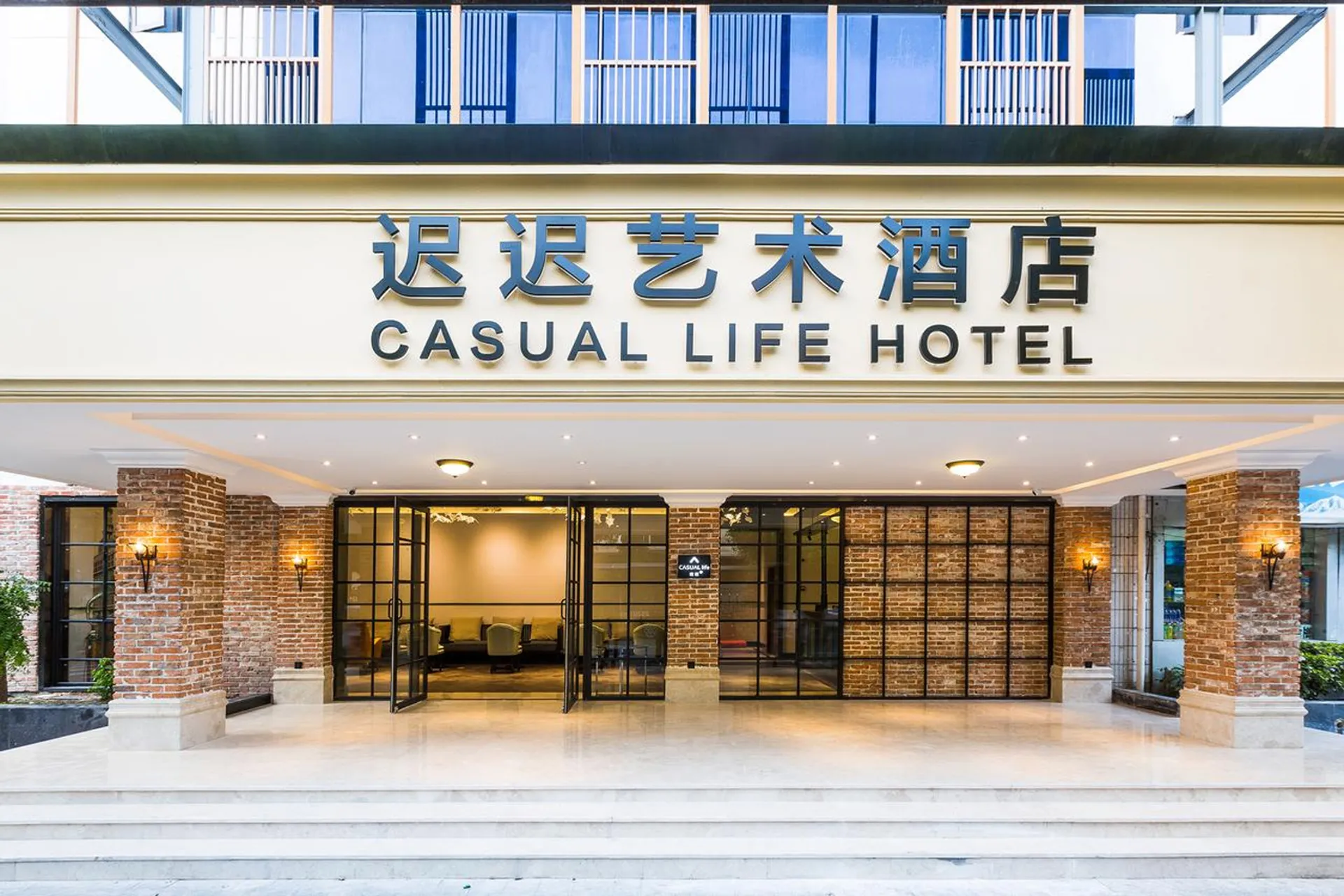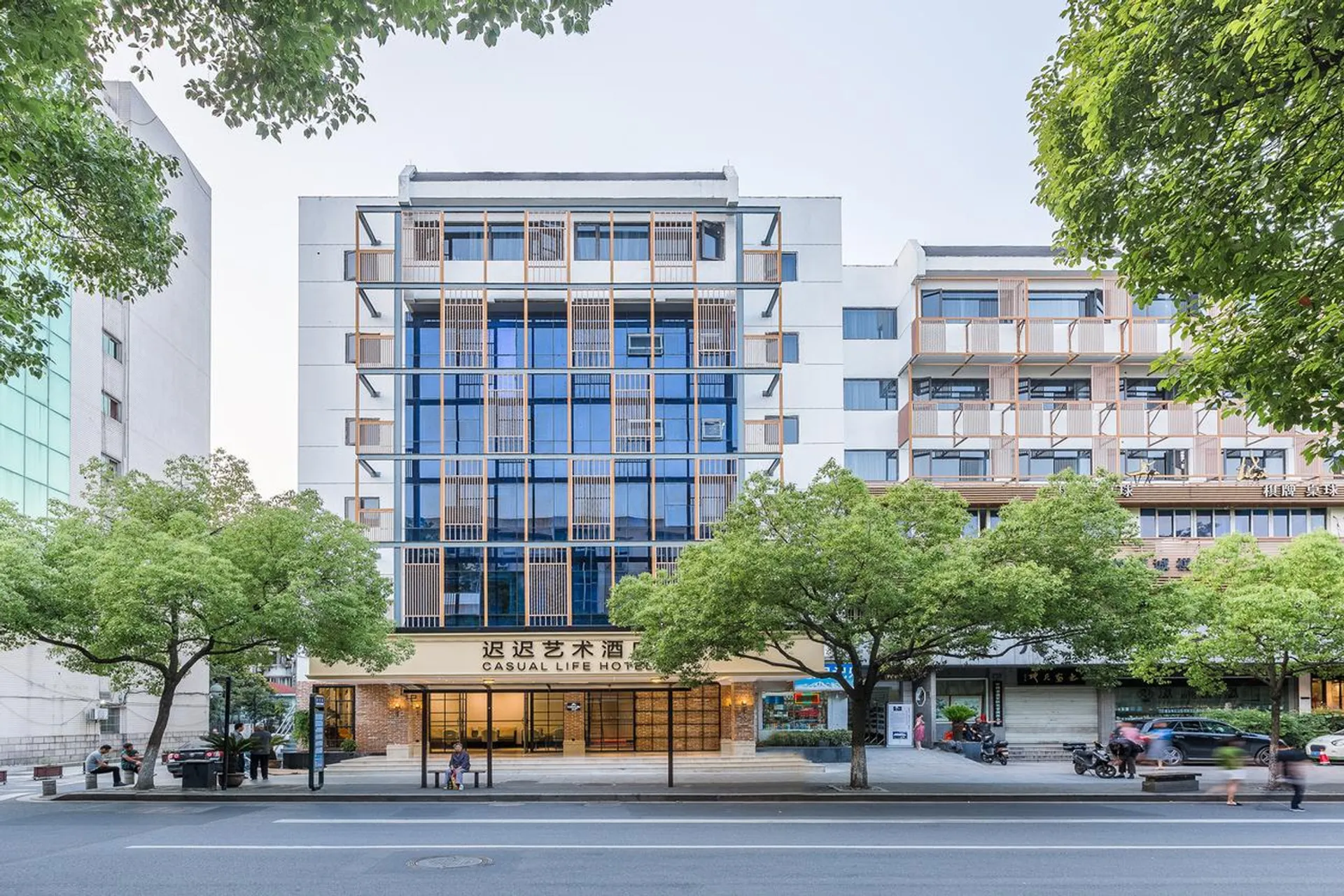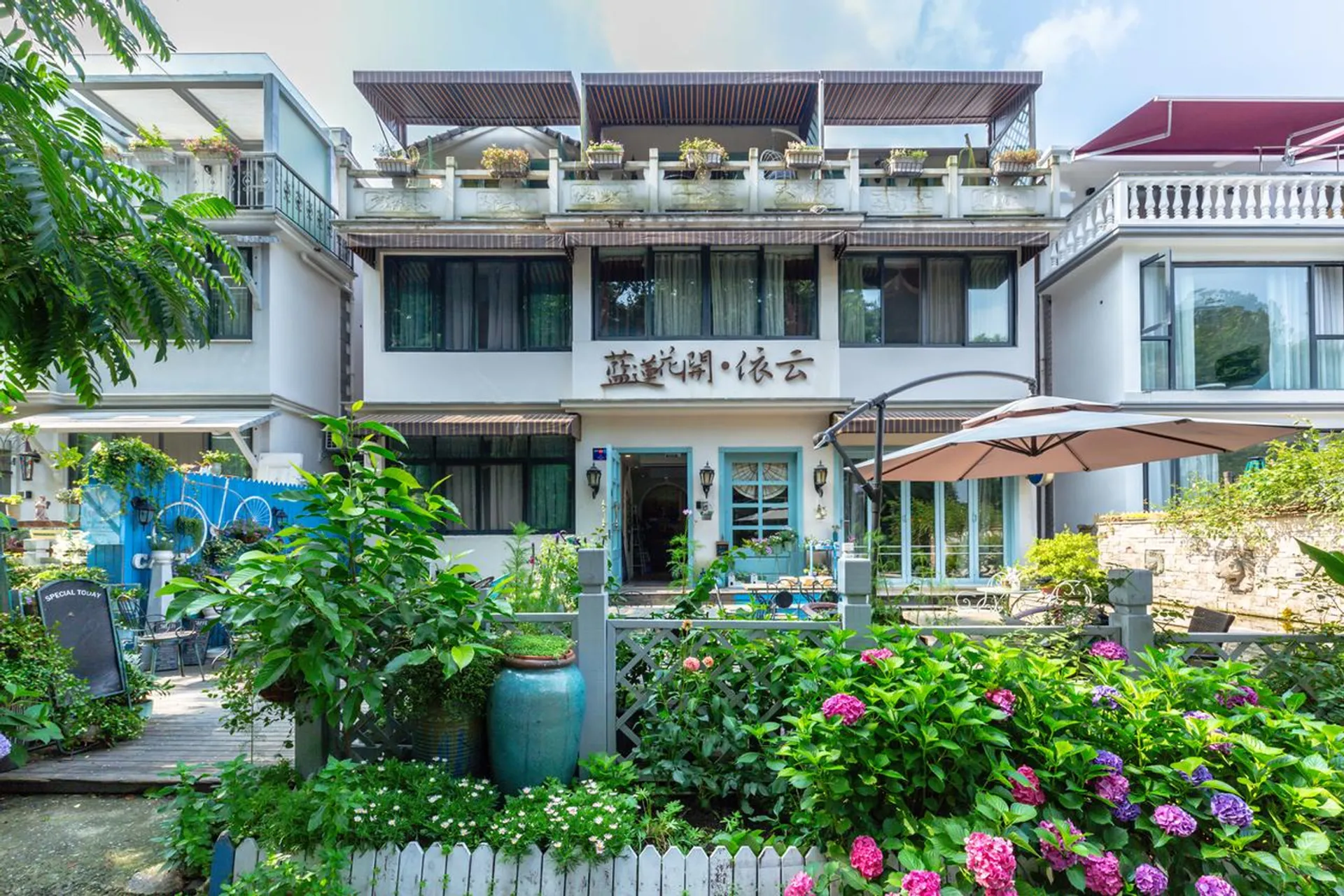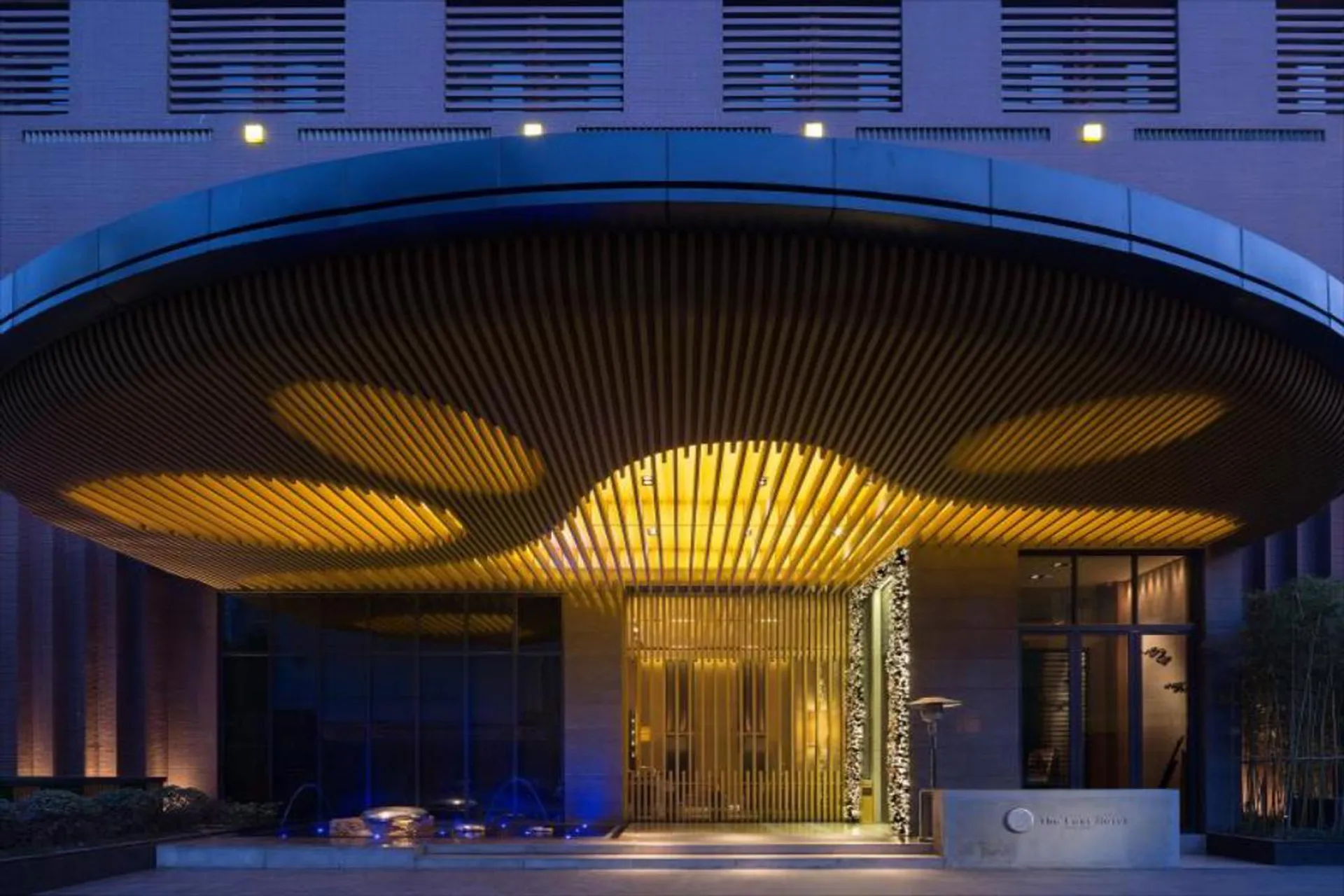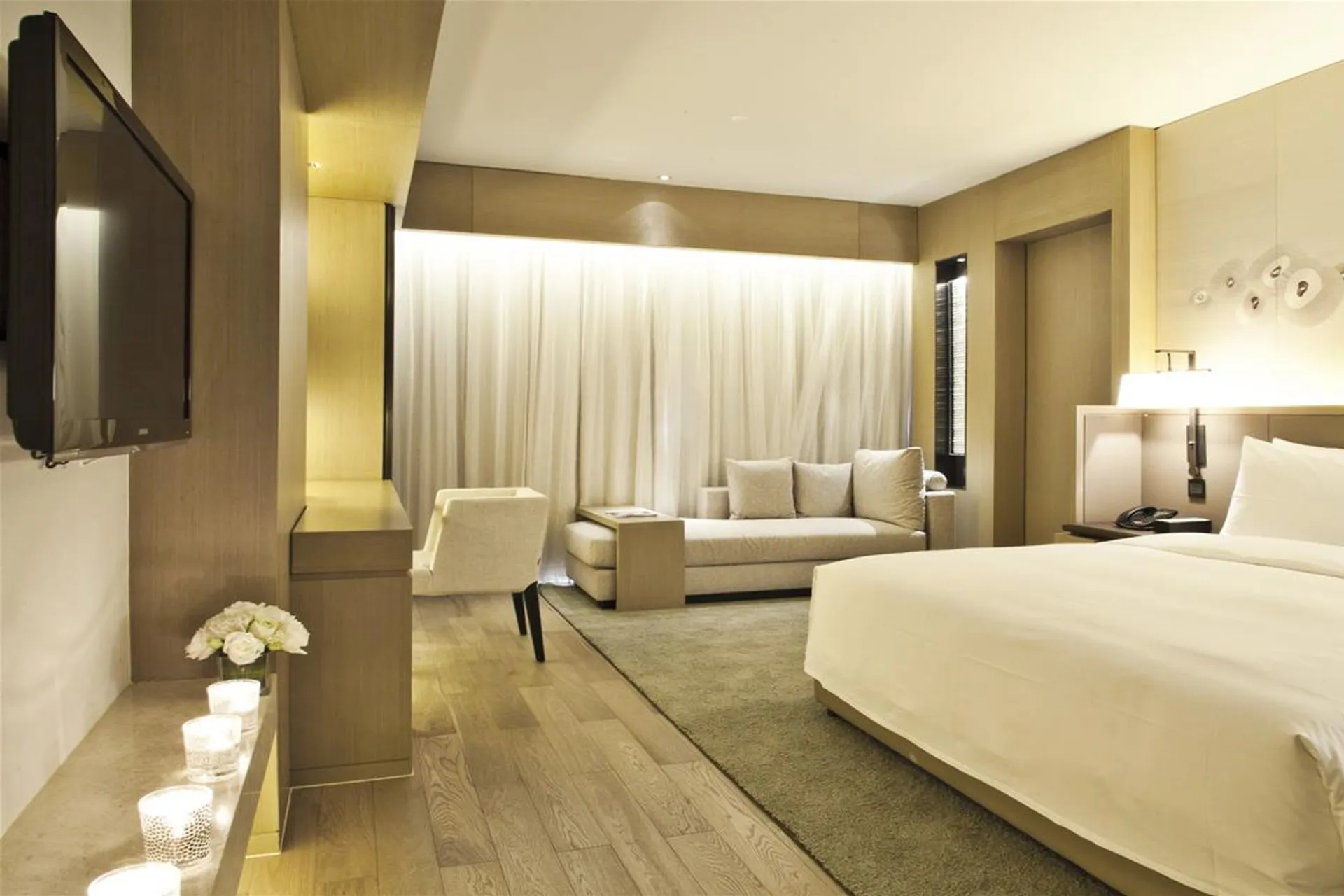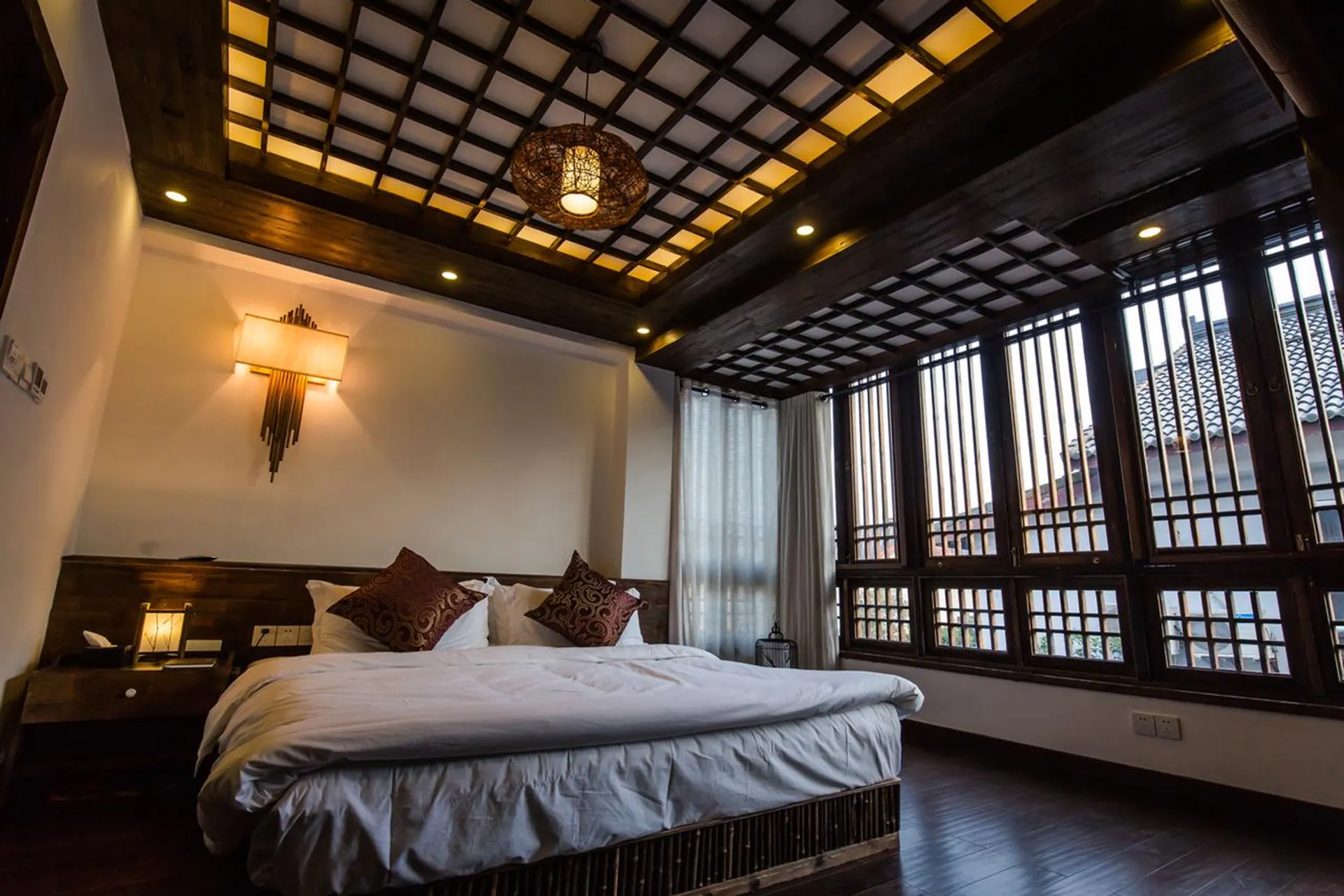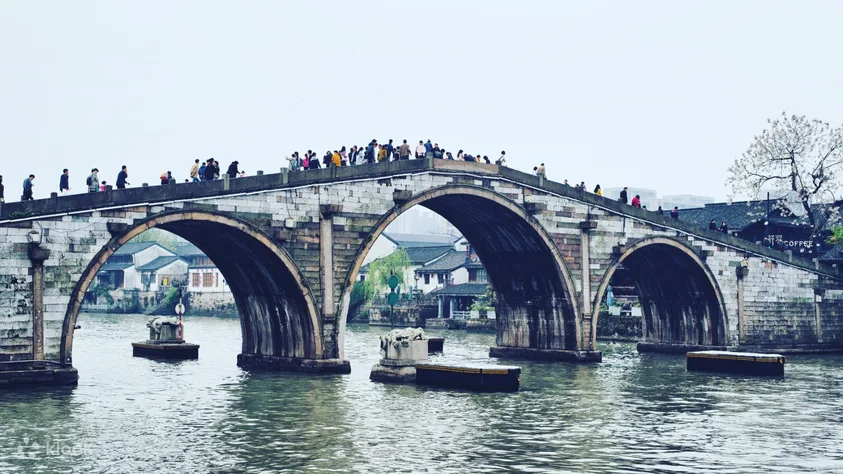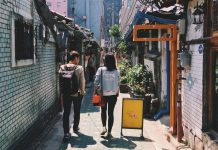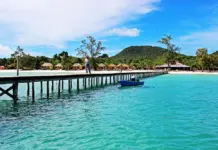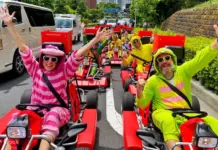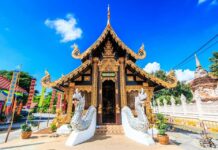Contrary to the hustle and bustle of most cities across China, Hangzhou offers a distinctly tranquil atmosphere. Without noisy and crowded, the thriving city of over 7 million people known for its amazing sights can provide an eerie sense of relaxation. You can still feel the pulse of an old China here, with the mist on the lake, in the old tea houses or quiet corners. If you want to experience a China like the old movies, don’t miss Hangzhou on your upcoming trip.
- Visiting Lingering Garden in Suzhou – One of the Four Great Chinese Classic Gardens
- The ULTIMATE Forbidden City travel guide: How to visit, things to do, tips & MORE
- Legoland Shanghai Review: A Self-Guided to LEGOLAND Shanghai Resort
- The ultimate guide to Humble Administrator’s Garden (Zhuozheng Yuan) in Suzhou
- The ULTIMATE guide to Happy Valley Shenzhen for Self-Guided Family Trips
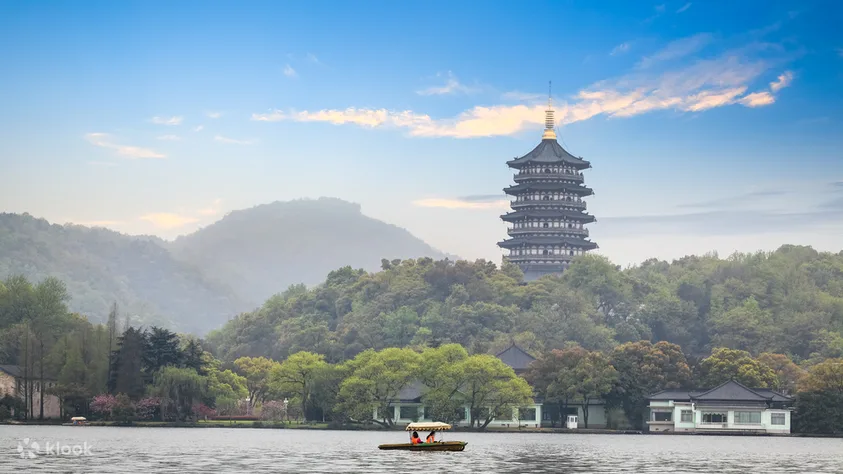
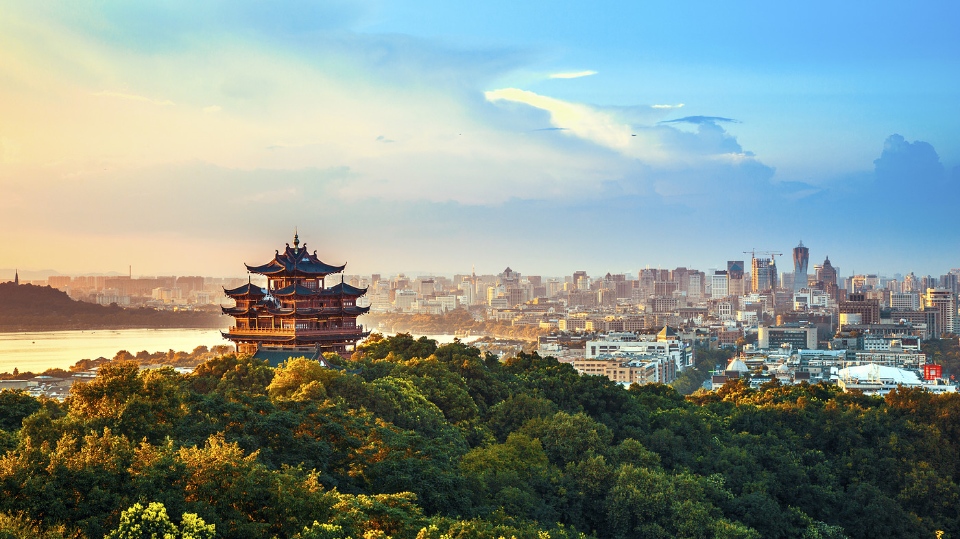
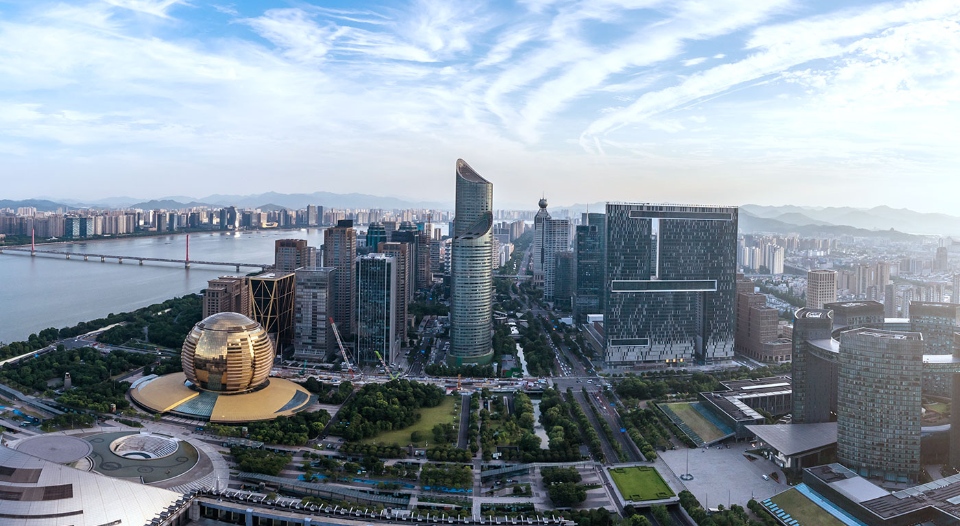
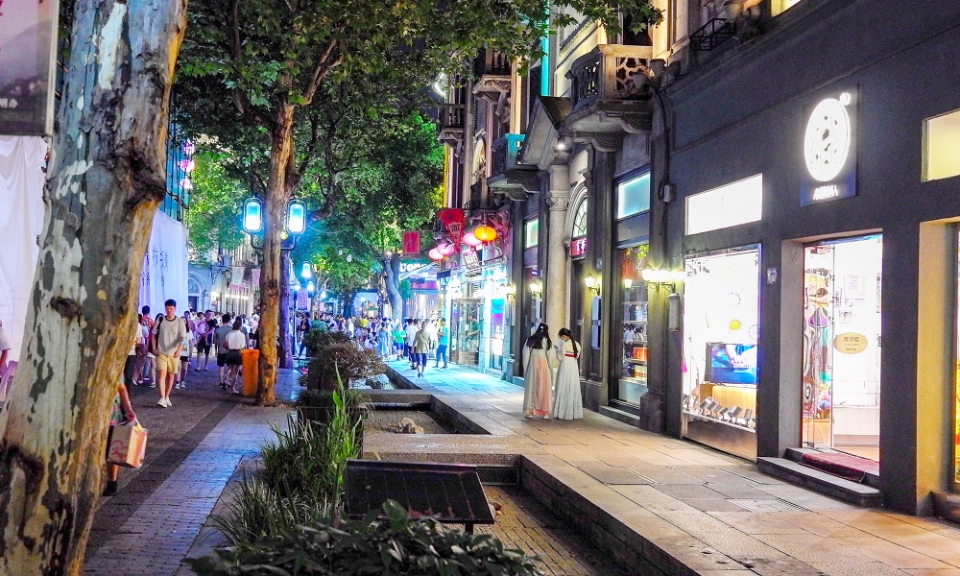
So, is Hangzhou worth visiting, how to visit Hangzhou, what to do in Hangzhou and how to plan a budget trip to Hangzhou for the first-time perfectly? Let’s check out our Hangzhou travel blog (Hangzhou blog) with the fullest Hangzhou travel guide (Hangzhou china travel guide, Hangzhou tourist guide, Hangzhou city guide, Hangzhou guide) from how to get to Hangzhou, best places to visit, best time to come, what to eat as well as top things to do in Hangzhou to help you maximize your trip as follows!
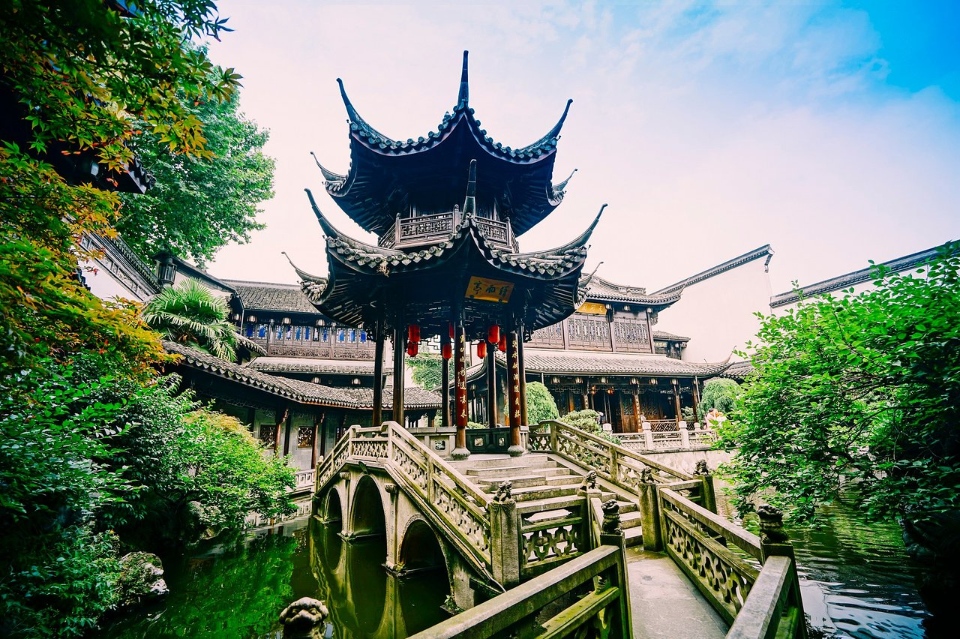
Hangzhou – “Paradise on Earth” with beautiful natural scenery along with ancient culture intertwined with modern. It is a famous tourist destination with a perfect landscape like a watercolor painting. The beauty of Hangzhou can only be seen with your own eyes and felt by yourself to see the tranquil, peaceful but no less vibrant beauty of the city.
Overview of Hangzhou (#hangzhou travel blog)

Hangzhou City is located in the Yangtze Delta and is one of the seven capitals of Zhejiang Province, China. The city is about 180km northwest of Shanghai, Hangzhou is one of the most famous and prosperous cities in China.
This is one of the most important tourist cities in the country, famous for its natural beauty that is likened to paradise in Chinese proverbs, and is also home to many important cultural and historical heritages. To talk about the beauty of Hangzhou, China has a famous proverb: “Born in Suzhou, live in Hangzhou, eat in Guangzhou, die in Liuzhou” referring to a poetic, peaceful life in Hangzhou. For that reason, Hangzhou has always become the dream destination of many people to discover the beauty of the fairyland.
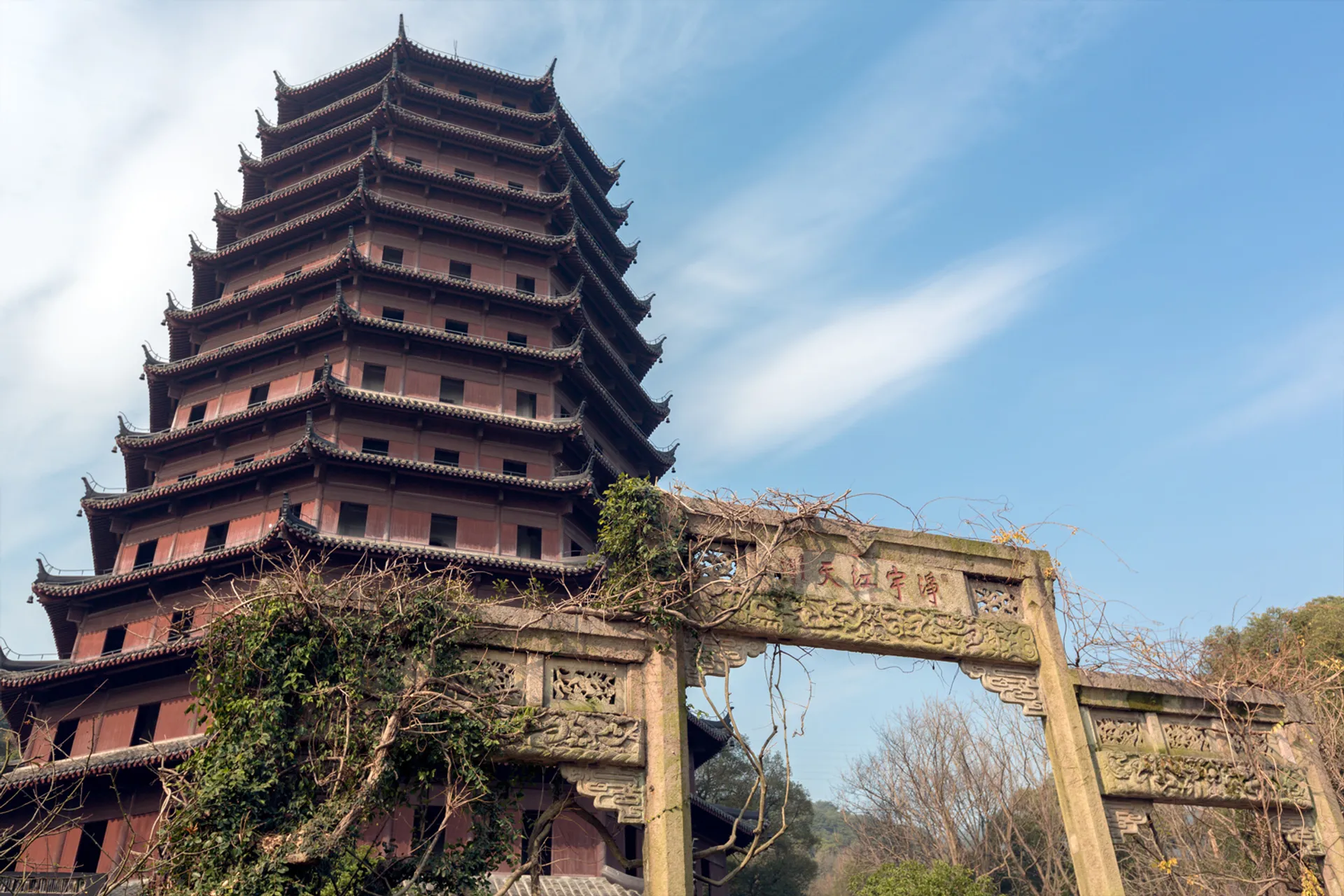
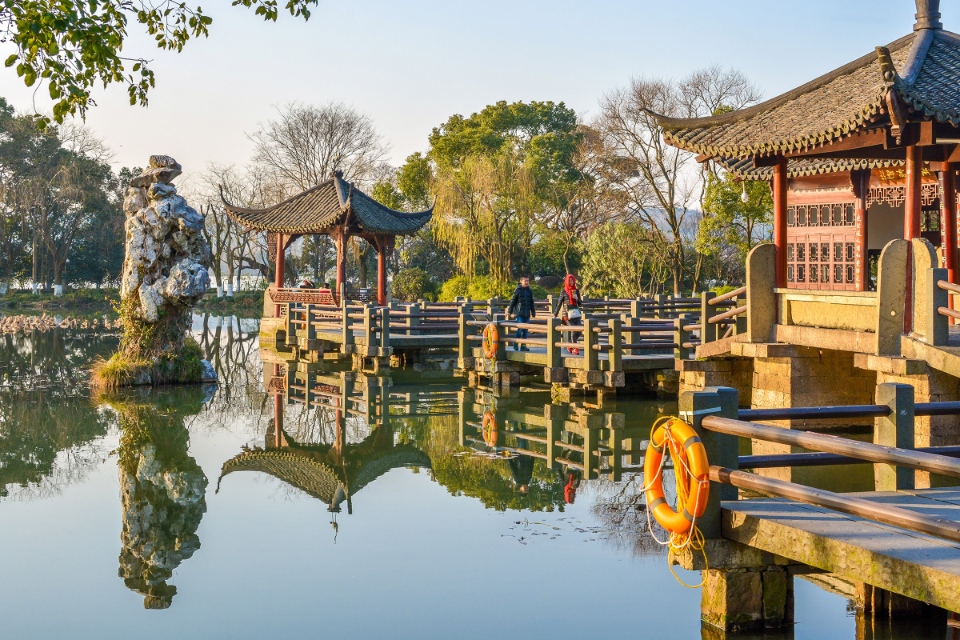
Hangzhou is also famous for its silk, green tea… Especially, in Hangzhou, there is also a very developed with mulberry cultivation and silkworm rearing, is also a place associated with the legendary of Silk Road.
As one of the seven prominent ancient capitals in history, Hangzhou is considered the birthplace of Chinese civilization. Many relics excavated here prove that the city existed and developed more than 8000 years ago. In particular, the 5000-year-old Liangzhu culture is hailed as “the dawn of civilization”. In particular, West Lake (Xi Hu) is famous as a witness of history, praised in countless poems ever since.
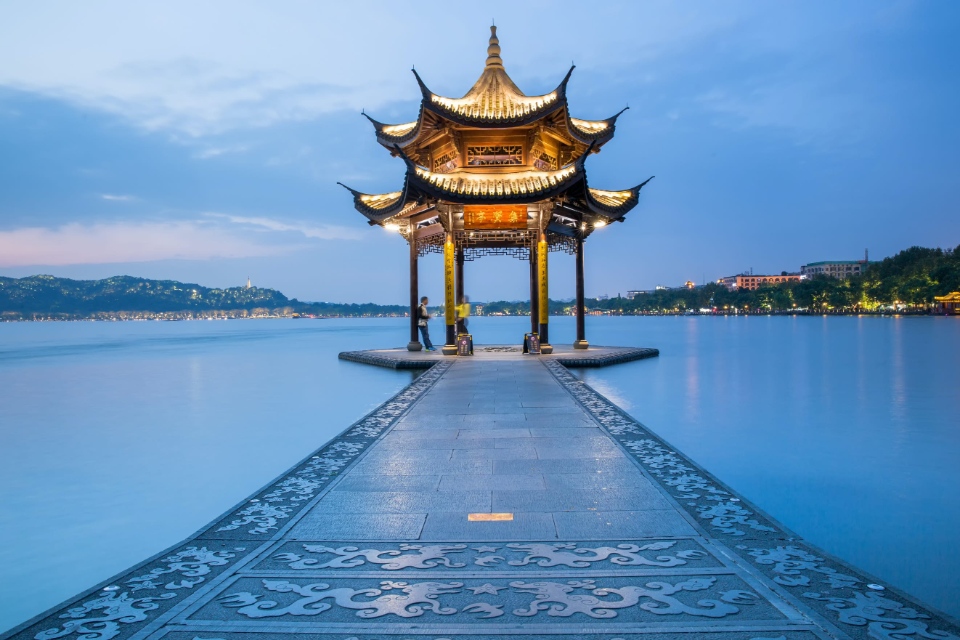
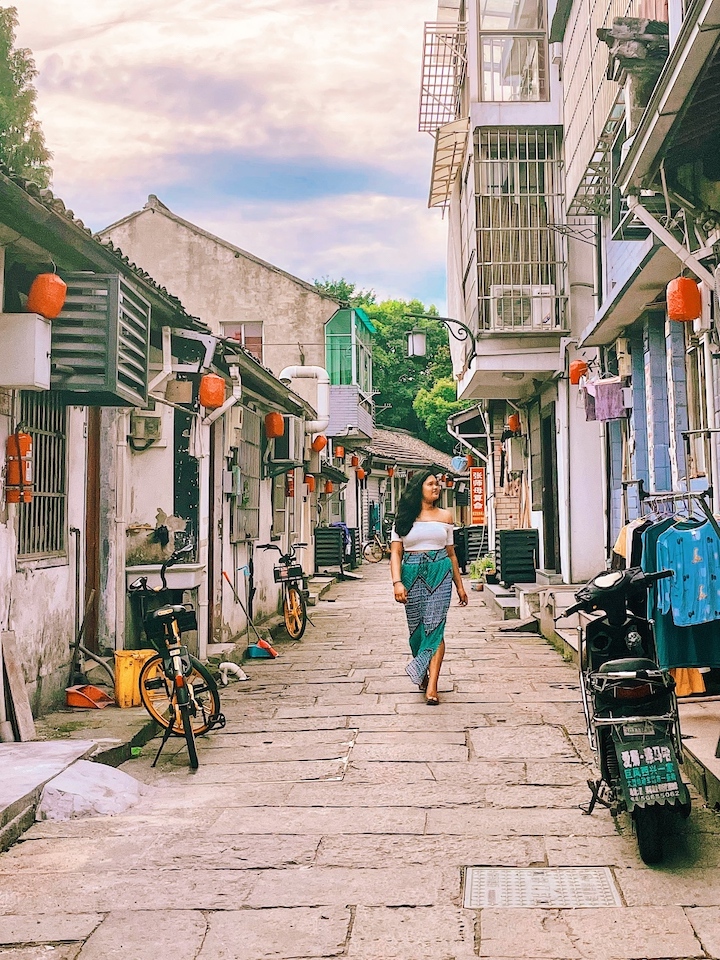
Thanks to its long history, the city also boasts a distinctive culture. Having absorbed the quintessence of various dynasties, the city’s more than 8,000-year history has drawn on a wide range of elements including horticultural traditions, religion, architecture, folk customs, tea and cuisine along the Silk Road has made a traditional Hangzhou after many years of development.
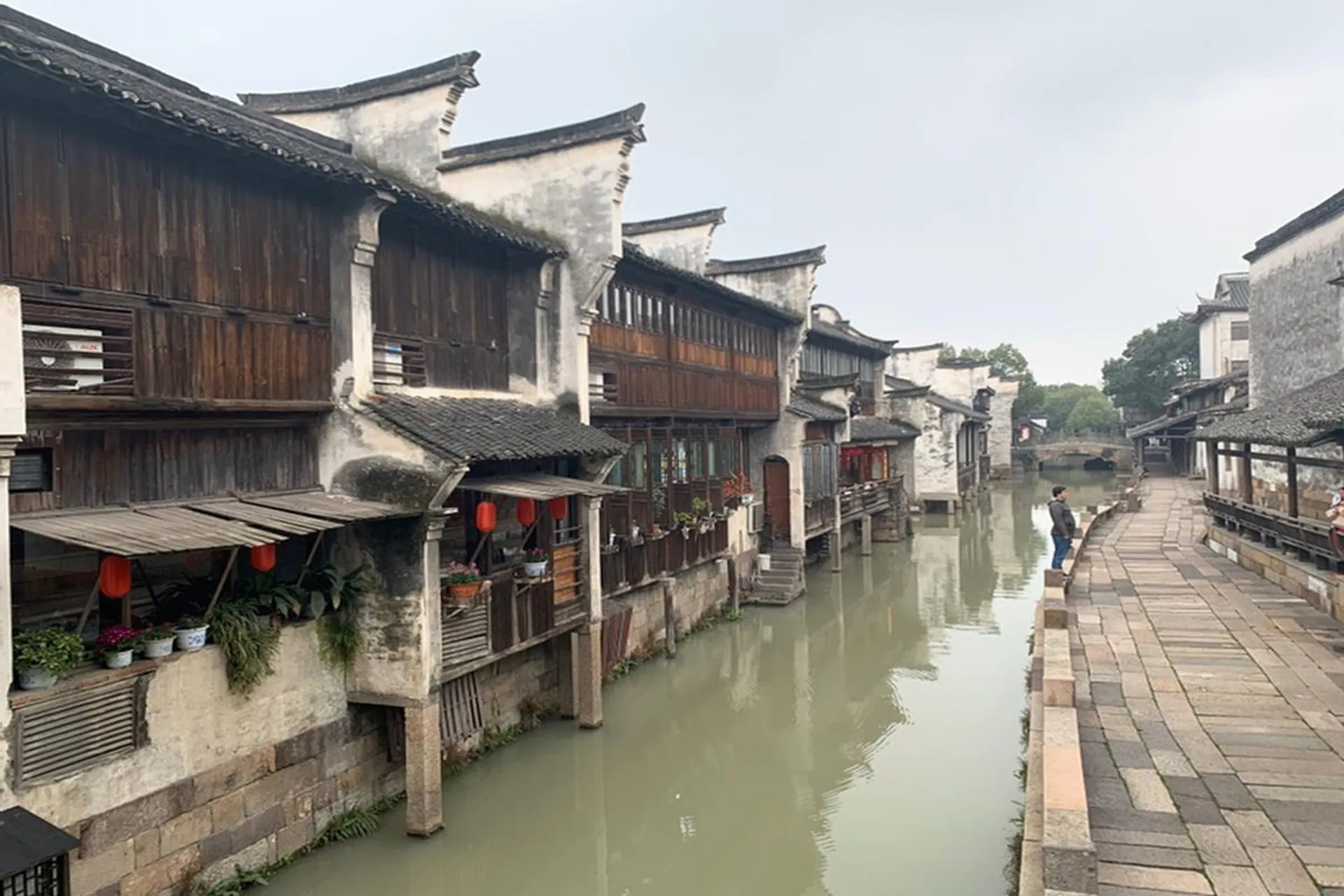
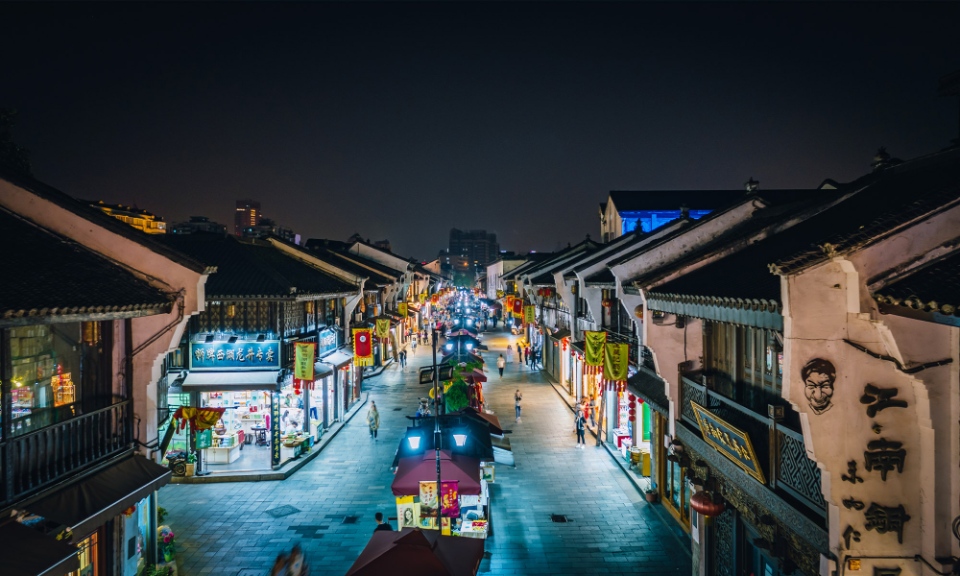
In particular, the culture here always goes hand in hand with famous landmarks such as West Lake (Xi Lake), Grand Canal (Jinghang Waterway) and Qiantang River, bringing integration and development in the current tumultuous new era.
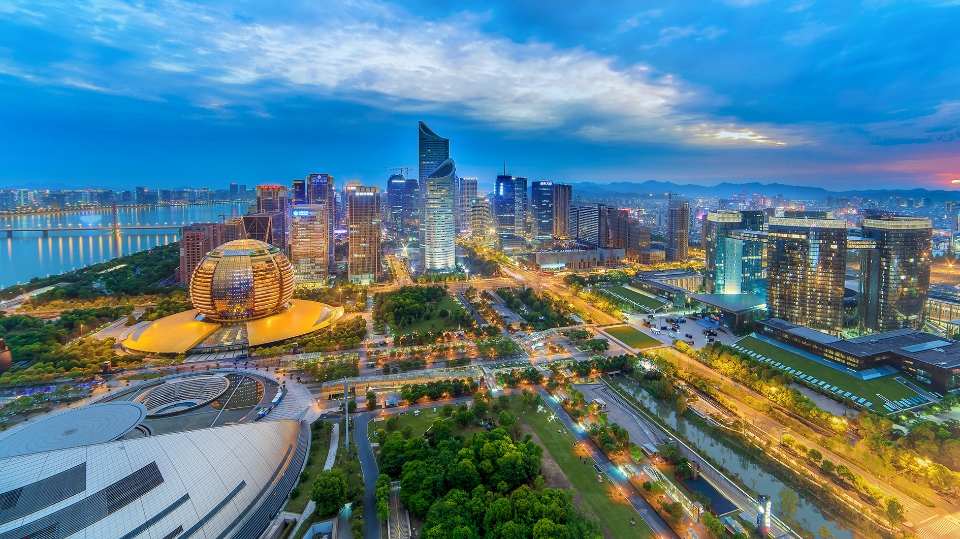
Thanks to these things, Hangzhou has achieved sustainable and stable economic growth for many years. The city has been awarded many meaningful titles, including Global Most Influential City, Top innovative Chinese City, and China Top Smart City. Hangzhou is also in the top 100 destinations for international conferences and 52 most worth-visiting tourist attractions. In particular, the city was also honored as “the happiest city in China” for 13 consecutive years.
Today, Hangzhou is also one of the largest cities in China with a strong economy, and is a birthplace of many large corporations and billionaires in the world, the most prominent is the birthplace and located the headquarters of Alibaba Group.
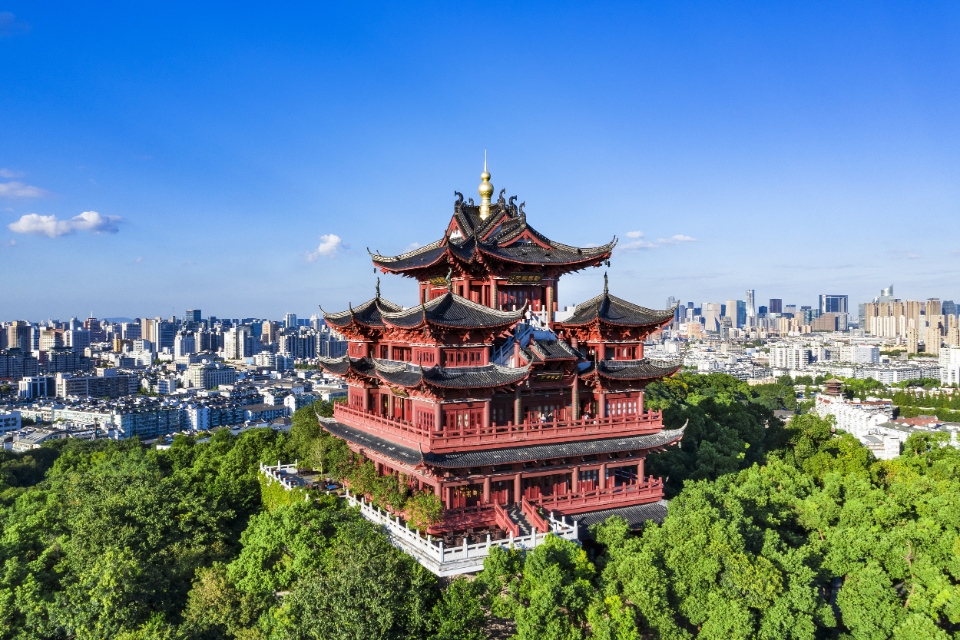
In addition to the outstanding traditional architecture that has been preserved for thousands of years, the unique constructions that continuously spring up in this city are proof of the non-stop prosperous development.
Hangzhou is famous for many beautiful scenes that captivate, entice tourists from all over the world to come to the rich Jiangnan land of poetry, music and painting. Perhaps that’s why the Chinese have a saying: “Above is heaven, below is SuHang”, to describe the ultimate beauty of “sisters” Suzhou and Hangzhou.
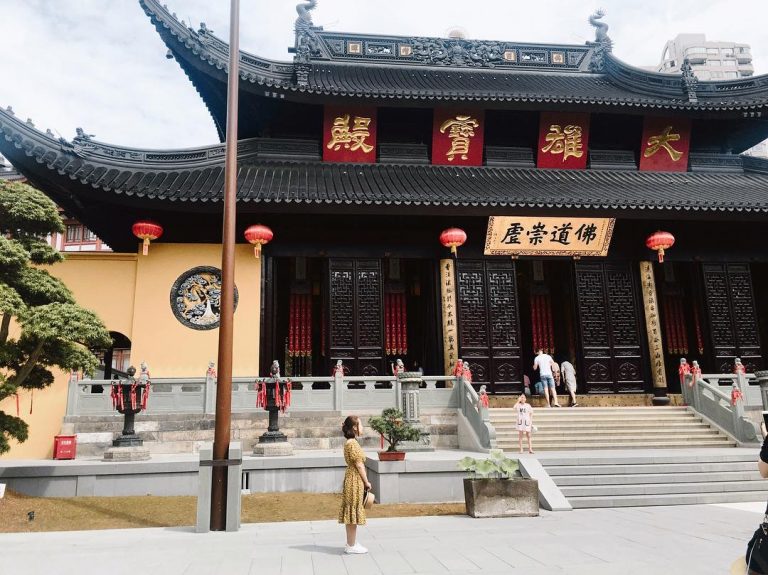
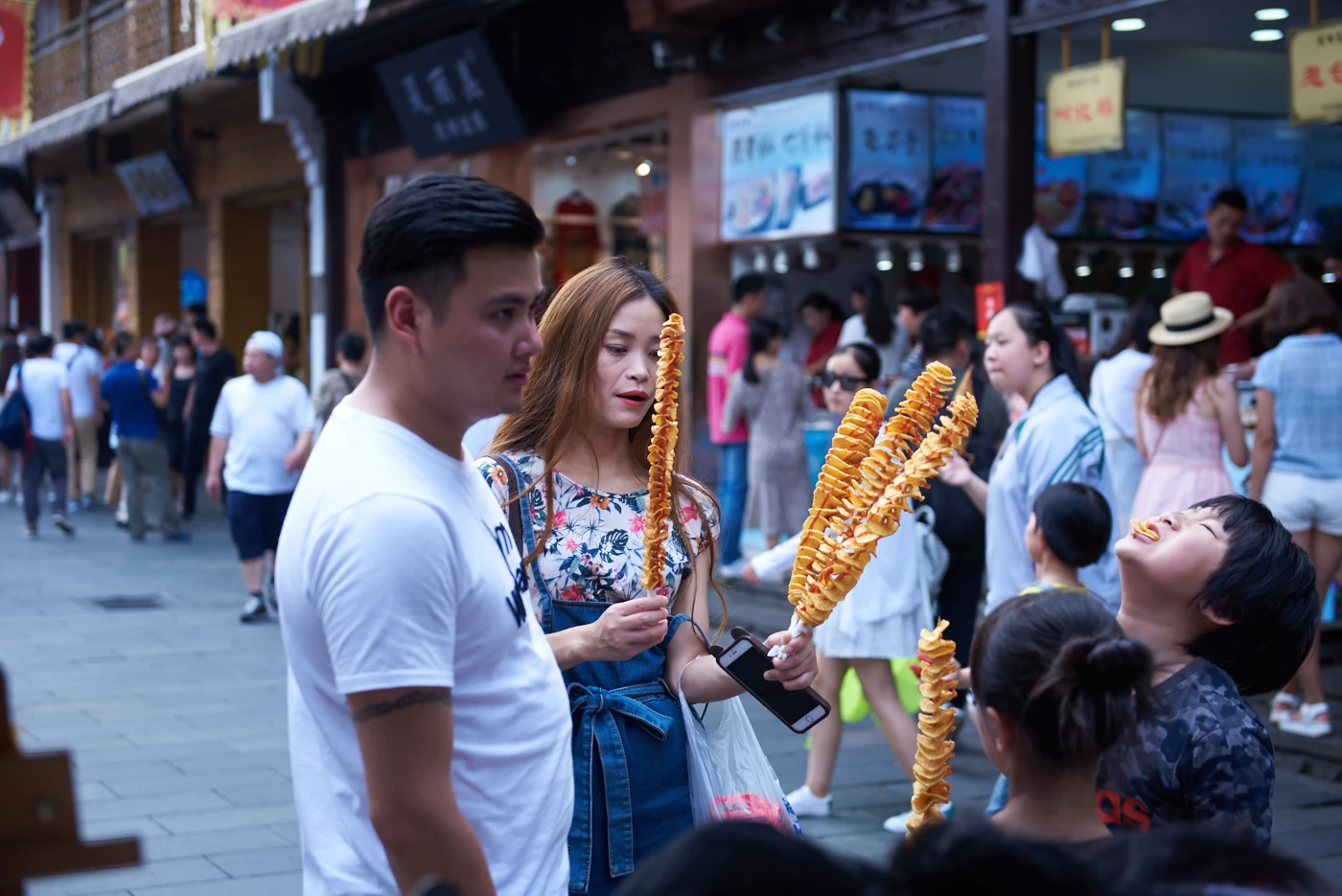
When to come? (#hangzhou blog)
Hangzhou has a subtropical monsoon climate with four distinct seasons: Spring from March to mid-June, summer from June to September, autumn from October to December and winter from January to March. Its average annual temperature is about 15.7-17.1℃. The rainy season from June to July.
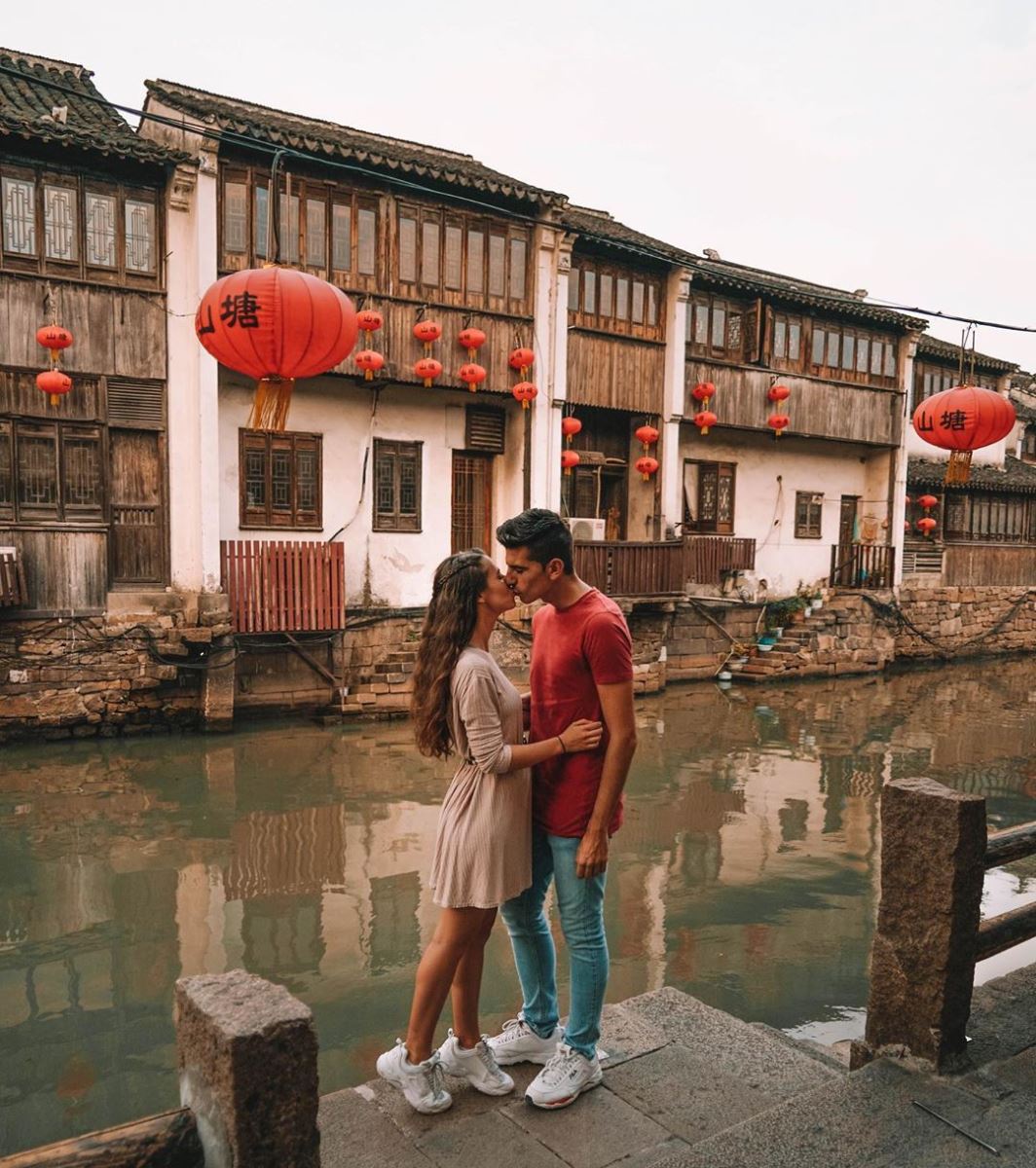
High humidity in spring, lots of drizzle, summer is quite hot, the temperature can reach 35 degrees Celsius, autumn is cool while winter is cold. Therefore, the best time to visit Hangzhou is in the autumn in October to November.
The peak tourist season in Hangzhou is in two times: Spring from March to May and autumn from September to November, when the weather is pleasant with an average temperature of 17°C.
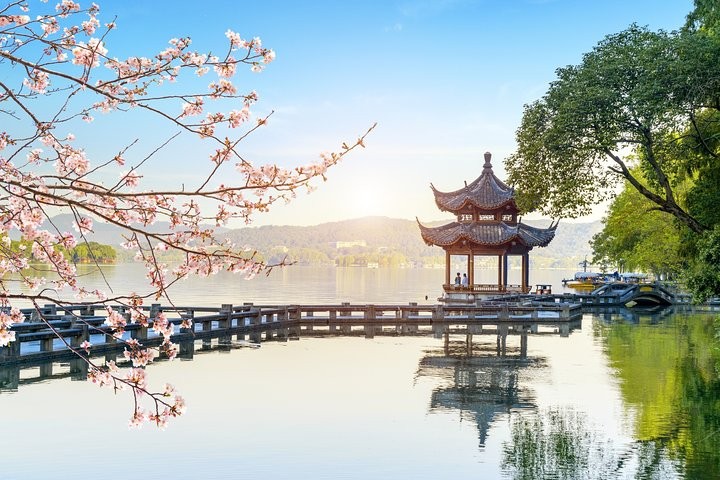
Besides, you should also travel to Hangzhou from August to early October of the lunar calendar because this is the time when the The International Qiantang River Tidal Bore Festival on Qiantang River takes place.
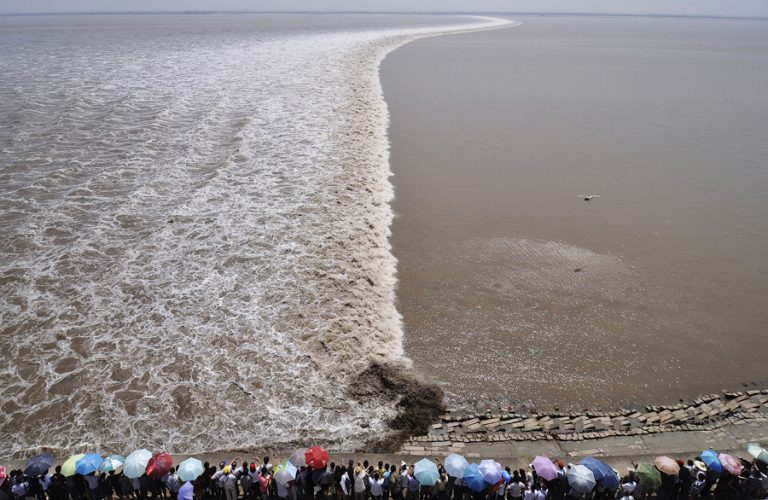
Getting to Hangzhou (#hangzhou travel guide)
By plane
Hangzhou Xiaoshan International Airport in general still serves domestic flights for the most part. There are regular flights to Beijing and Hong Kong, but Shanghai’s Hongqiao domestic airport or Pudong international airport and connections by bus or train are also good options. There may be international flights. International cities with flights to Hangzhou are Kuala Lumpur, Tokyo, Osaka, Bangkok, Seoul, and Singapore. However the flight to Bangkok is currently not operating.
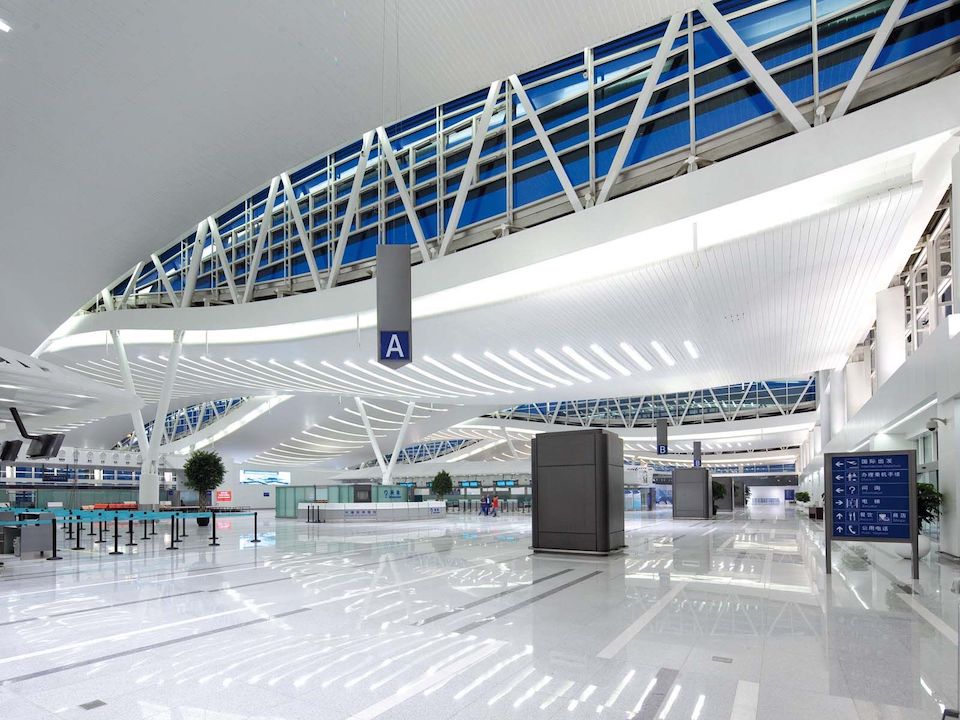
If you want to go to Hangzhou from outside of China, the plane is the only means of transportation, you can choose a different transit flight or fly directly to Hangzhou. There are many reputable airlines with cheap fares that you can choose from such as: China Southern Airlines, Hong Kong Airlines… You can find them on Google Flights, Kayak or SkyScanner. The cost of direct flight tickets will be higher when you choose the transit flights. But when you choose to fly directly, you will save a lot of time for exploring Hangzhou.
By bus (#hangzhou travel blog)
All of 4 bus stations are located outside the city center. The bus station in Moganshan Lu has buses to Nangjing, Wukang and many other locations in Jiangsu. The East bus station is the most comfortable, with many high-class buses to Shanghai, Wuzhen, Shaoxing, Ningbo. Public buses are cheap but slow. Buses to Tiantaishan and Haining also depart from here. Southern bus station to Wenzhou. Booking sleeper tickets is a bit difficult at the Hangzhou bus station, especially the Beijing bus.
By train (#hangzhou guide)
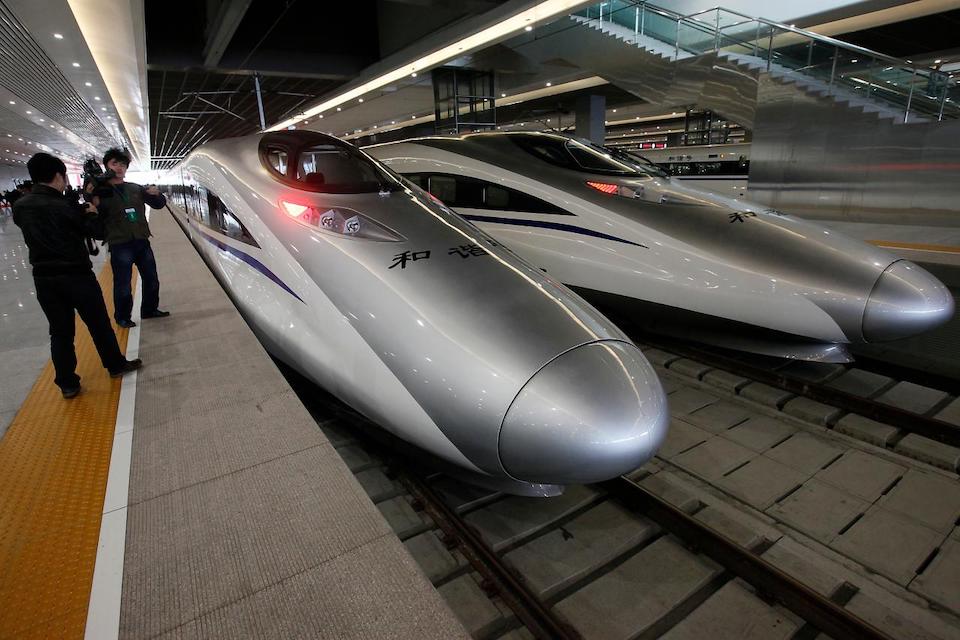
Trains from Hangzhou’s Hangzhoudong (Hangzhou East) main railway station go south to Xiamen and Wenzhou, and go east to Shaoxing and Ningbo. Most trains to the north pass through Shanghai, but there are direct trains to Beijing from Hangzhou. There are 5 express trains running from Hangzhou to Shanghai daily, with some continuing to Suzhou.
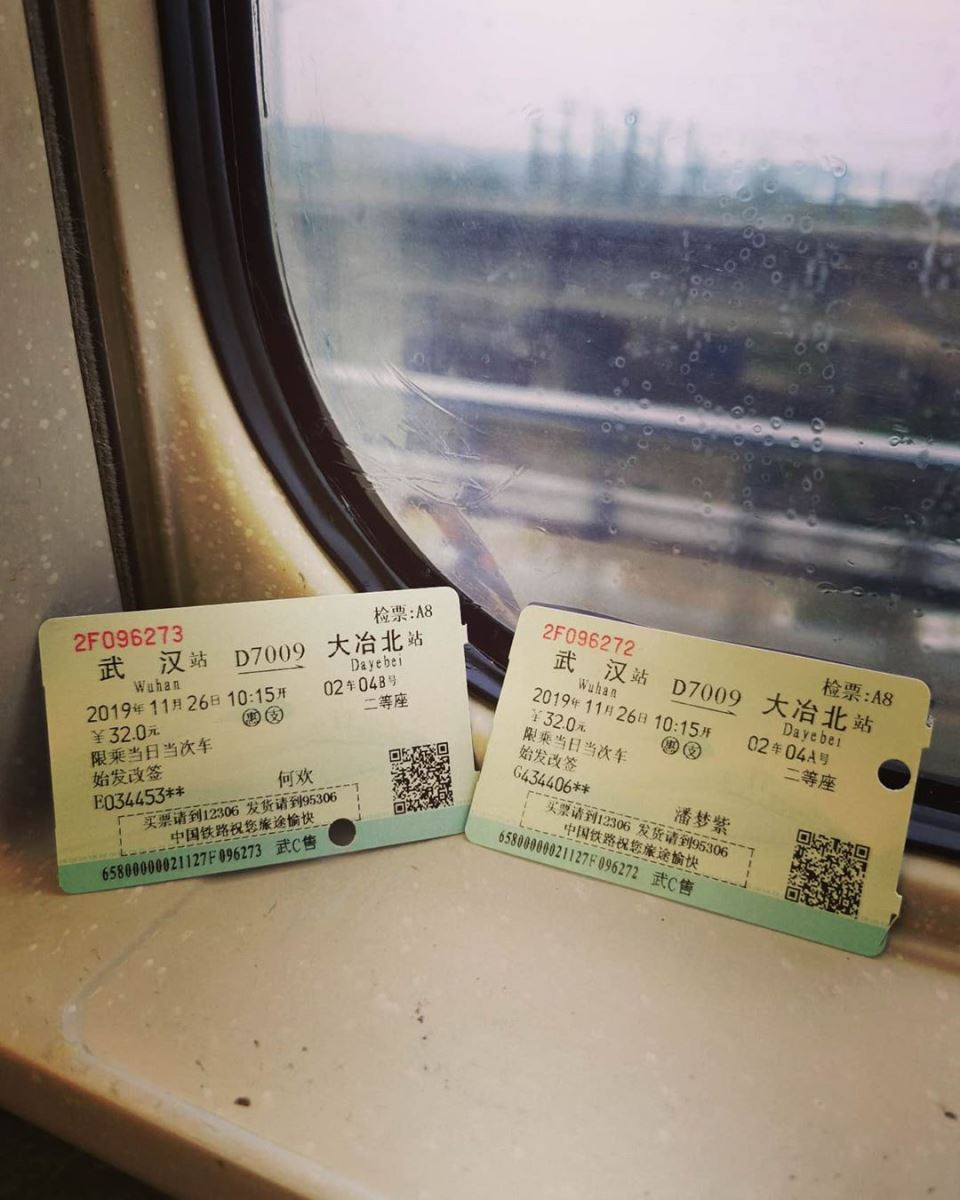
By boat
You also can reach Suzhou by boat via the Grand Canal from Hangzhou and vice versa. There is only one boat a day that leaves at 5:30pm.
Getting around Hangzhou (#hangzhou china travel blog)
From Hangzhou airport to city center
From Hangzhou airport to the city, there are 2-3 options:
- Take a taxi: No need to book in advance, about 118 yuan.
- Take the shuttle bus to Hangzhou Railway Station, then change to the subway. The price is 20-35 yuan/way/person. But taking the subway costs about 2-9 yuan.
- Buses and trams: Hangzhou has a clean, comfortable bus system that makes it easy to get around. Bus K7 is very convenient, connecting the main train stations to the east side of the West lake. Bus K56 goes from the East station to Yan’an Lu and buses 15 and K15 connect to the Northern long-distance bus station.
Getting around
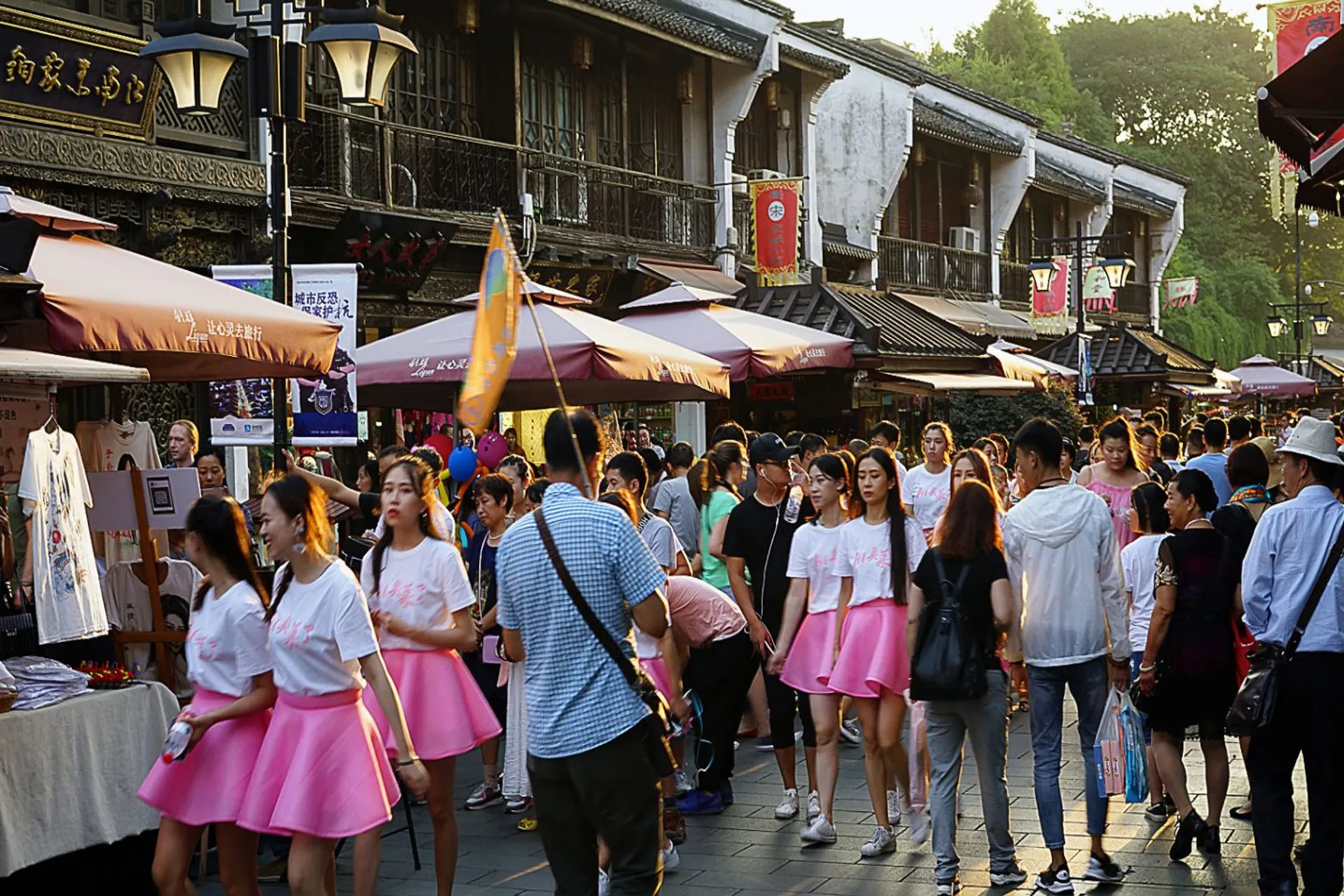
Transportation in Hangzhou is quite diverse, from buses, taxis, subways to bicycles and motorbikes for rent. However, the price of taxis is quite expensive and the language barrier is quite large, so traveling by means of transport such as taxis or buses sometimes becomes difficult.
Metro
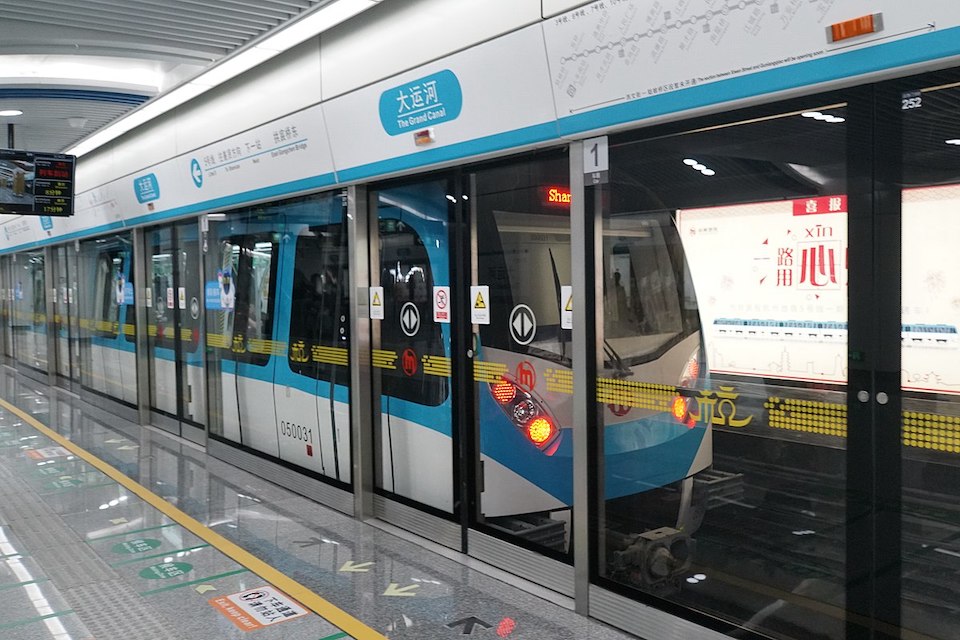
The metro system is also an option that you can try when traveling to Hangzhou to save money and time when you want to go to distant tourist destinations. The train lines are available in Chinese and English, you can easily follow and visit many places.
It is recommended that visitors should use the subway to avoid wasting travel time unnecessarily. Moreover, the subway passes through most of the important places. The price is about 2-9 yuan/trip depending on the length.
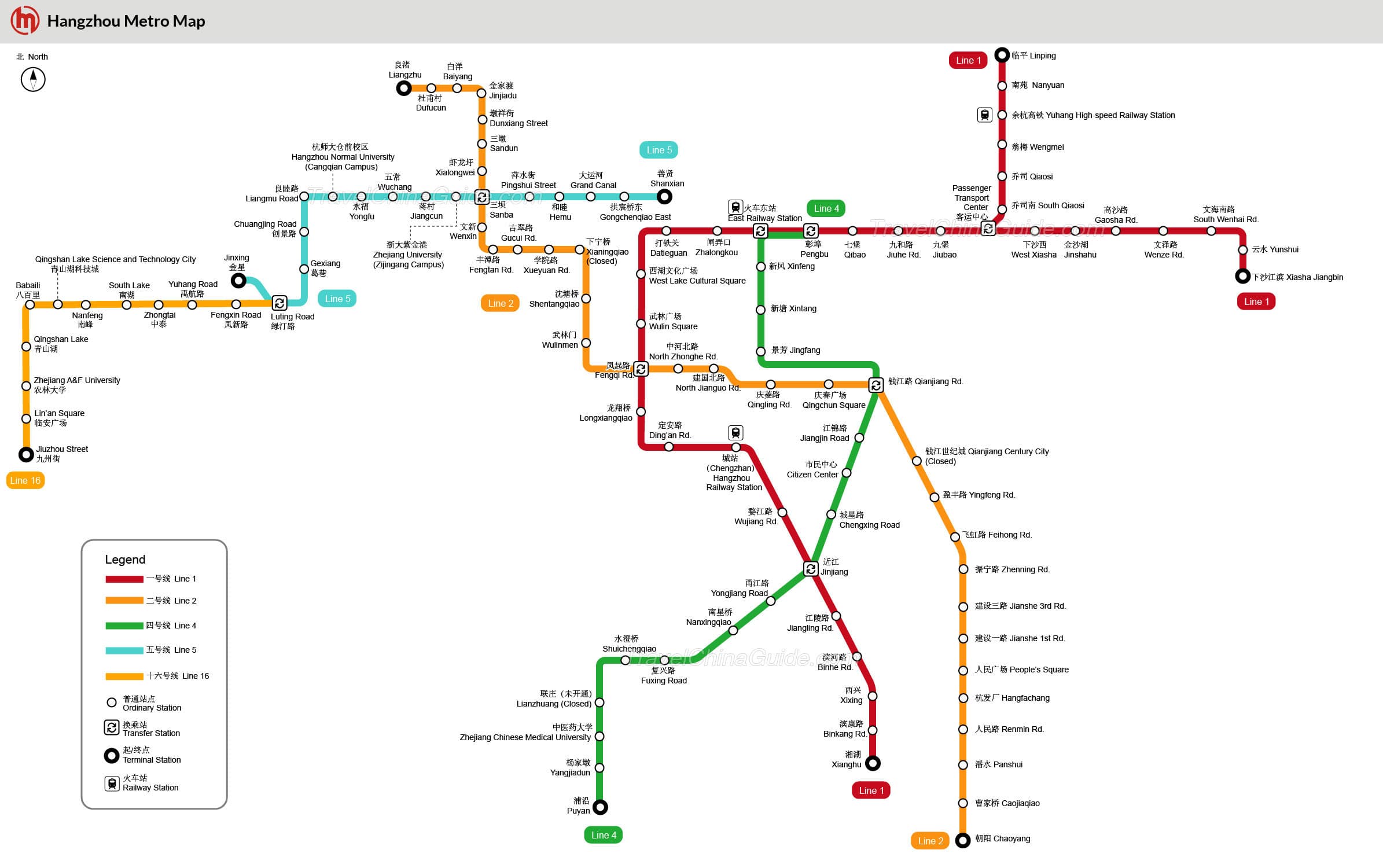
Other means of transport
In most cities in the Jiangnan region in China there are:
- Bus: 2 yuan/way
- Public bicycles, go anywhere to park the bike there is okay: The price is about 0.5-1 yuan/30 minutes
- Train: Getting to all parts of the country
- Boats and ferries: In addition, in some tourist destinations, there is a method of traveling by boat or boat. When traveling by this method, you can see and feel the scenery, the fresh and cool atmosphere of the city. You can getting around the interlaced canals + lakes as much as in this Jiangnan region.
- Long-distance bus: Connecting cities together
- Bike: A special feature in China compared to other countries is the convenient rental bicycle system. For example, if you’re tired of walking, it’s still far from the bus or subway station, you can swipe your card, take a bicycle and then leave it at the station near the metro or bus, so convenient, right? I rented a bike at Mingtown Youth Hotel and shops near the lake. Please check the bike carefully before setting off.
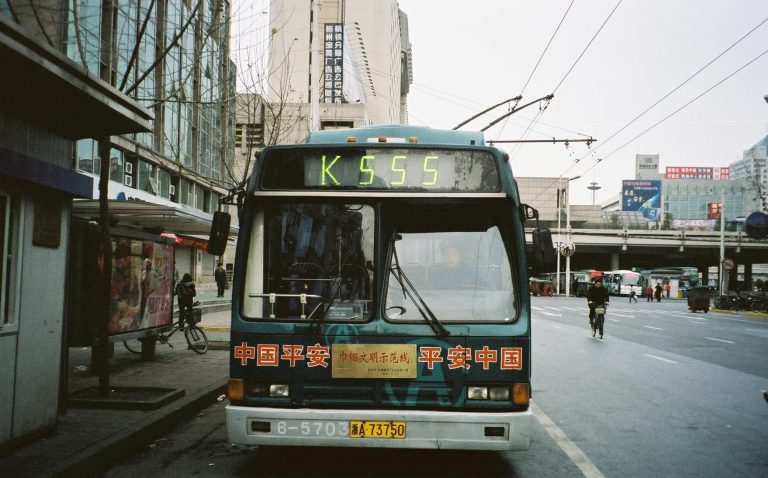
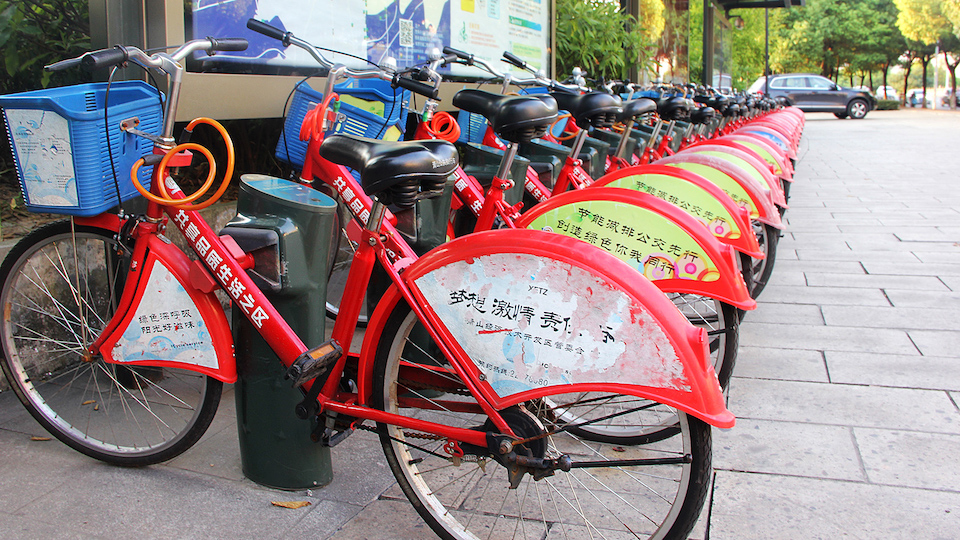
To use most public transport, you should use the passenger pass of each city.
Hangzhou Transportation Smart Card: There are 2 types of cards: Xi Ling Card and IC Card. Xi Ling is a card that fixes the amount/day, there are 1 day for 15 yuan, 2 days for 25 yuan. But I find it quite limited. The IC card is how much charge you use and how much it costs. With the type of IC card, you should choose type Z, for tourists and get a full refund. However, if you want to use public bicycles, you have to top-up an amount of more than 300 yuan into this card as that kind of deposit. To create a card, go to the airport and ask or go to the card center at 20 Long Xiang Lu, Yan An Lu Bus Stop.
What to do and where to go in Hangzhou? (#hangzhou china travel guide)
Xi Hu (West Lake, Xi Lake)
The beauty of West Lake is a masterpiece of nature with three mountain sides, located right next to the old town west of Hangzhou. There are four seasons in a year, with each season of the West Lake, tourists can admire the different, very unique beauty of each season of Hangzhou on the West Lake. This is a tourist destination that no tourist should miss when coming to Hangzhou.
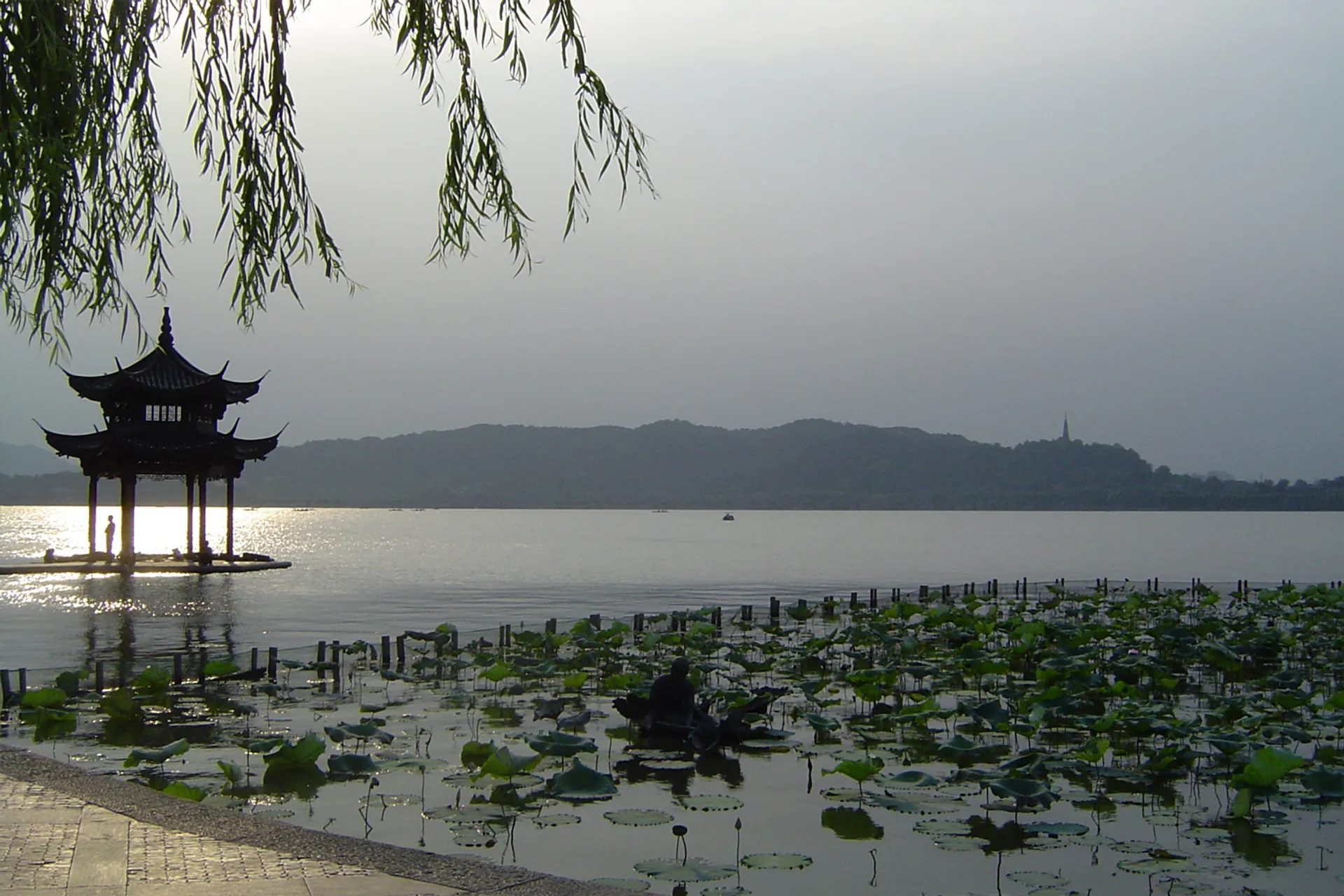
If you can walk around the lake with 5 – 6km long, you will see:
- Plum, peach and magnolia flowers bloom like in the Chinese historical movies that we often watch.
- The willow branches drooping poetically with the boats in the background. If you can go right time and at sunset, it must be very poetic.
- There are many historic sites on lake shores: 2-3 big pagodas and temples, 3-4 palaces, tombs of generals and writers and martyrs of the past.
- Boys and girls compete for cosplay photos in a historical style.
- In Hangzhou, every place is named very elegantly, suddenly walking around, you will see actors and actresses writing calligraphy with water on the brick courtyard around the lake.
- In addition, you can also take a boat ride around the lake and go to small islands on the lake to see beautiful gardens.
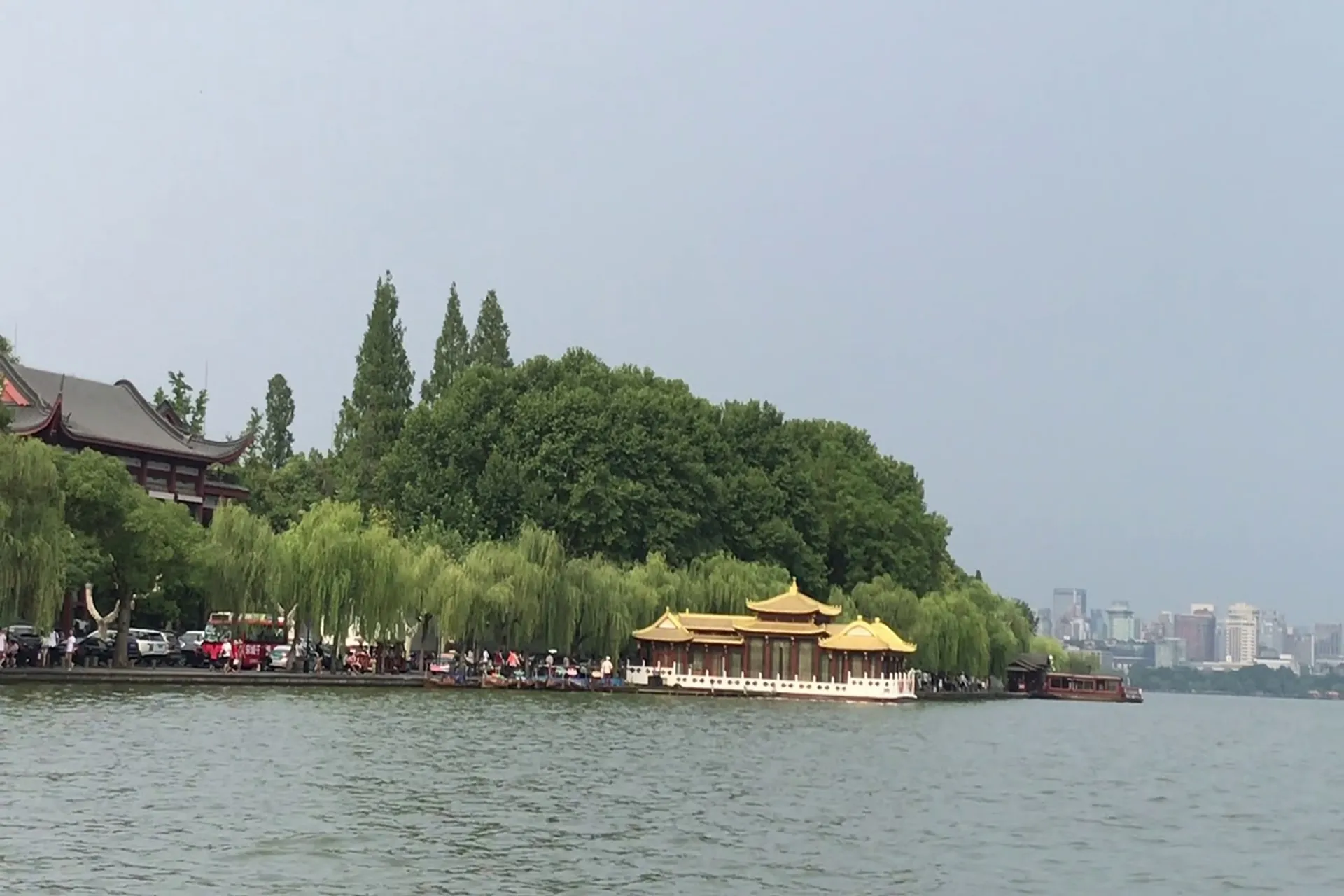
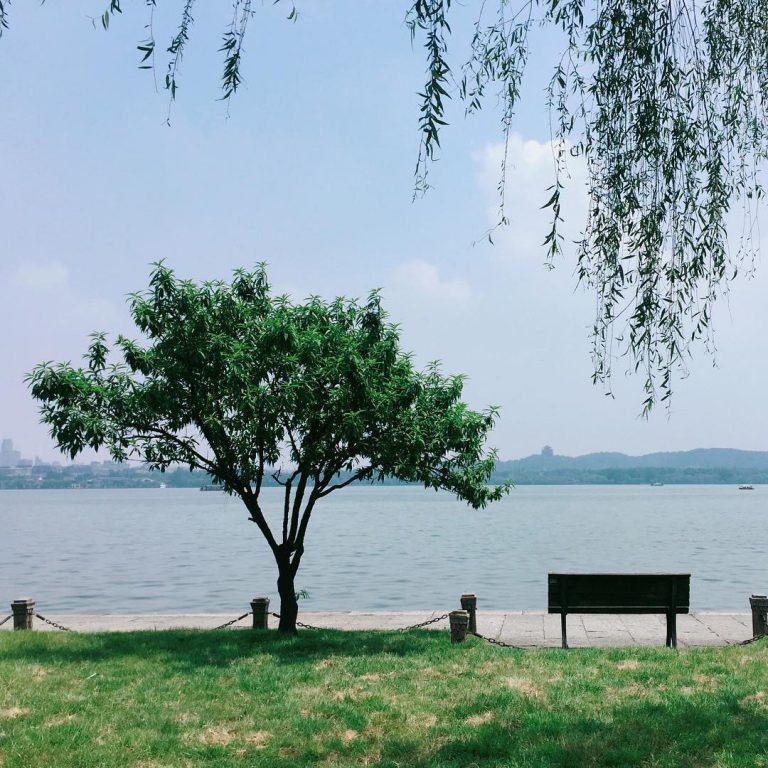
West Lake is considered the focal point of Hangzhou visit by most tourists. This is also the oldest and largest part of the city center. Surrounded by rolling hills and ancient temples, the large lake covers an area of more than 6 square kilometers and is divided into five parts by two paths that cross the lake, Su and Baidi.
It is also the most important attraction of West Lake by connecting the north and south banks of the lake and is a popular strolling place for tourists and locals alike thanks to its beautiful scenery.
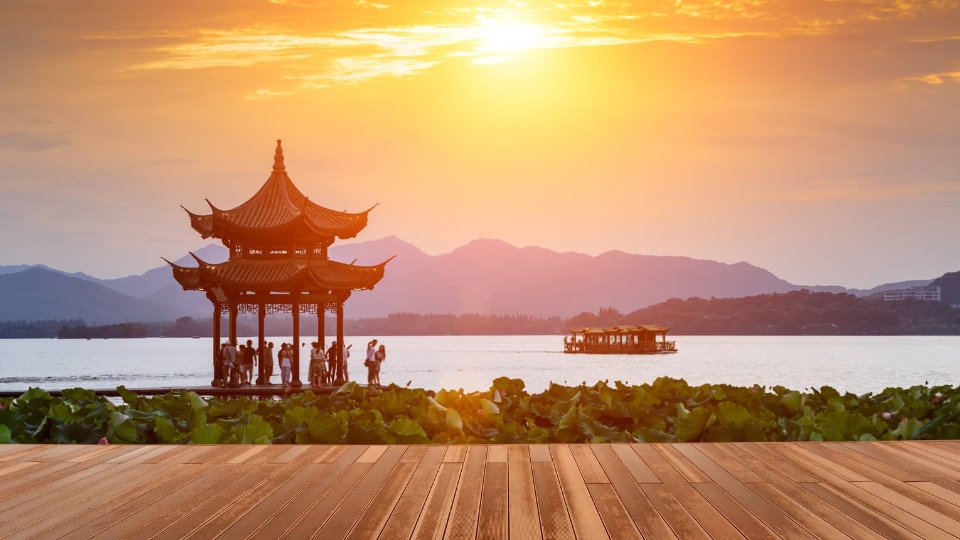
Around the lake there are many beautiful scenes including ancient gardens, temples, pagodas and bridges. The nearby West Lake Museum is also a must-see, helping visitors better understand this historically rich area. And finally, don’t miss the fun water music show here, held at 7pm every day.
You can also take a boat trip to the lake and go to the island on the lake to see the beautiful garden.
You can buy tickets from the shore, the fare is cheap:
- Sightseeing boat, small wooden boat, covered: 55 yuan/person
- Painted and repaired boat: 70 yuan/person
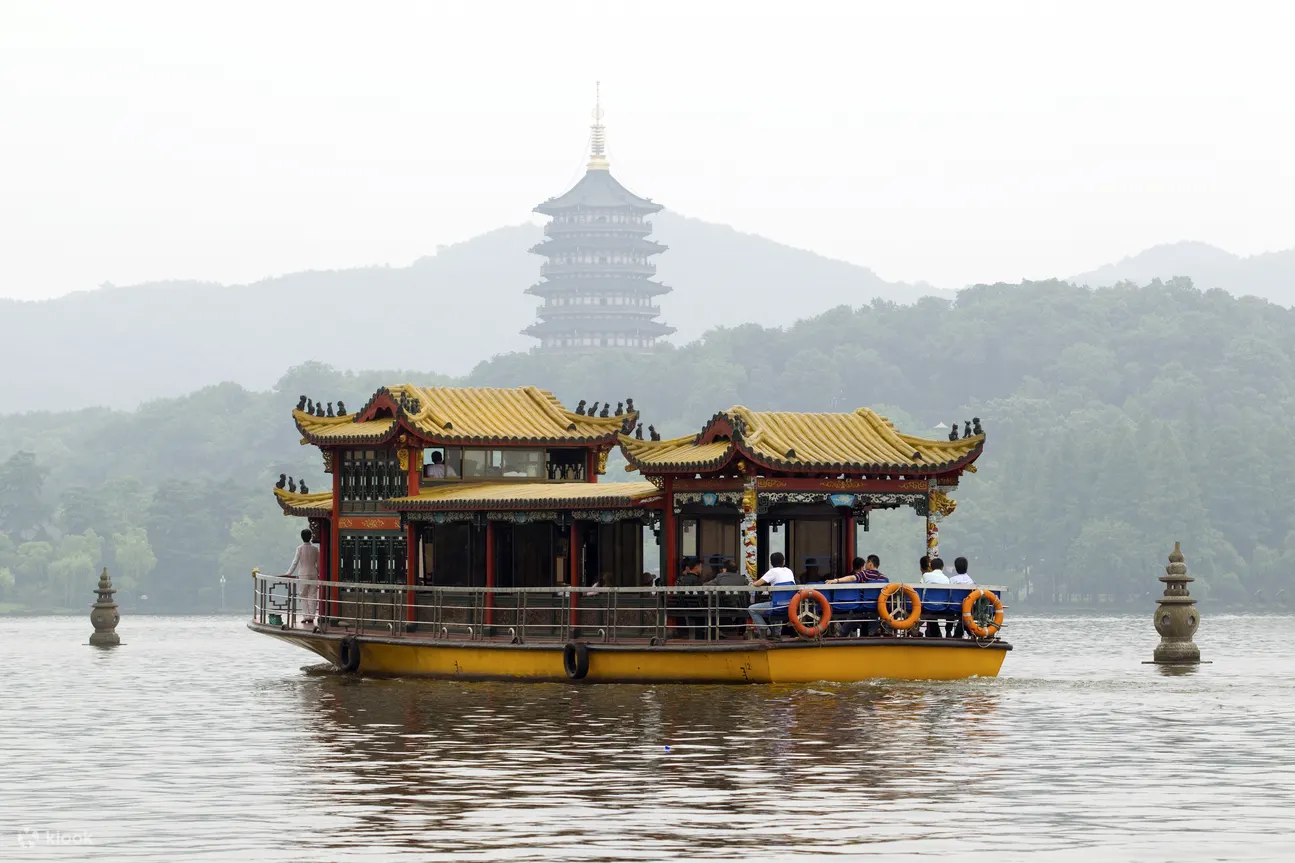
And if you rent by the hour, the small boat is 150 yuan/hour. Big boat 180 yuan/hour. If you drive yourself, it’s 30 yuan/hour, but if you rent a boat, it’s at least 6 people. If you go at night, the price is different:
- Dragon boat: 90 yuan/person
- Beautiful painted boat: 50 yuan/person
- Boat with rowers: 150 yuan/hour/ at least 6 people
And there’s even a boat that goes from Hangzhou to Suzhou at night, it’s called a river cruise. There is a bedroom and a dining room. Going this way, you will admire the scenery on both sides of Jinghang Waterway. I promise it’s very beautiful because West Lake in Hangzhou and Taihu in Suzhou are already super beautiful.
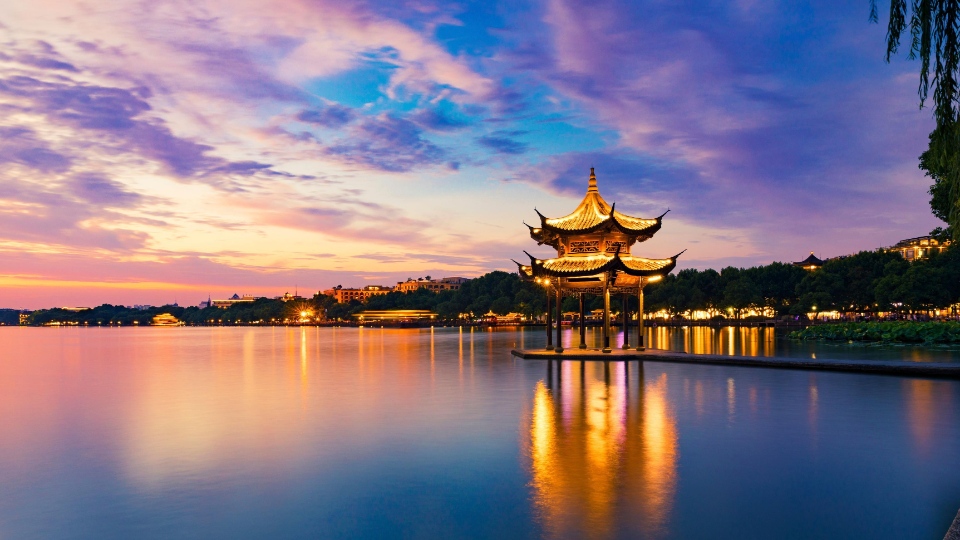
Leifeng Tower
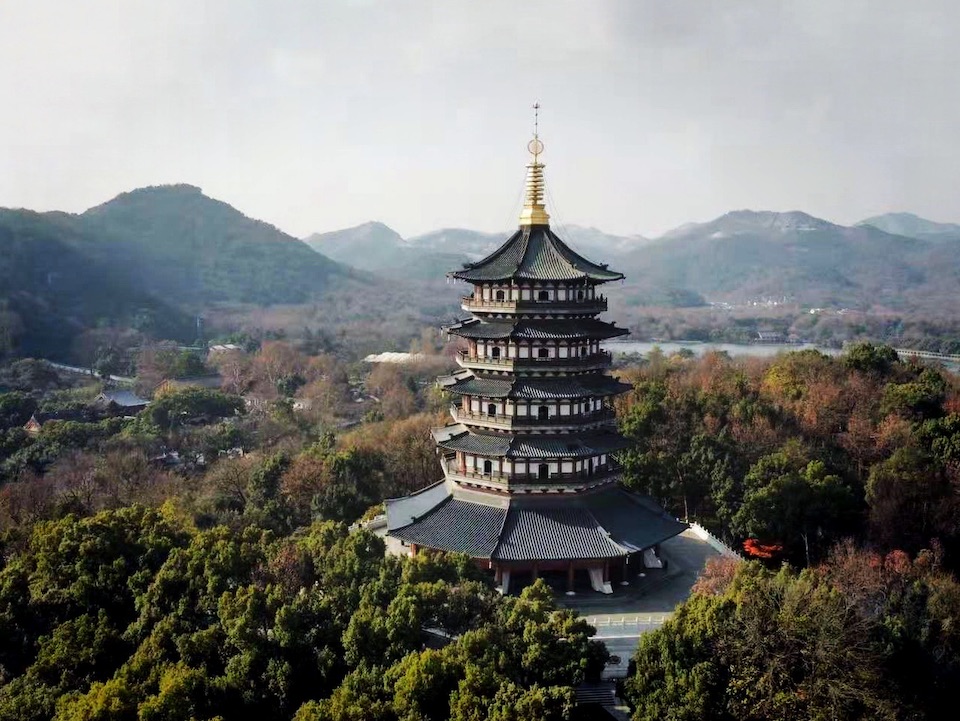
Located on the south bank of West Lake, Leifeng Tower is an ideal sightseeing spot in Hangzhou. The tower was built in 975 but collapsed in 1924. By 2004, the local government had started to rebuild. Standing from here, visitors can watch the clouds and the sky interspersed with flowers blooming brilliantly in the spring sunshine. One thing that many tourists don’t know is that the Leifeng Tower is the place where Fa Hai zen master imprisoned White Snake (Fann Wong) in the famous legendary white snake legend.
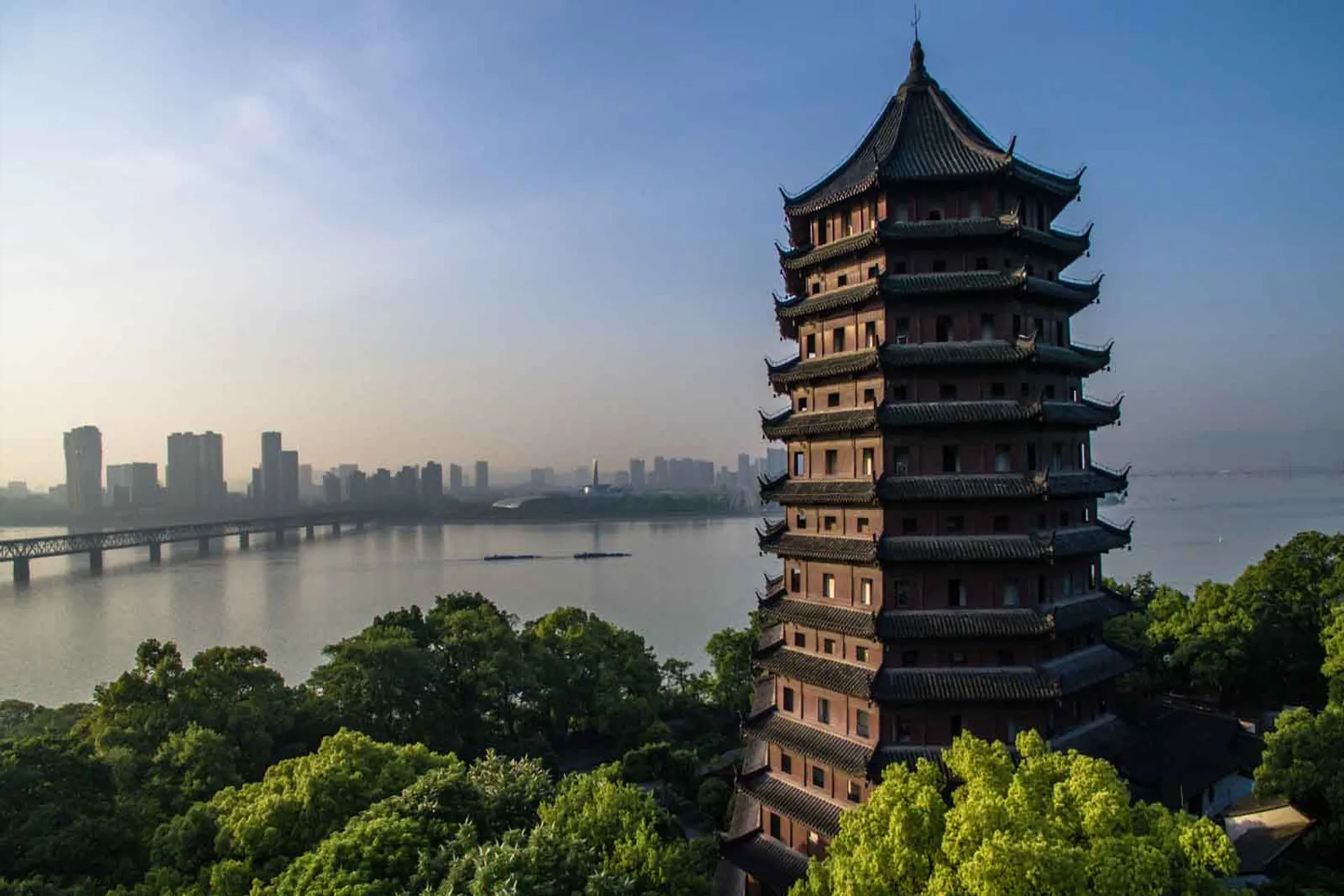
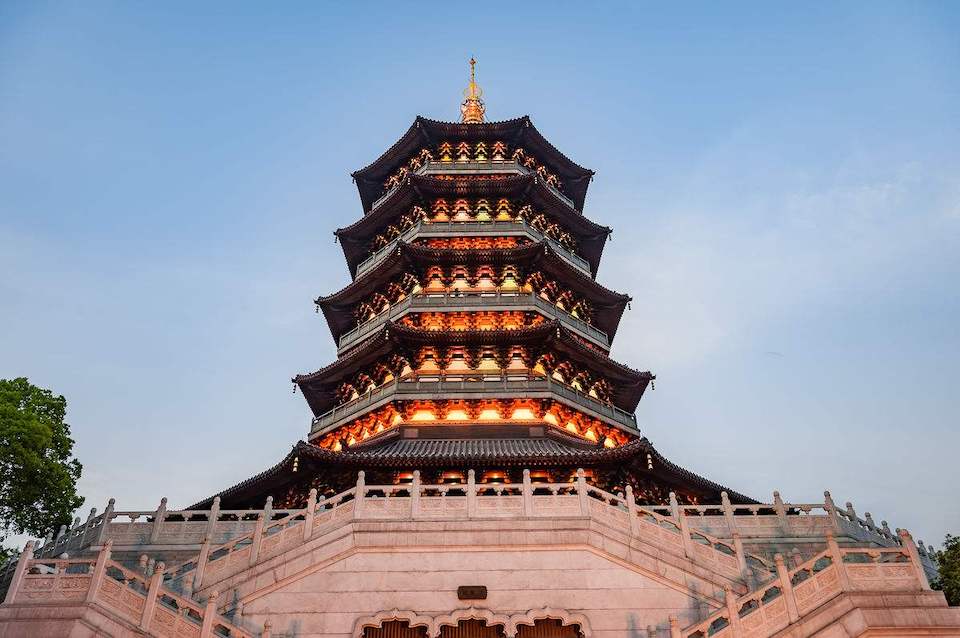
Qinghefang Ancient Street
Address: 65QG+R5W, Hefang Street, Hangzhou, China, 310006
Qinghefang Pedestrian Street is a shopping paradise, the famous silk road in China. There is a wide variety of goods on sale along the way, and visitors can buy silk, tea, ceramics and more at an affordable price.
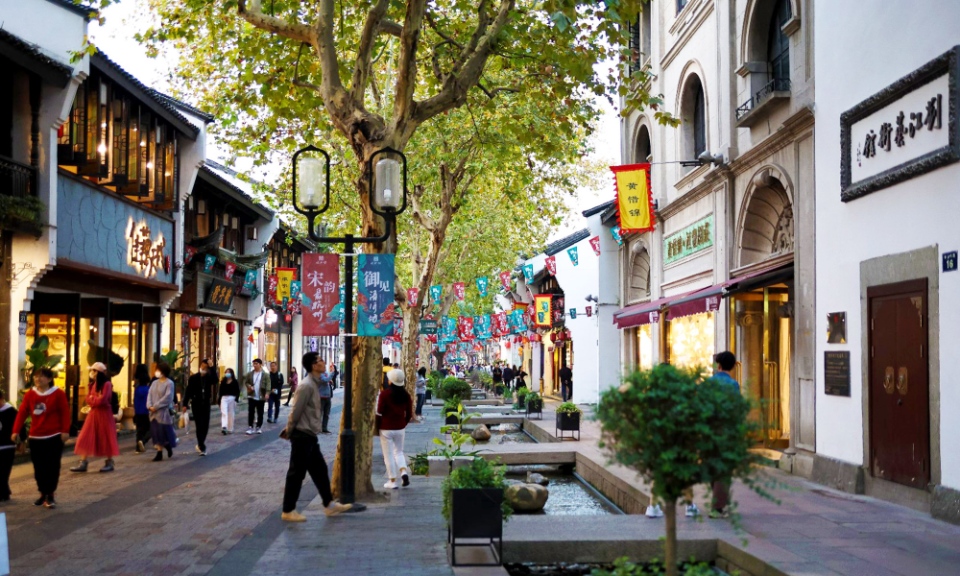
Lingyin Temple
Hangzhou is deeply influenced by Buddhist culture, so experiencing Buddhist culture will be one of the top things you should do in Hangzhou. The most famous temple in Hangzhou is Lingyin Temple, which is one of the ten most famous ancient Buddhist temples in China. After visiting Lingyin temple, you shouldn’t miss Peak Flown From Afar (Fei Lai Feng) near Lingyin temple, which is a famous Buddhist hill with amazing views with rock carvings.
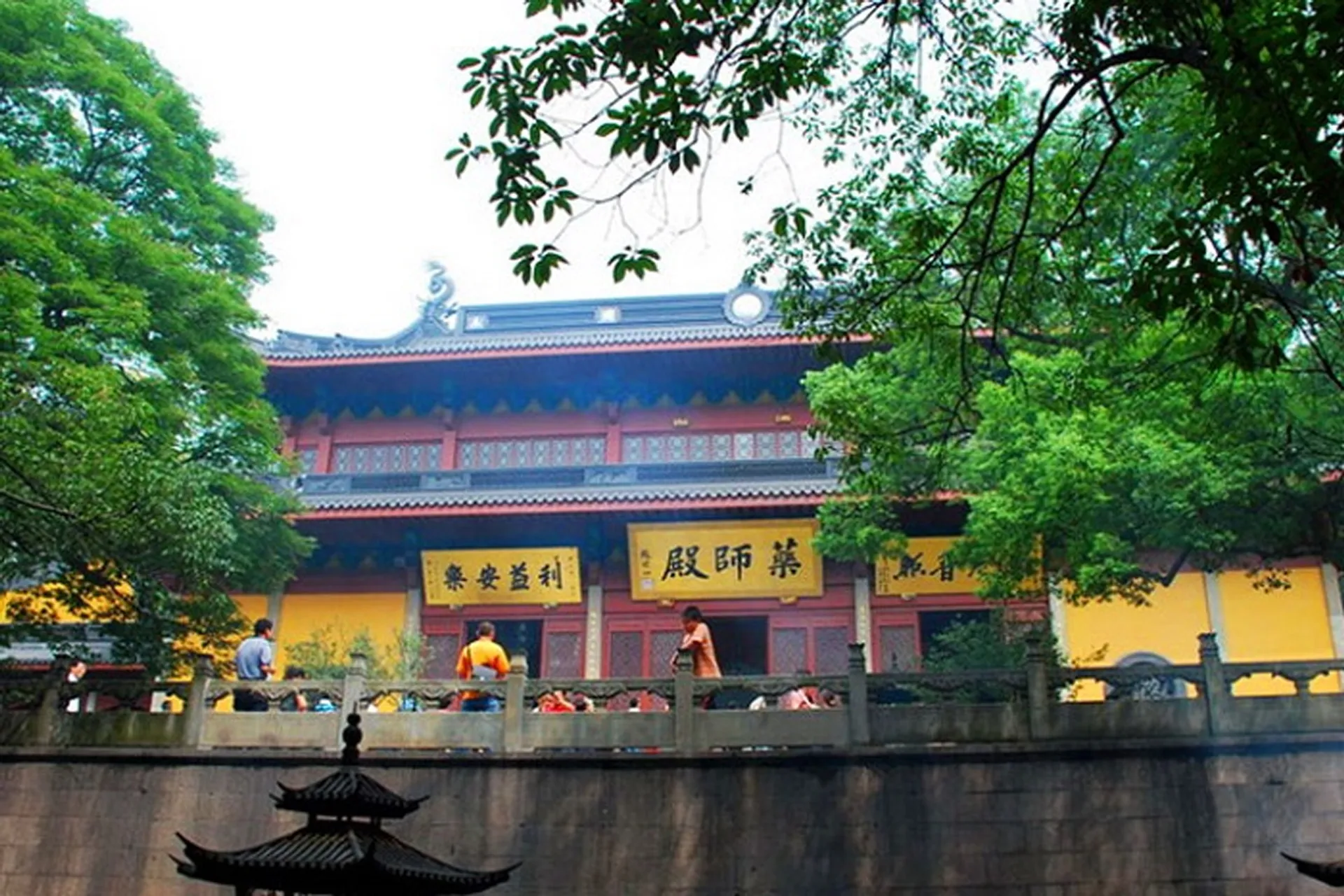
With a history of nearly 1700 years, Lingyin Temple is the oldest and most famous temple in Hangzhou. Located inside a forest full of serenity and impressive scenery, Lingyin Temple has long been considered a great destination for devotees and lovers of poetic nature.
Behind Beigao Peak and in front of Mount Feilai, the temple setting is covered with white clouds, giant trees, caves and delicate carvings, this place is honored as one of the temples. most important in the Jiangnan region because of its important Buddhist significance during the Song Dynasty.
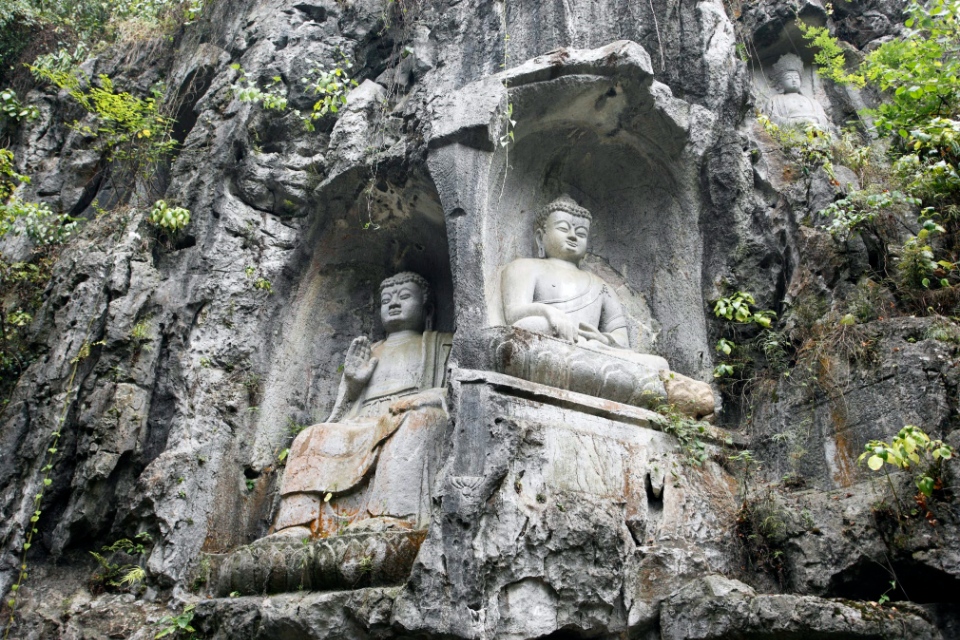
This is a place that has a lot to offer, including nature and culture. Although sometimes the number of tourists come here is very crowded, but the temple still retains the inherent peaceful atmosphere. The main halls of the temple are built along the axis, including the Heavenly King Hall, the Grand Hall of Great Sage, the Palace of Medicine Buddha, and many other halls on either side.
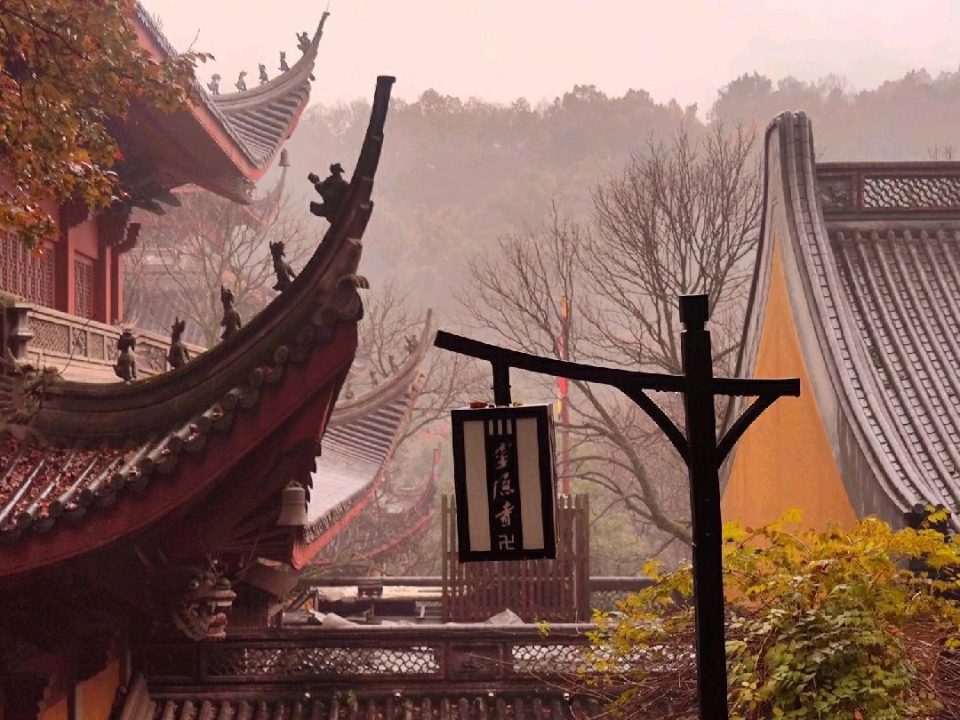
- Address: No. 1 Fayun Lane, Lingyin Road, Xihu District, Hangzhou
- Opening hours: 7:30am~6:00pm
- Ticket price: 75 yuan/person in peak season; 45 yuan/person in low season
- Recommended touring time: 2~3 hours
Liuhe Pagoda
Liuhe Pagoda was first built in AD 970, along with Leifeng Pagoda and Baochu Pagoda as the three most famous ancient towers in Hangzhou. Located on the north bank of the Qiantang River, the 60-meter-tall pagoda stands tall by the river, attracting a large number of tourists to visit each year.
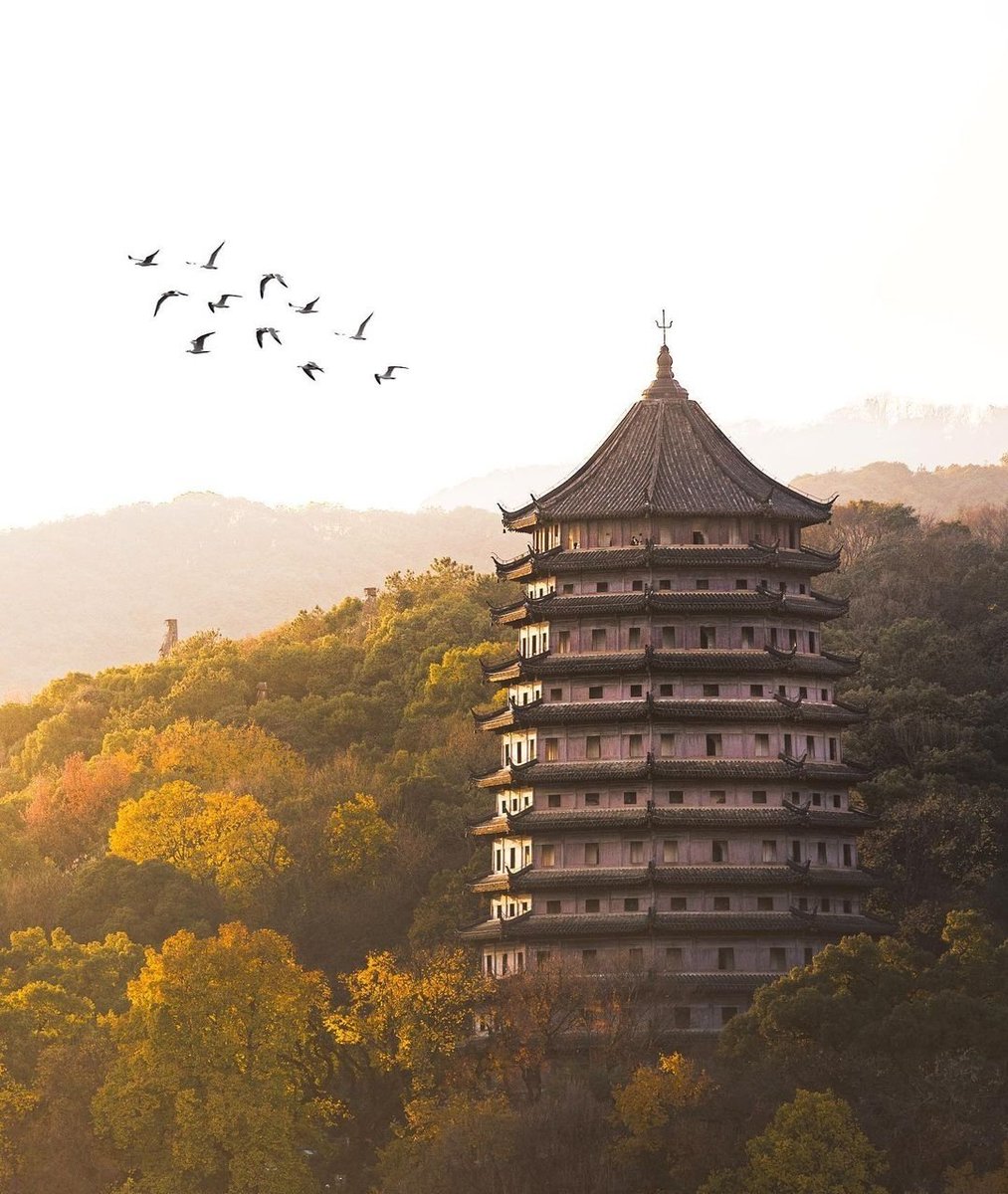
The temple is considered as a general guarding the Qiantang River, perfectly ancient and magnificent. Visitors can also enjoy the melodious sounds of 104 bells hanging from the temple eaves when the breeze blows. Inside the pagoda, seven floors are connected by a spiral staircase, each floor is impressively decorated. There are about 200 carvings of flowers, birds, wild animals… with delicate skills and fancy structures.
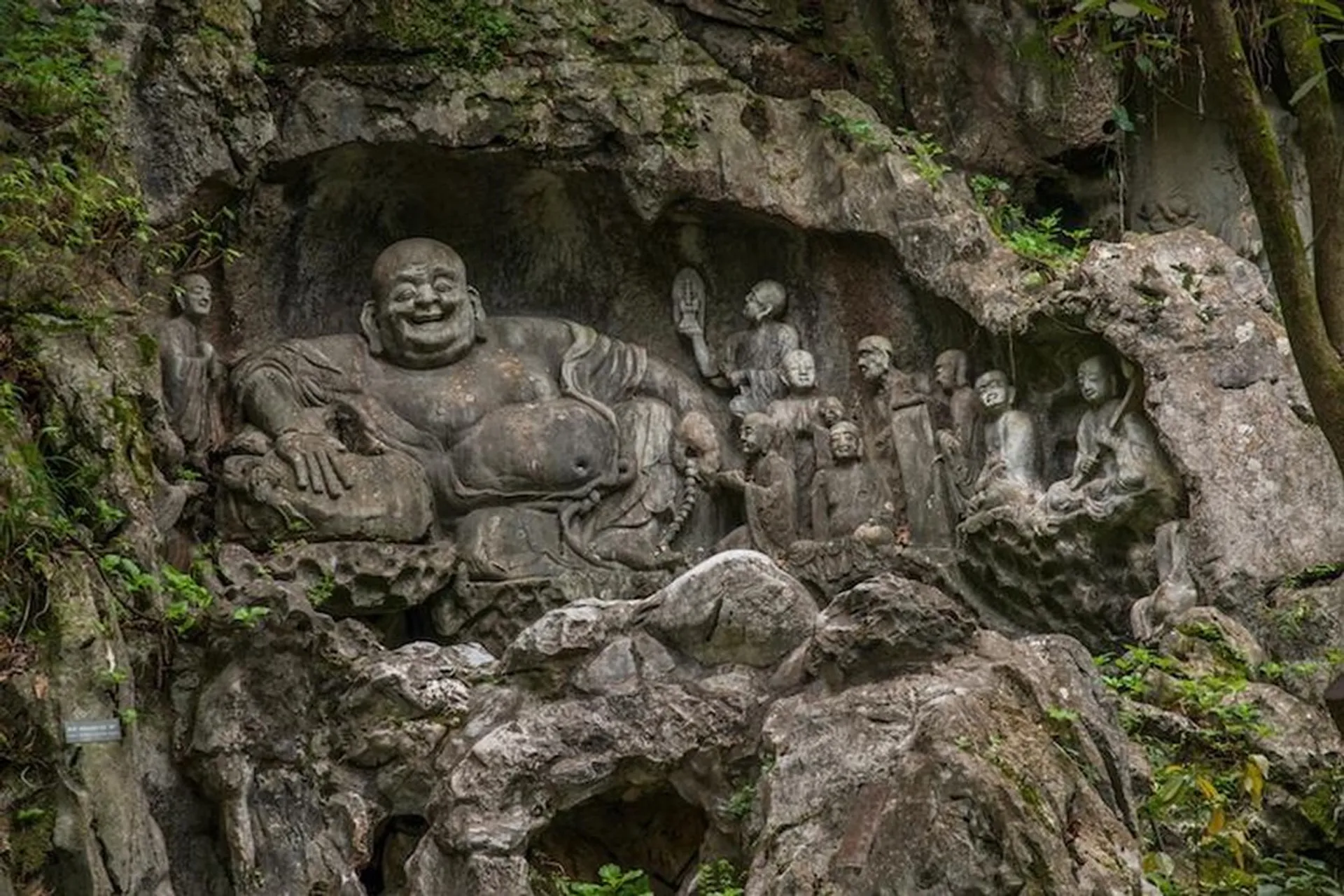
Along with that are excellent poems praising Liuhe Pagoda and the Qiantang River by famous people such as Emperor Qianlong of the Qing Dynasty that are still preserved here.
- Address: No. 16, Zhijiang Road, Xihu District, Hangzhou
- Opening hours: 6:30 a.m. to 5:30 p.m
- Ticket price: 20 yuan/person (excluding climbing fee)
- Recommended tour time: 1~2 hours
Longjing Tea Plantations
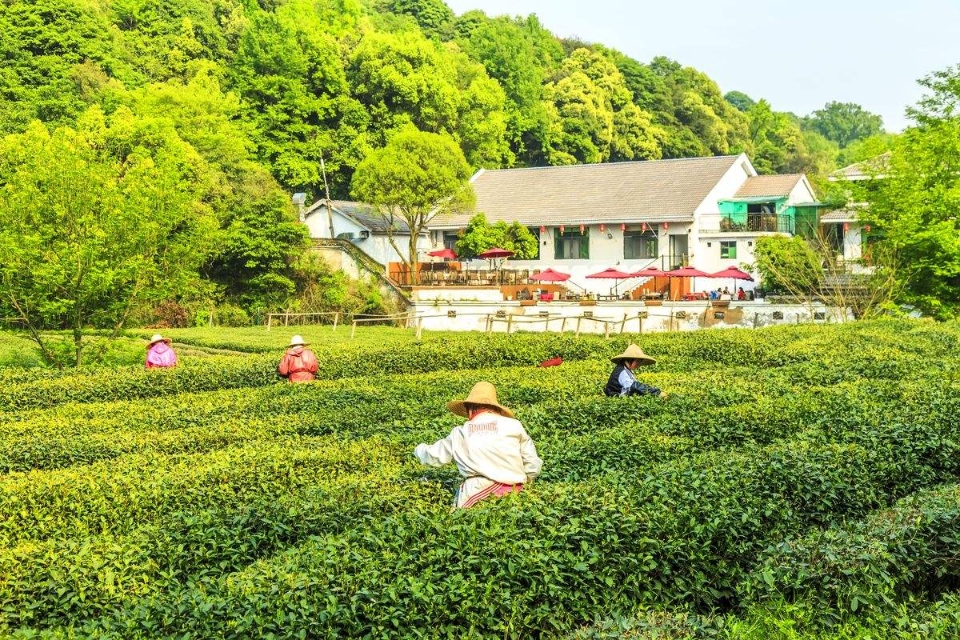
China has long been famous for its unique tea culture. In particular, Longjing tea more than 1200 years old is known as the number 1 tea in this country. Visit the Longjing tea plantations in Hangzhou not only to learn more about tea culture and how this elaborate tea is produced, but also get a chance to enjoy the poetic scenery of the surrounding tea plantations around the city.
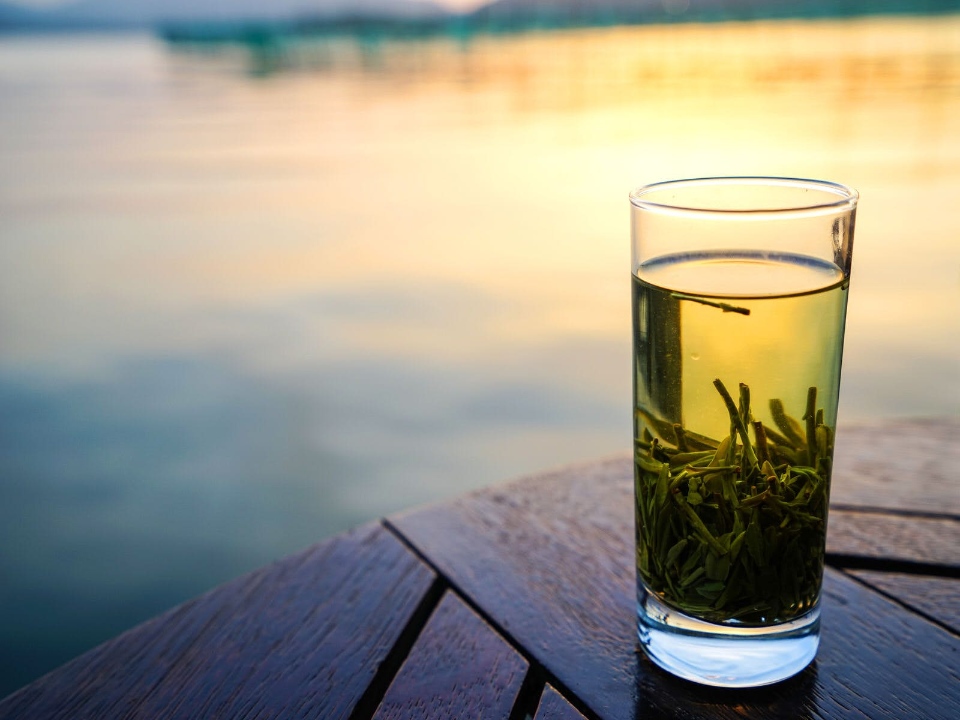
Longjing Village, just 3km southwest of West Lake, is known as the oldest origin of Longjing tea and is known as the No. 1 tea village. The picturesque little village has only 800 households with a The plantation planted nearly 800 acres of Longjing tea, surrounded by high mountains creating a beautiful green landscape, likened to a jade by the West Lake.
- Address: Southwest of West Lake, Hangzhou
- Opening hours: All day
- Ticket price: free to enter the village but some small attractions have a fee
- Recommended touring time: 2~5 hours
Thousand Island Lake
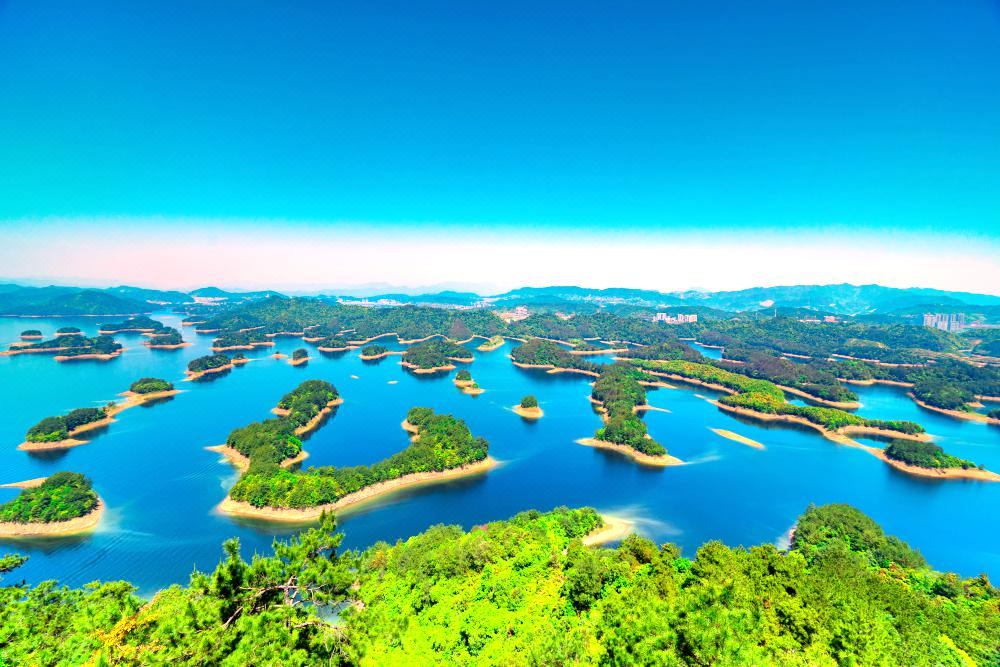
Thousand Island Lake is also an ideal attraction in Hangzhou you should visit once. Located in a lake area with up to 1,078 large and small islands, Thousand Island Lake impresses tourists by its extremely impressive landscape, covering the lake with gentle and enchanting green color. It was once recognized by UNESCO as a world heritage site.
Wuzhen
Located in the north of Tongxiang city, about 13km from the center, Wuzhen is one of the top six ancient towns in southern China. This place is sometimes called the Venice of the East.
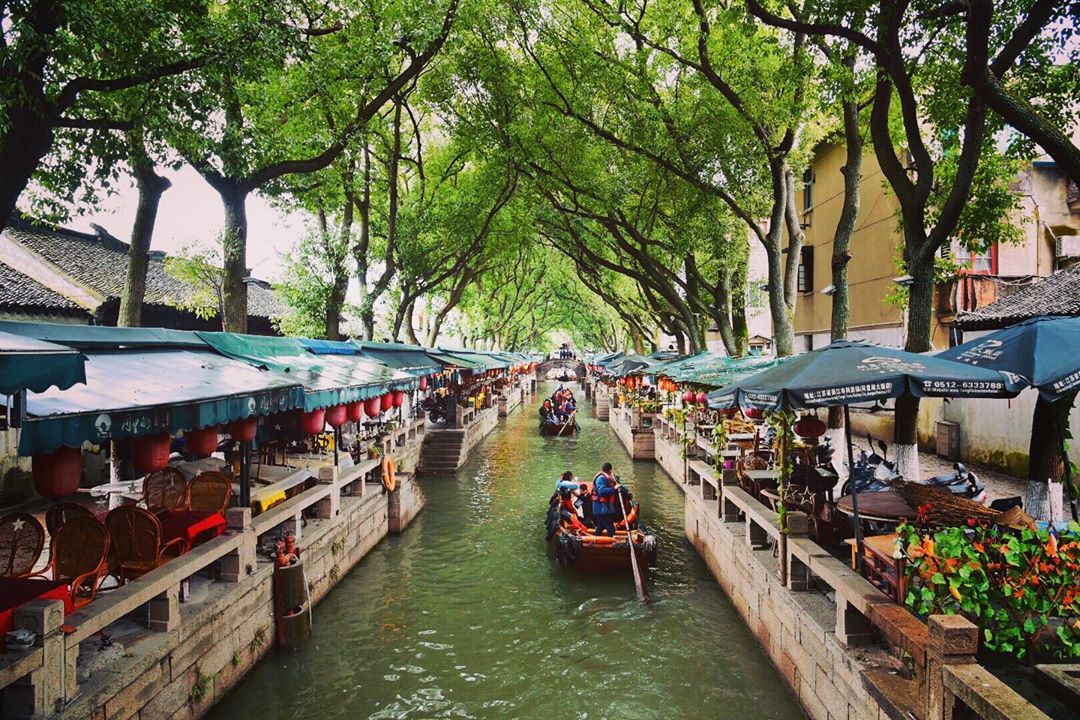
Wuzhen is an ancient water town in Jiangnan, about 1.5 hours by bus from Hangzhou – Suzhou (about 80 – 90km). You can go about 50m to take up to 10 types of beautiful shimmering photos. That’s why virtual believers love this ancient town so much. If going right on festive occasions, those who like the hustle and bustle can go see some activities such as:
- Lunar New Year: Along with Tet in Vietnam, the festival is very big and crowded.
- Lantern Festival: This is probably the biggest holiday after New Year’s celebrations in all of China. On this day, all the rivers and streets will be lit with flowers and red lanterns.
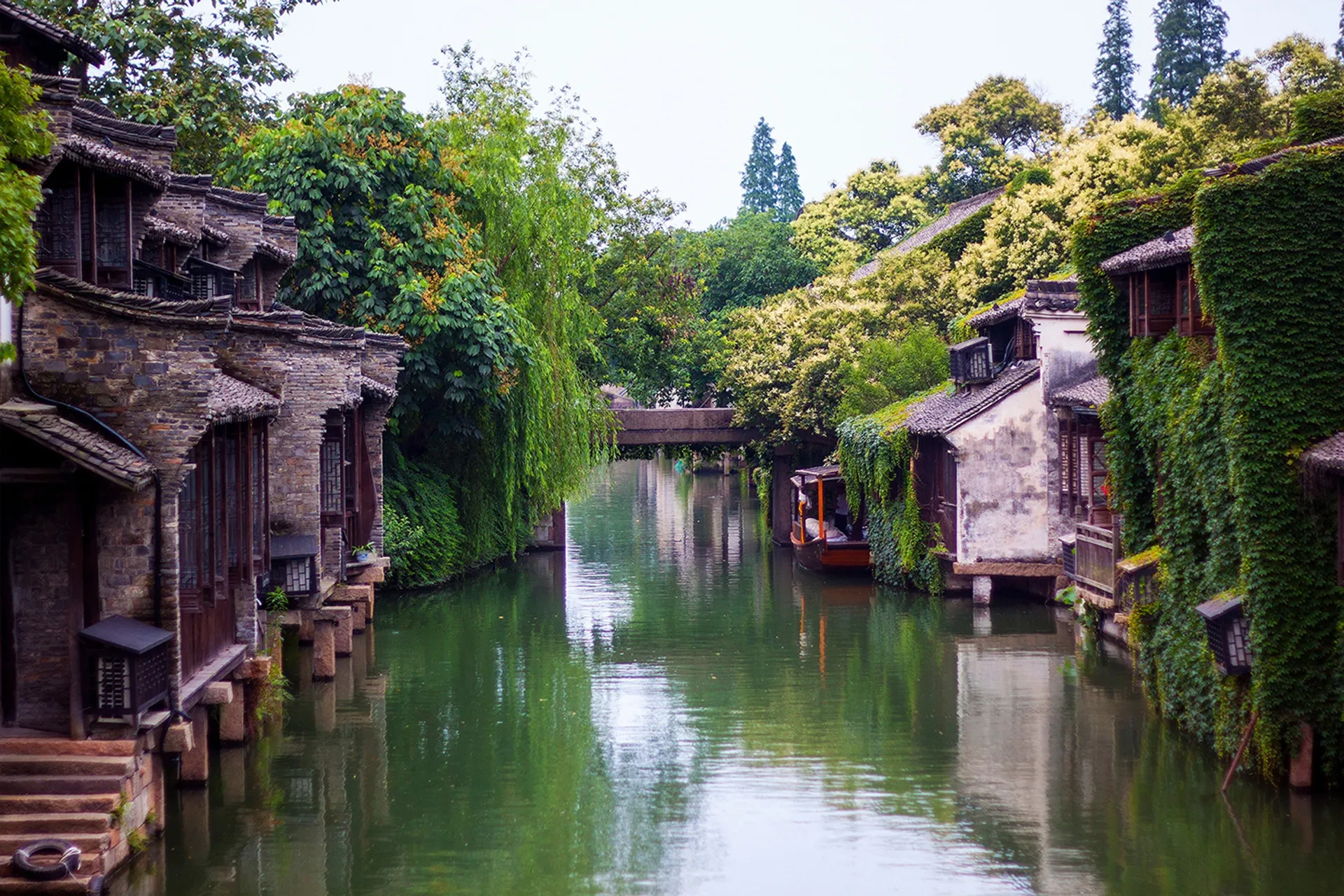
The price to discover this ancient town is also quite “expensive”, about 200 yuan for 2 zones of East and West. It will take you up to a full day to go all the way to this place and rest assured it won’t let you down.
Visitors can immerse themselves in the ancient and romantic space between winding small canals and small stone bridges connecting the two banks of the river.
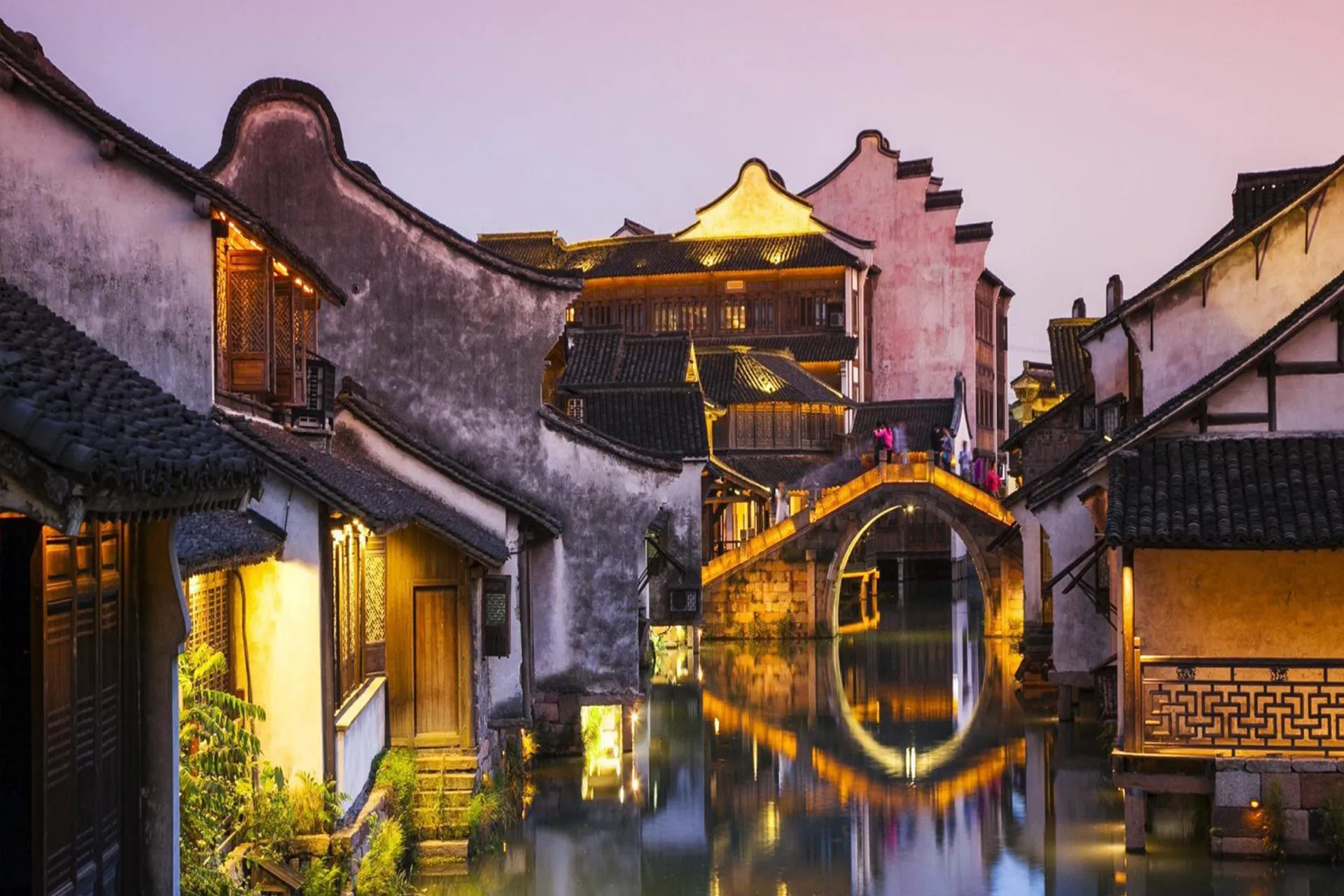
Established in more than 1300 years, Wuzhen is a typical water town of Jiangnan style. It completely preserves the style and model of the water towns of the late Qing Dynasty and the Republic period.
It is divided into six unique zones, each focusing on a specific aspect, including a dedicated area for crafts and workshops, traditional housing, food and drink, arts and crafts, entertainment and shopping. Therefore, visitors coming here are very convenient to explore the town to the fullest.
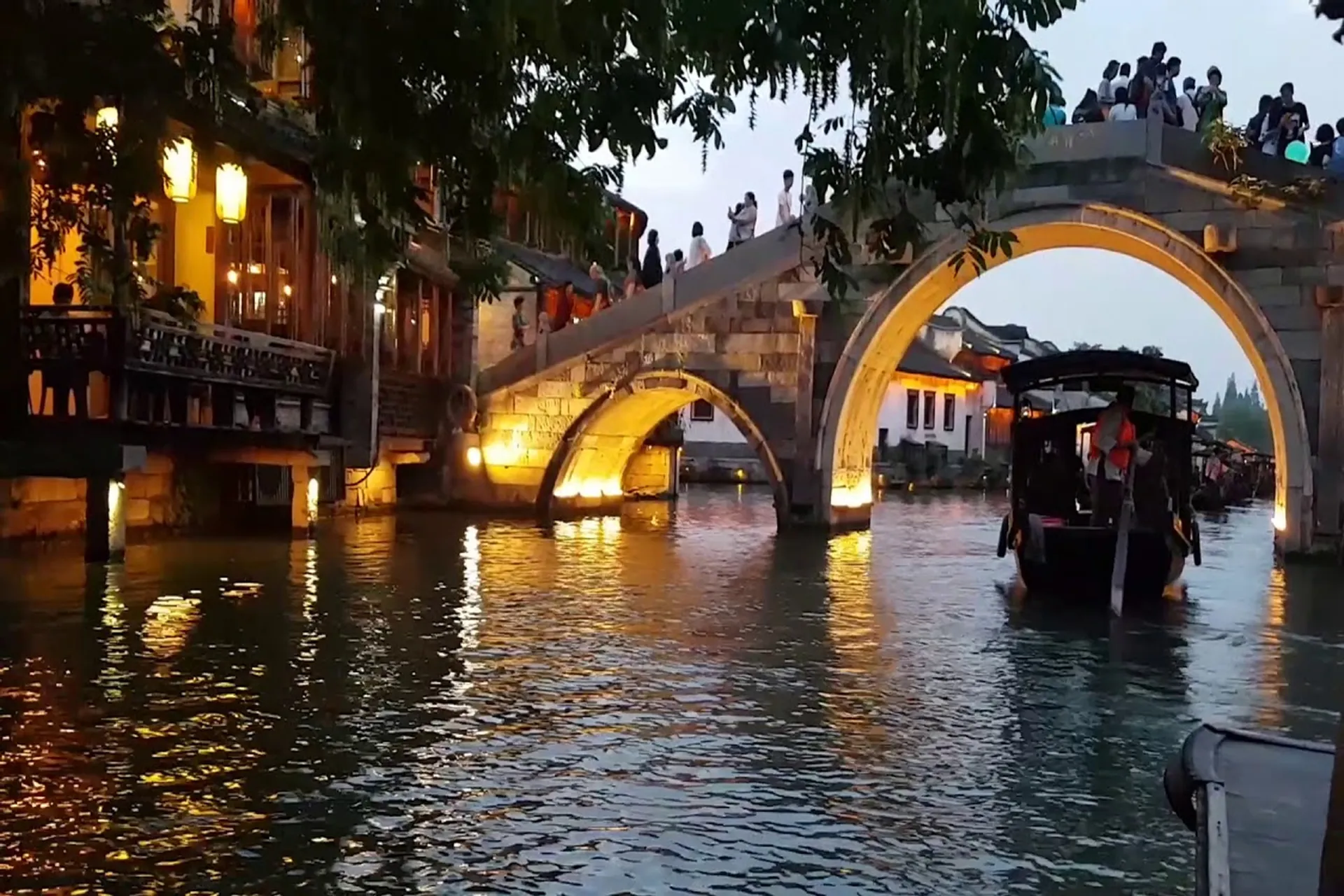
- Address: Wuzhen Town, Tongxian
- Opening hours: Eastern Scenic Area: 7:20 a.m. to 6:00 p.m.; Western Scenic Area: 9:00 a.m. – 11 p.m.
- Ticket price: 100 yuan for the eastern scenic area, 120 yuan for the western scenic area, 200 yuan if you buy a ticket to visit both areas
- Recommended tour time: 1~2 days
Hefang Street
Hefang Street is the most famous street in Hangzhou because of its long history and vibrant culture. This is considered a typical symbol of ancient Hangzhou that is still preserved to this day. Visiting the busy street, you will have the opportunity to explore ancient houses, shops with a long tradition as well as enjoy typical specialties.
Hefang Street was built during the Southern Song Dynasty, when Hangzhou was the capital of the country at that time. It used to be a prosperous business location as well as an important political and cultural center. Today, Hefang Street is still very well preserved, representing Hangzhou’s glorious past and long traditional culture.
You will have the opportunity to learn more about the city and ancient China, explore the culture of traditional Chinese medicine, admire and buy the exquisite handicrafts and enjoy the unique cuisine of Hangzhou.
- Address: Hefang Street, Hangzhou
- Opening hours: The neighborhood is open all day but the shops usually close at 10pm
- Ticket price: free
- Recommended touring time: 2~3 hours
China National Silk Museum
This is not only the first state-level specialized silk museum in China, but also the largest silk museum in the world today. Coming here, visitors will have the opportunity to learn full knowledge about the history of Chinese silk development over 5000 years and the famous Silk Road as well as the changes in Chinese and Western fashion through many centuries.
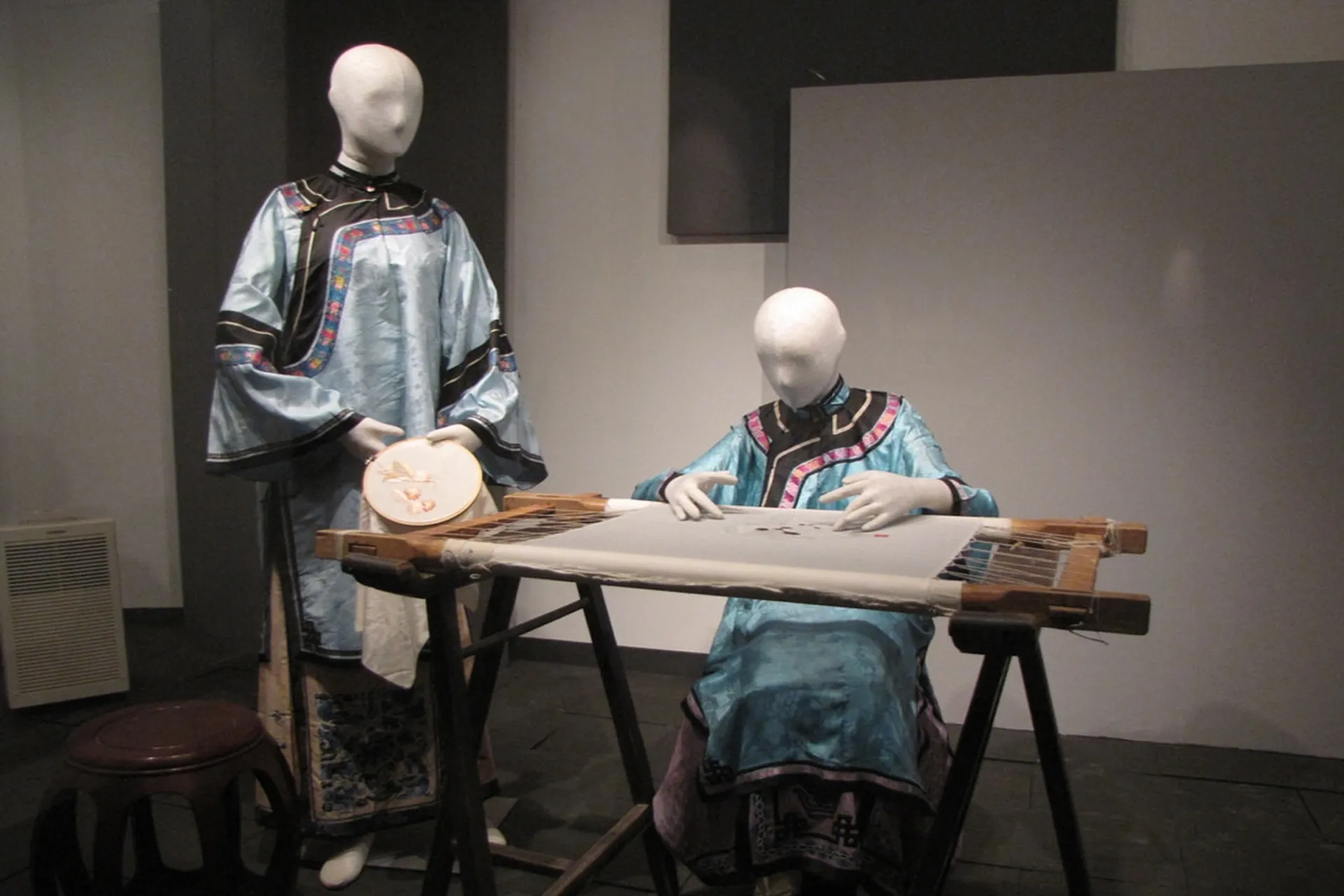
A short distance from West Lake, the China National Silk Museum is located on an area of about 25,000 square meters, including 6 main exhibition areas. Each area is arranged according to a certain theme including “The Story of Chinese Silk”, “Crafts and Crafts of Silk in China”, “Fashion Revolution: Chinese Clothing From 1920s to 2010s”, “Rural to Urban: 400 Years of Western Fashion”, “Textile Preservation Gallery” and “Textile Storage Center Room”. The most prominent feature here is that there are many silk artifacts found from 386-581 AD, which are still preserved here.
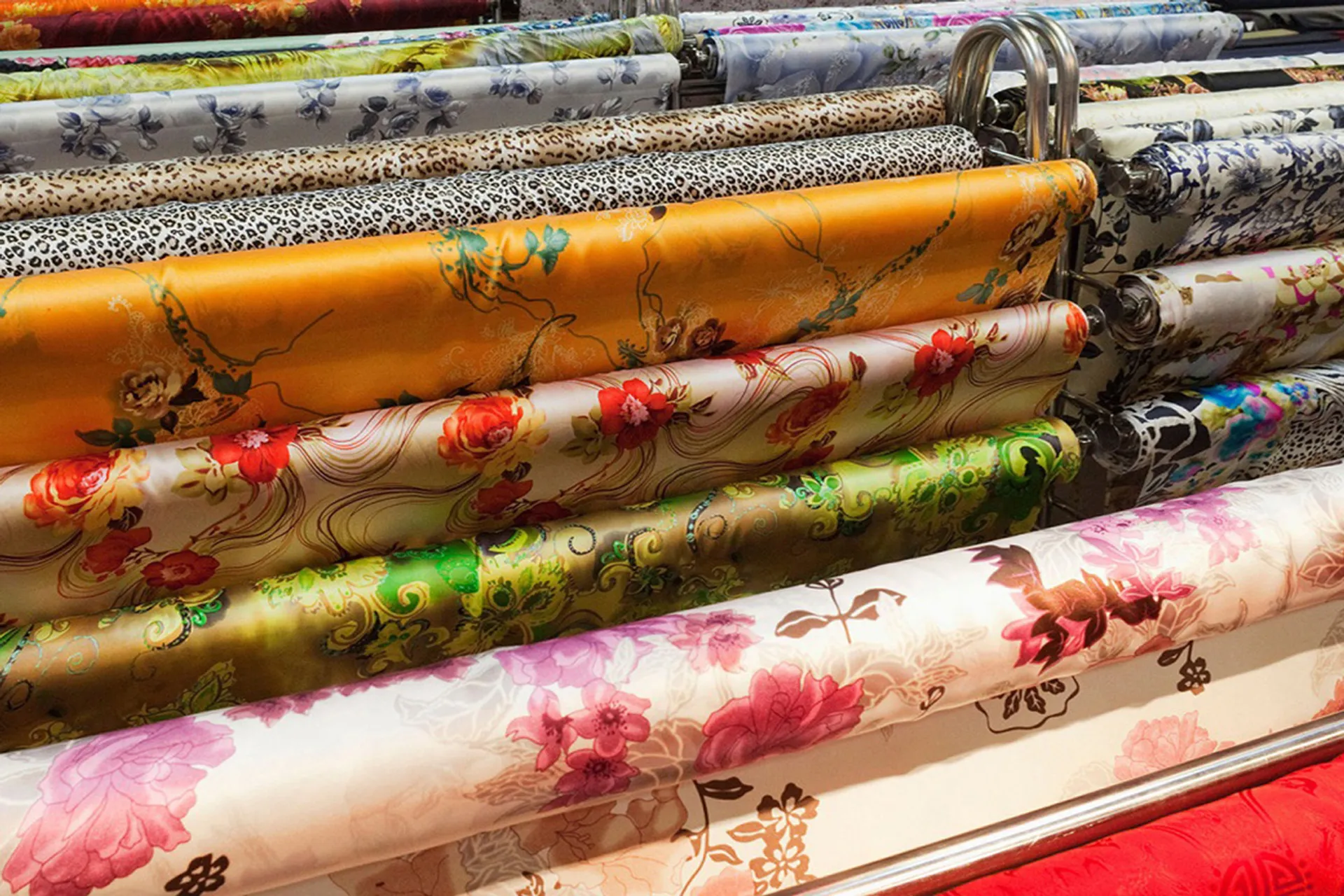
- Address: No. 73-1 Yuhuangshan Road, Shangcheng, Hangzhou
- Opening hours: 9am-5pm from Tuesday to Sunday; 12am-5pm on Mondays
- Ticket price: Free
- Recommended touring time: 2~3 hours
Xixi National Wetland Park
Address: China, Zhejiang, Hangzhou, Xihu, 天目山路518号 邮政编码: 310023
Hours: 7:30 AM–6:30 PM
It preserves Chinese cultural traditions through ancient buildings. Xixi National Wetland Park is a large area, surrounded by rivers, a perfect sight to see the ancient beauty of China in modern society.
What to eat in Hangzhou?
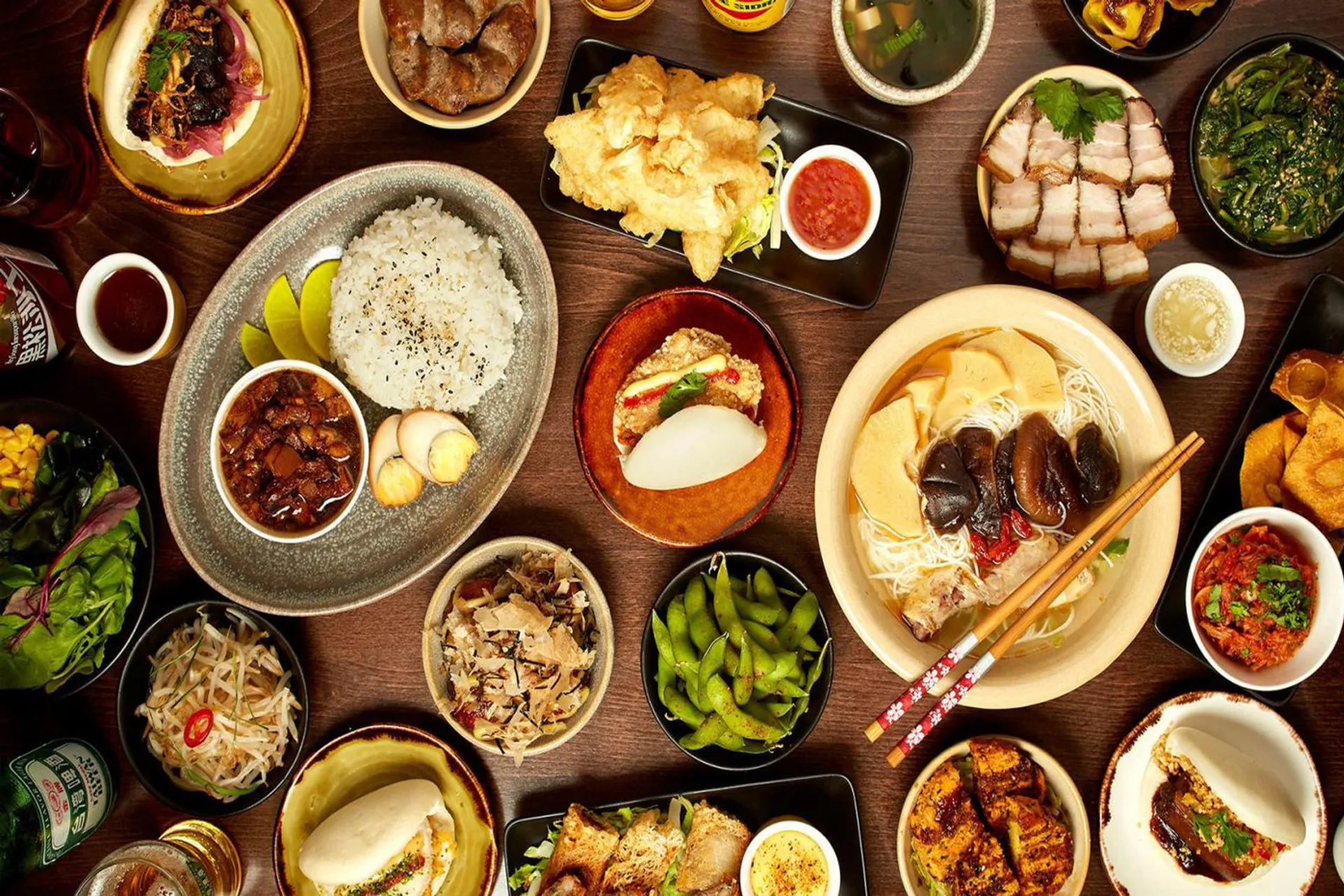
Zhejiang cuisine is one of the eight major traditional Chinese culinary styles, famous for its fresh, low-fat flavor and mellow aroma. Among them, the Hangzhou variant is popular for its mildly sweet taste, interesting presentation, and exquisite cooking methods. To fully enjoy this unique warm style, let’s take a look at the most famous Hangzhou dishes below.
West Lake fish in sweet and sour sauce
An extremely famous dish in Hangzhou, West Lake fish with sweet and sour sauce is said to have appeared since the Southern Song Dynasty. This dish uses the main ingredient is grass carp or carp caught from West Lake or the Grand Canal. Before processing, the fish will be soaked in clean water for one to two days to clean the food and lose the mud smell, then it will be cut in half but still keep the belly attached.
The fish when served to diners has been delicately boiled and covered with a special sweet and sour sauce, absolutely no cooking oil is used. The sweet and tender fish blends with the light taste of the sauce to make the dish very special without being greasy.
Braised Dongpo pork
The dish is named after the famous poet and layman Dongpo during the Song dynasty, who is said to have inspired this dish. Pork to make Dong Pha braised meat must be selected from the best belly pork, just enough lean and fat to be cut into 4cm cubes.
The marinated meat will be fried in hot oil so that the outer shell is golden and retains its original basic shape. Then, the meat will be put in the pot with the sauce mixture, simmering for 3 hours until the meat is tender. Although the dish is made from the fatty part of pork, it does not cause the feeling of greasy but brings up the aroma of cooking wine. This dish is also often served with broccoli and ginger to balance the fat.
Clay-Roasted “Beggar’s Chicken”
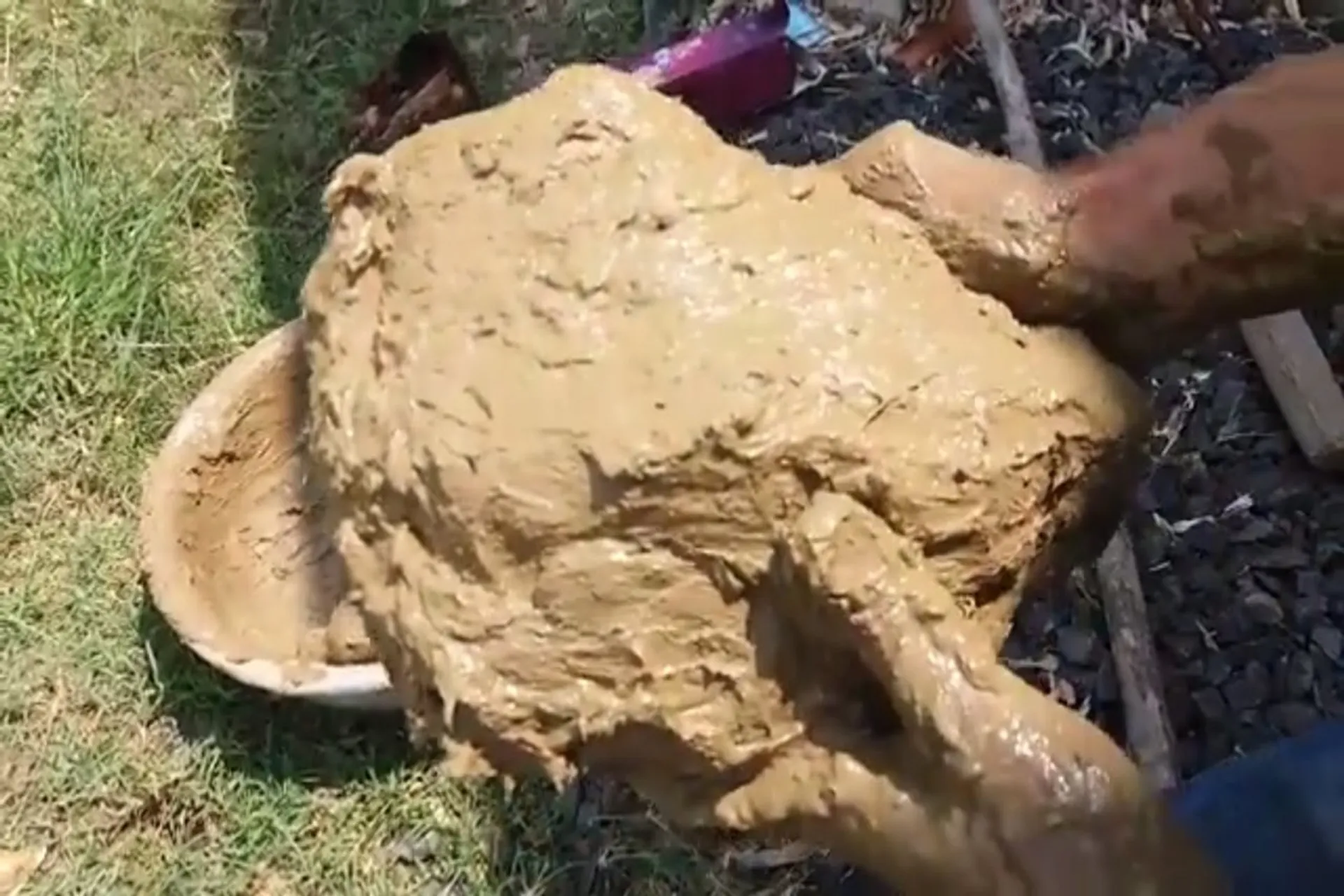
This is a very popular dish in China that is loved by many people. However, researchers all agree that this dish comes from Hangzhou and has existed for thousands of years. The process of preparing this dish is quite time consuming. First, the chicken will be marinated with spices, wrapped in lotus leaves, then wrapped in a layer of clay and roasted in fire. When fully cooked, the clay will form a hard shell around the chicken, which when broken open reveals the delicious roasted chicken inside.
This whole process takes about 6 hours for one serving. However, today many restaurants have improved the processing method, using flour instead of clay and baking in an oven or convection to save time and ensure hygiene.
Stir-Fried shrimp with Longjing tea
This dish is a unique combination of ingredients typical of Hangzhou. The combination of white shrimp and green tea leaves exudes the lightness and freshness of the dish.
The main ingredient is peeled river shrimp, dipped in a thin layer of egg white and flour, then deep fried in oil at low temperature for about 15 seconds. After taking out the shrimp, drain the oil and stir-fry quickly at high temperature with hot tea water and tea leaves and Shaoxing wine. This dish will stimulate the appetite, the feeling of light refreshment before enjoying other dishes.
Sister Song’s Fish Broth
This dish has been famous all over the world for more than 800 years, not only because of its fresh taste but also said to have the ability to restore health. The main ingredient of this dish is made from freshwater fish, the fresh taste of fish meat will balance with other ingredients.
Along with bamboo shoots, mushrooms and ham will enhance the flavor of the soup while still retaining the inherent frugal taste. All ingredients will be cut, so that the harmonious color of the dish and the rich aroma and flavor of the ingredients remain for a long time after enjoying.
Mixed delicacies
This dish includes 3 types of meat and 3 optional vegetables. The main taste of the dish consists of “egg” marinated with foie gras, red wine, peach sauce and a typical cold dish of Hangzhou people.
Crispy deep fried tofu
This is a very popular snack in Hangzhou. This dish is available in most places in China but it is most famous in Hangzhou, because tofu is a specialty of Tyxiang, Hangzhou. This dish is served with sweet and sour sauce.
Lotus root
The taste of this dish is quite similar to candy but more delicious and nutritious. The chopped lotus root is mixed with rice and then cooked in sticky rice, covered with a sweet red sauce.
Coriander beef soup (West Lake Beef Soup)
This is a famous traditional dish of Hangzhou people. The dish is made from mashed potatoes with egg whites, mushrooms, chopped coriander, beef and then cooked in crab soup, so the soup has a strong sweet taste, each bite is very delicious.
Where to stay in Hangzhou?
In general, because I stayed in 3 places and each place is different, so choosing the hotel is also according to different rules.
If you have a plan to travel to Hangzhou, Suzhou, and Wuzhen, please remember the following booking rules:
- Hotels / guesthouses should be close to the center, tourism, and entertainment (because traveling in China is not convenient, walking is still the most reasonable, the further you stay, the more energy you spend).
- The hotels / guesthouses should not be in the alley but should be on the street: because of the language barrier, it will be difficult for you to find the hotel if it’s in the alley, I used to have this problem when traveling to Jiuzhaigou, so this time learn from my experience.
- Hotels / guesthouses need to have 24/7 service so that when you check out / check in early / late, someone will help you do procedures.
- Hotels / guesthouses need to have a phone number so that if you get lost, you can call them.
- Staff speaks English good.
In general, hotels in China are quite cheap, it’s just that their English is a bit poor, so you have to be a little picky. 1 night on average will be 50 yuan (in the dorm) and can be more expensive if you stay alone.
In Hangzhou, I choose HostelZEY&Co YMCA Hangzhou. This is one of the members of the YMCA’s chain. The room is beautiful, modern and youthful. Staff speak English very good. The location of the hotel, after I know the way – is very favorable, convenient, too suitable for the room price of 74 yuan / day and night. The minus point is that it is difficult to identify even when going to the right address.
Chichi Casual Life Hotel
Located in a prime location right in the downtown area of Hangzhou, guests staying at Chichi Casual Life will easily visit famous places such as West Lake, Qiantang River and Wushan Square in just a few minutes walk.
The 4-star hotel consists of 40 spacious rooms, decorated in an elegant and cozy style, creating the feeling of being at home. All rooms are equipped with a seating area with city views. Other services such as bar, restaurant, car park and open terrace are fully provided for guests to use.
Blooming Lotus Theme House Hangzhou
This lovely homestay is located just 2.8km from Lingyin Pagoda. Other prominent places such as West Lake, Longjing tea village or Qiantang River are also only within a radius of 5km back, extremely convenient for tourists who want to explore all the famous tourist attractions of the city.
Blooming Lotus is located in a green space, with plants around and each room is decorated according to a separate theme with pleasant bright colors. Guests staying here can enjoy American food or breakfast. In addition, the homestay also has a bicycle or car rental service for visitors in need.
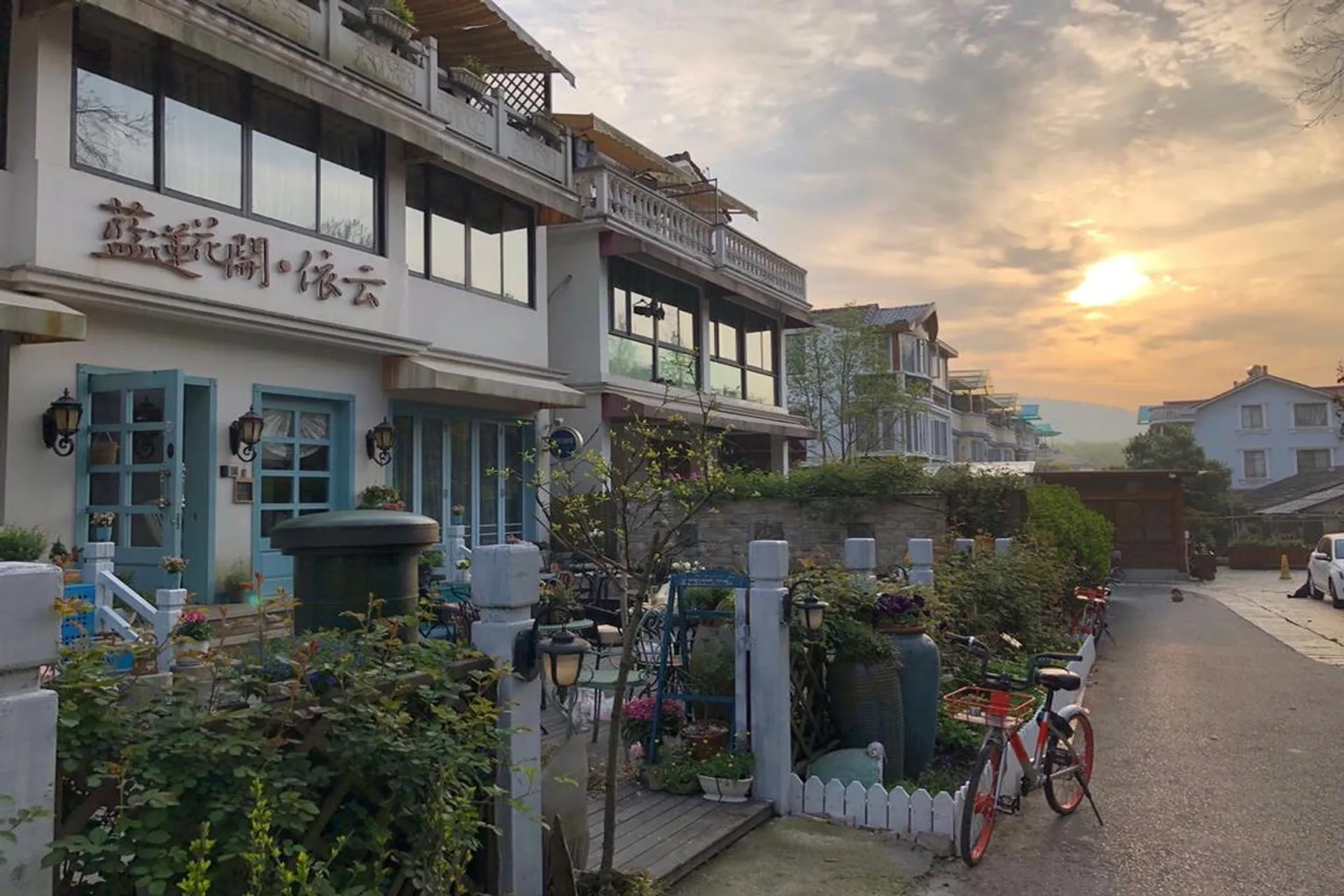
The East Hotel Hangzhou (Agoda, Booking)
Located along Hushu Road, The East Hotel offers guests a place to stay right in the heart of the city, between Shen Tang Qiao Station and West Lake Cultural Square Station. Famous attractions are also just 4km away.
Rooms here use pleasant warm wood tones, along with high-end technology to help you maximize comfort, convenience and privacy. Each room has its own unique style, using Hangzhou silk and Egyptian cotton to help guests have the most comfortable sleep. If you wish, you can also enjoy local Hangzhou or other Chinese dishes at the hotel’s on-site restaurant.
Jiu Jian Tang Resort Inn
For those who love the classic Chinese style and green space of Longjing tea garden, Jiu Jian Tang Resort Inn is definitely not to be missed. Located only about 700 meters from Lingyin Temple, Jiu Jian Tang’s space is covered with beautiful natural scenery, unexpectedly quiet.
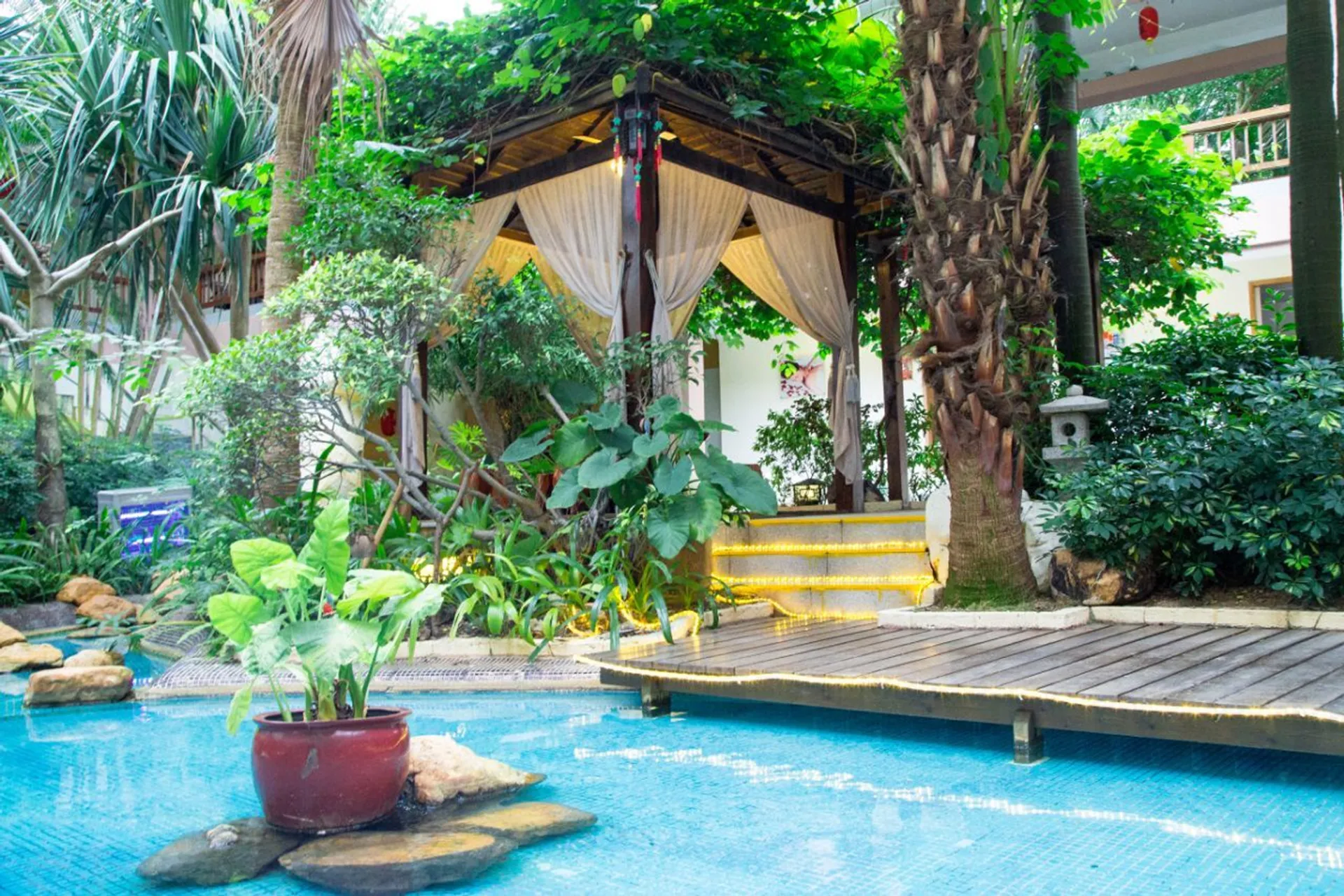
The entire resort is designed in the style of tea ceremony, with furniture mainly made of bamboo and wood. The rooms are fully equipped with separate living space. If desired, guests can also request to enjoy Longjing tea in the room with water drawn from the springs of Tian Zhu Zhi Mountain.
Below we recommend more best budget, mid-range and upscale hotels with good ratings and reviews you can refer to.
- EBO Hotel (Hangzhou West Lake) (Agoda, Booking)
- InterContinental Hangzhou (Agoda, Booking)
- Crowne Plaza Hangzhou HEDA, an IHG hotel (Agoda, Booking)
- Banyan Tree Hangzhou (Agoda, Booking)
- Midtown Shangri-La, Hangzhou (Agoda, Booking)
- Grand Hyatt Hangzhou (Agoda, Booking)
- Four Seasons Hangzhou at West Lake (Agoda, Booking)
- Shangri-La Hangzhou (Agoda, Booking)
- The Azure Qiantang, a Luxury Collection Hotel, Hangzhou (Agoda, Booking)
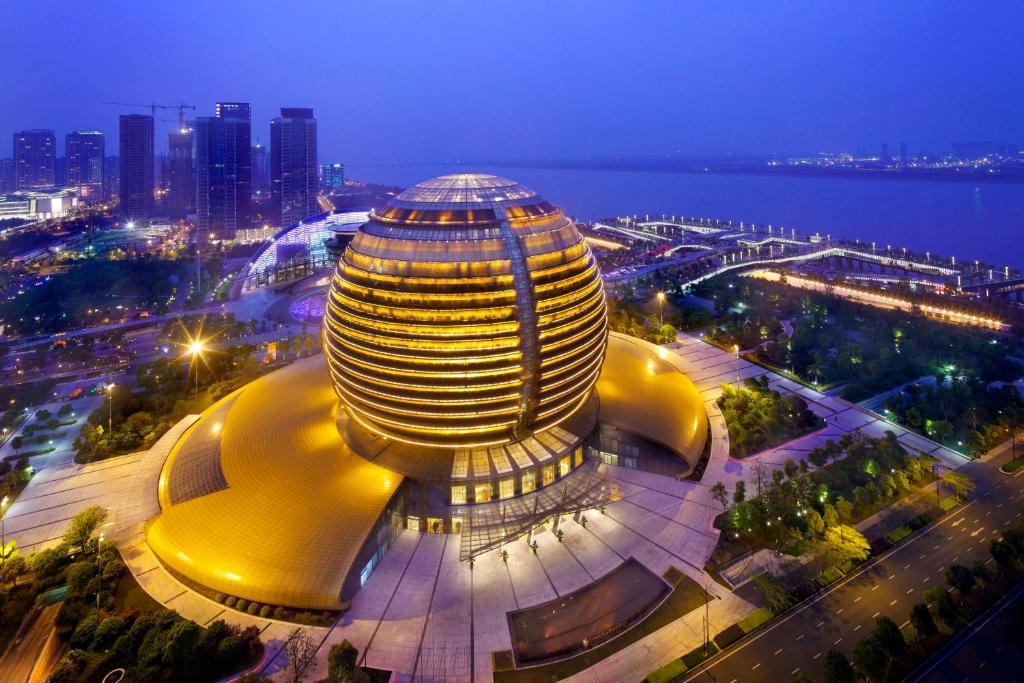
Check out more top and best hotels in Hangzhou on Agoda.com or Booking.com
Some tips of renting Wifi and 4G SIM card in Hangzhou
As in the previous post, I reviewed and compared renting wifi or using a sim card when traveling abroad, so this time I decided to rent WiFi transmitter even if I was alone. A few more reasons for this:
- In China, WiFi rental fee is not expensive, very cheap.
- The WiFi transmitting device in China has a very durable battery and is itself a battery, I can hold it and charge it.
- I have to use my phone too much, if I use 3-4G, the battery will run out very quickly.
That’s the reason why I decided to rent WiFi in China. But where to rent?
Klook: Around $5/day, return and pick up at Hangzhou airport. It’s right at the international departure hall (very close to the arrival hall). But the downside of this place is not open 24/24. It is only open from 6:30am-10:30pm. When renting, you need to deposit 500 yuan.
In China now, the Internet has been blocked, which means that apps like Facebook, Instagram, Youtube… can’t access. If you want to use these apps in China, please buy a China 4G sim. Don’t buy a 4G sim at the airport as the price is much more expensive than domestic stores in the city. In order not to be bought at a high price or cannot find a place to buy in China, we recommends that you buy a 4G sim in Vietnam to buy a sim card at a cheap price.
Some best day tours, trips, activities and transfer services, tickets in, from and to Hangzhou you can refer to
- Grand Canal and Culture of Hangzhou
- Hangzhou Leifeng Pagoda and West Lake Tour
- Classic Hangzhou Day Tour (West Lake, Lingyin Temple, and Dragon Well Tea Village)
- Heavenly Hangzhou Private Day Tour
- 3 Day Essential Hangzhou Private Tour
- Hangzhou Xiaoshan International Airport Transfers
- Anchang Ancient Town and Yangshan Stone Quarry Day Private Tour from Hangzhou
- West Lake Daytime Cruise Ticket
- Qiandao Lake Forest Oxygen Bar Ticket in Hangzhou
- Xixi National Wetland Park Ticket
- Luggage Delivery Service in Hangzhou
- Hangzhou Zoo Ticket (For Mainland China ID Card Holders Only)
- Hupao Park Ticket in Hangzhou (For Mainland China ID Holders)
- Zhoushan Taohua Island Ticket Hangzhou
- Tonglu Yaolin Fairyland Ticket in Hangzhou (For Mainland Chinese Citizens Only)
- Qiandao Lake (Central Lake District) Ticket Hangzhou
- Nanxun Old Town Ticket Hangzhou
- Hello Kitty Park Admission Ticket in Hangzhou
- Xixi National Wetland Park Ticket in Hangzhou (for Mainland China ID Card Holders Only)
- Impression West Lake (Enduring Memories of Hangzhou) Show Ticket
- Ferris Wheel Ticket for Hangzhou Paradise Park (For Mainland China ID Card Holders Only)
- Tonglu Yaolin Fairyland Ticket in Hangzhou (For Mainland Chinese Citizens Only)
- 3 Days Hangzhou & Wuzhen Water Village
- West Lake and Longjing Village Private Hiking Day Tour from Hangzhou
- West Lake and Lingyin Temple Whole Day Tour with Cruise in Hangzhou (Flying Peaks Hangzhou or Three Pools Mirroring The Moon)
- Old Hangzhou Canal Life Experience Half Day Tour
Hangzhou has been and still is a destination for tourists who love traditional Chinese culture. There are few places where you can experience the culture and great scenery like here. Therefore, we hopes that the little information above will help you somewhat in your upcoming trip to Hangzhou. Do not forget to share interesting information on your journey for everyone to refer to!

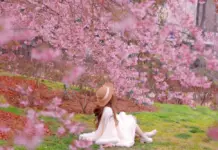
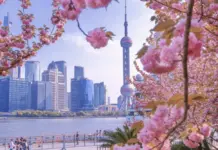
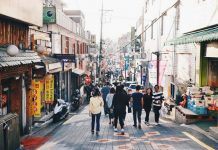
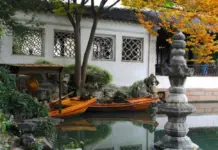
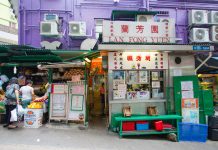
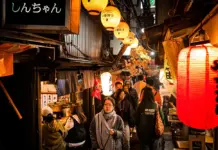
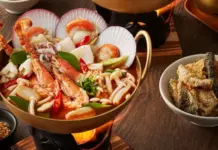
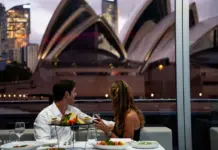
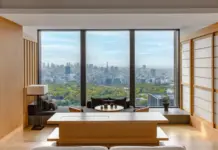
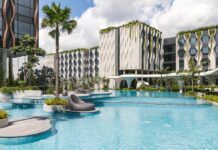

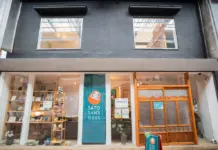

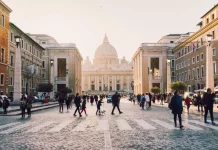
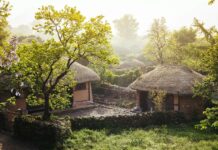

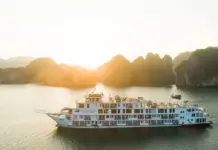
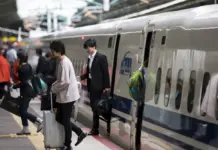
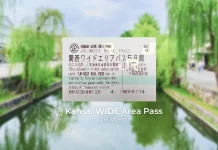

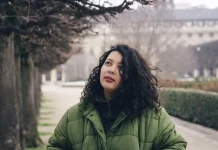
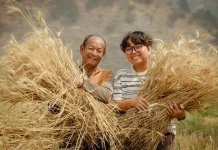
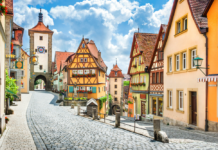


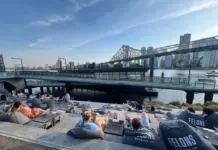
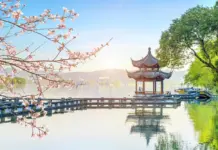

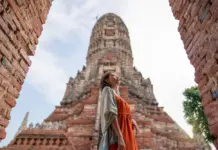
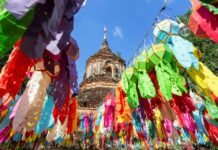
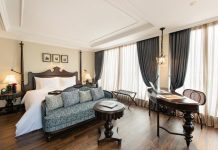
![10 best airports in Asia in 2016 [RANKED] kuala-lumpur-international-airport-best airports in asia in 2016 by skytrax ratings](https://livingnomads.com/wp-content/uploads/2016/08/29/kuala-lumpur-international-airport-best-airports-in-asia-in-2016-by-skytrax-ratings-218x150.jpg)
